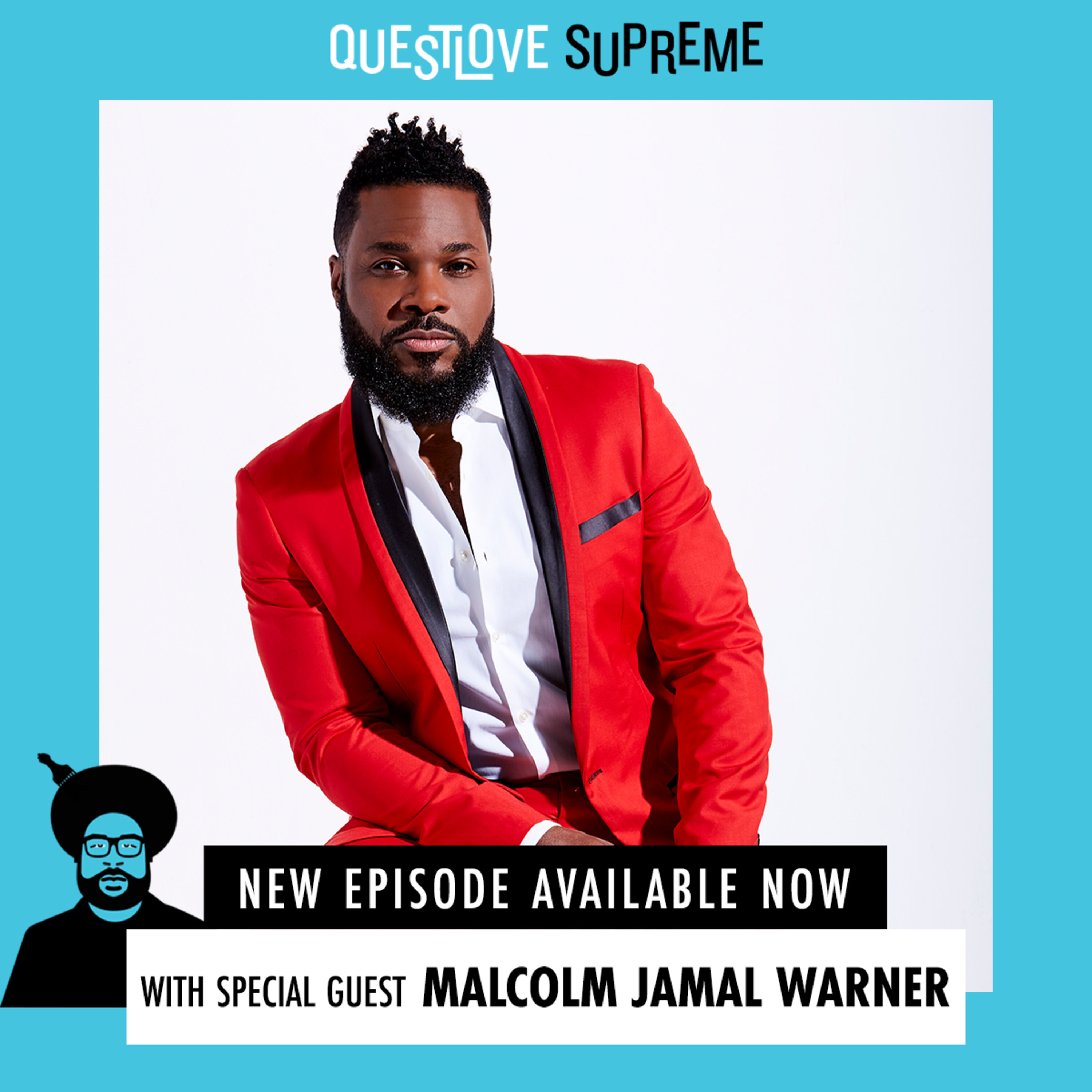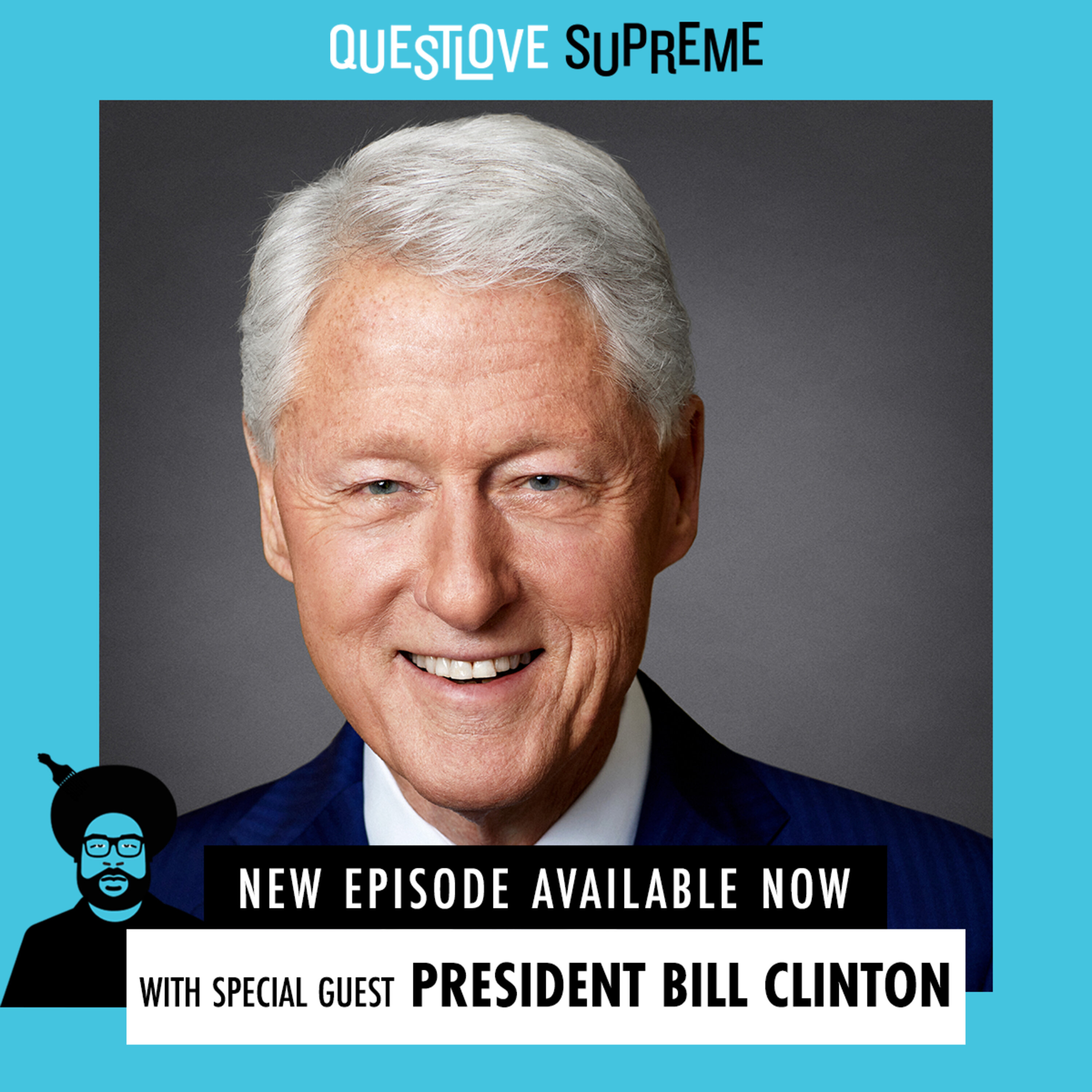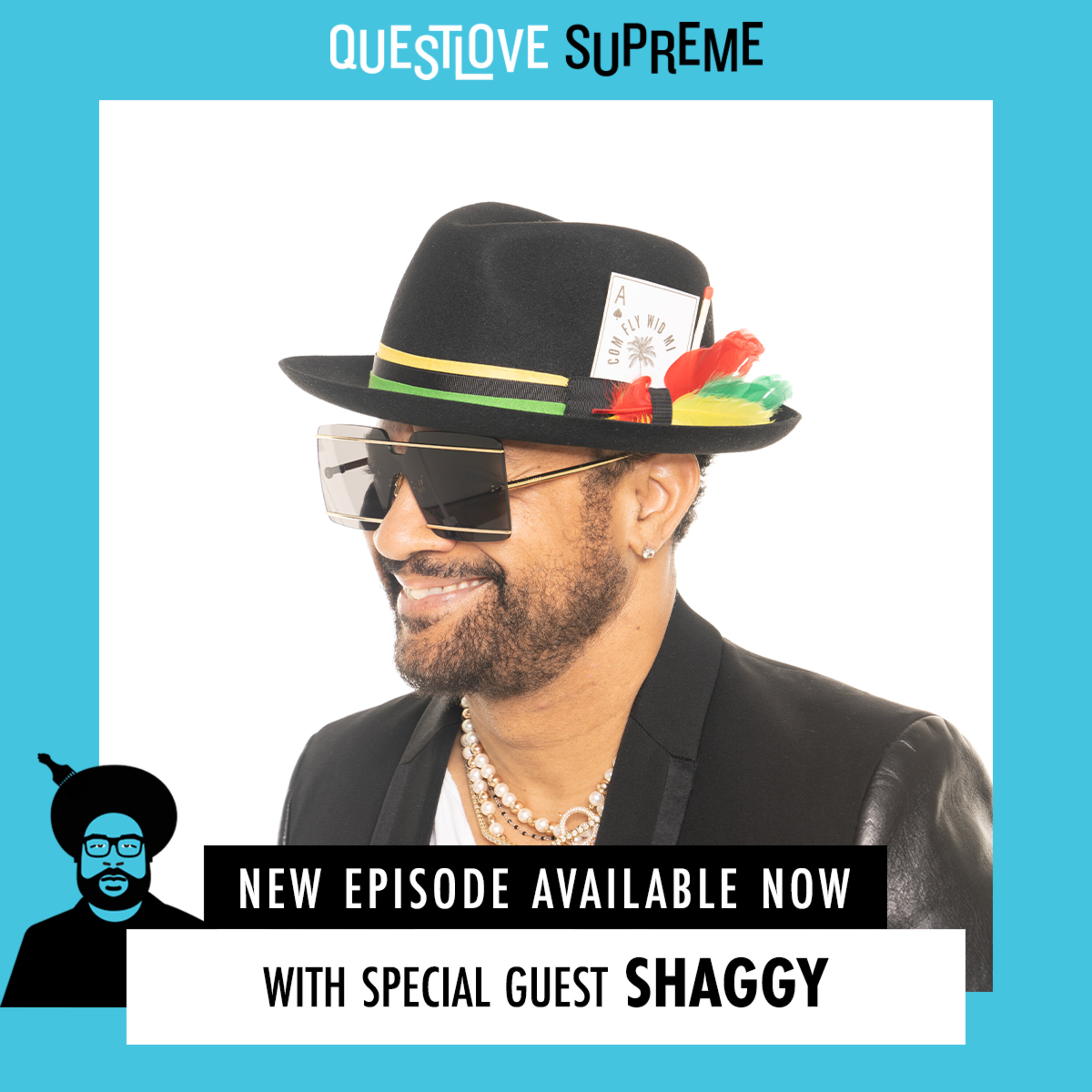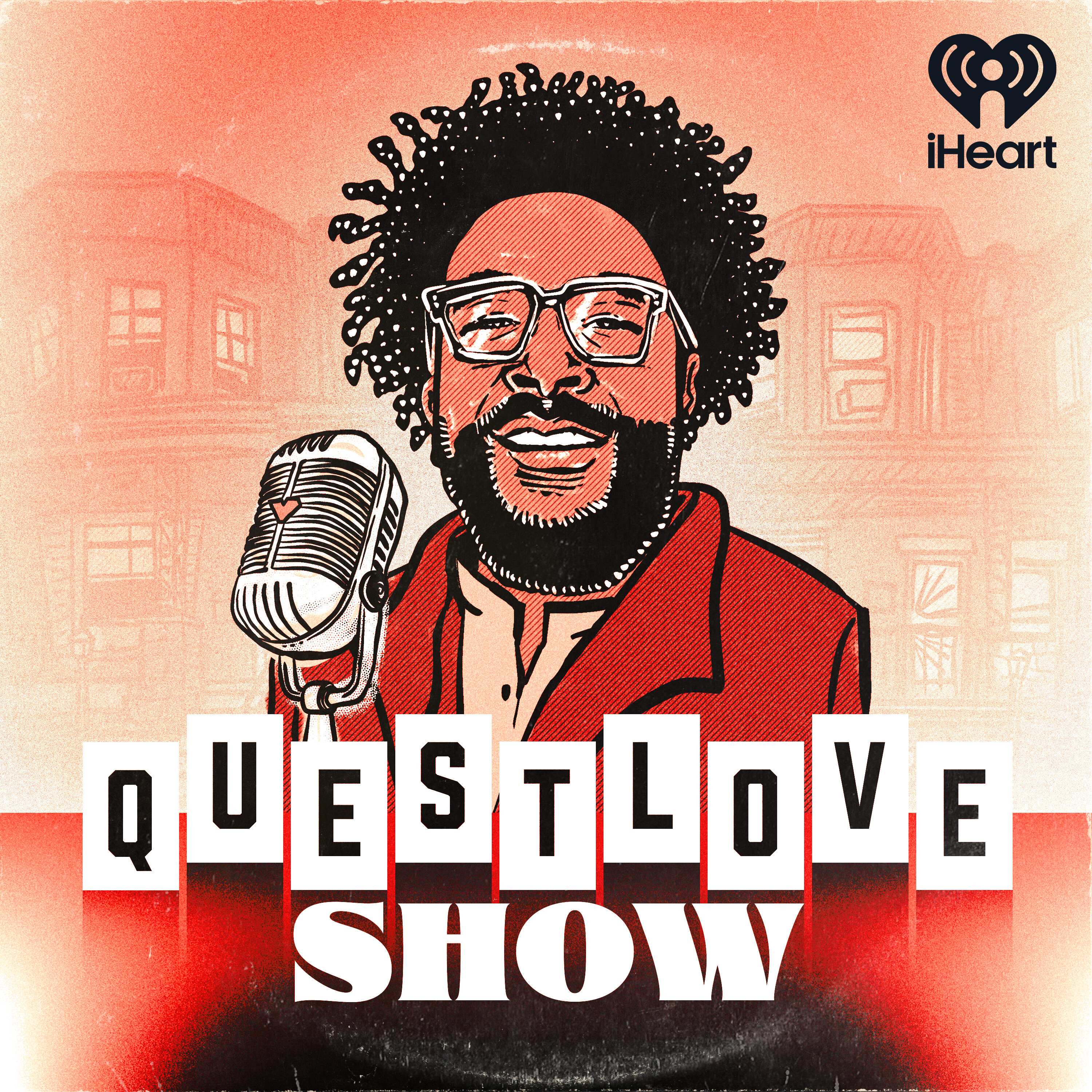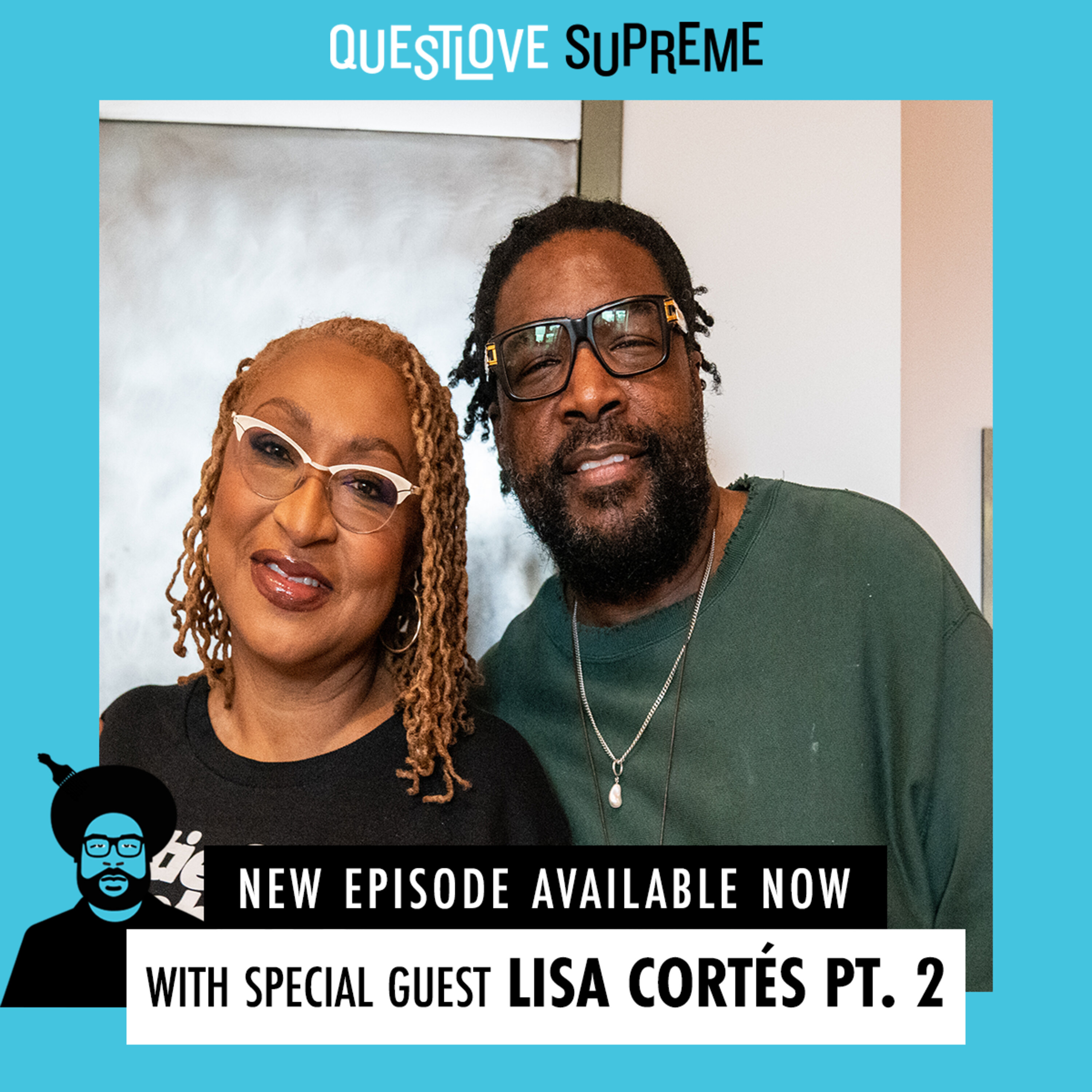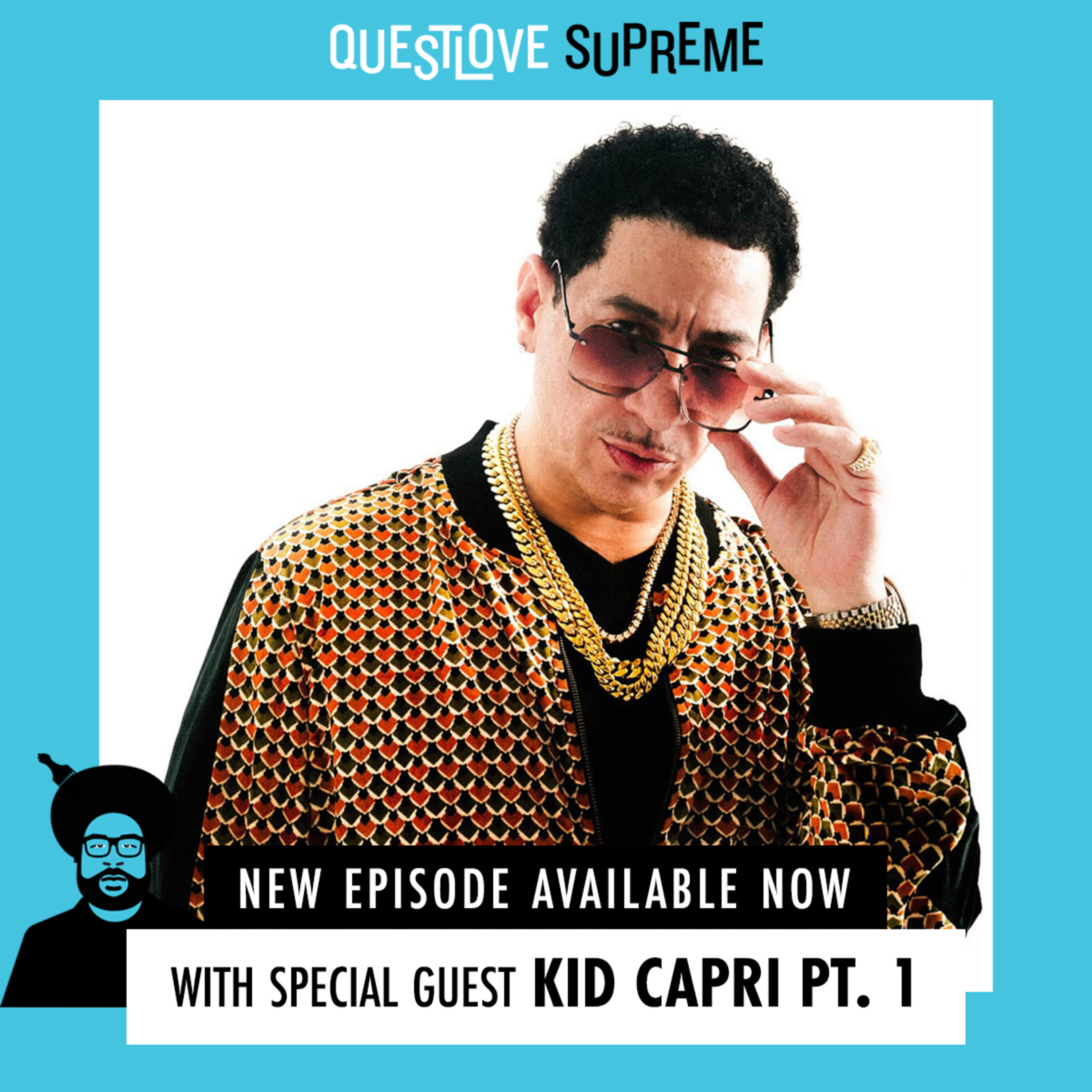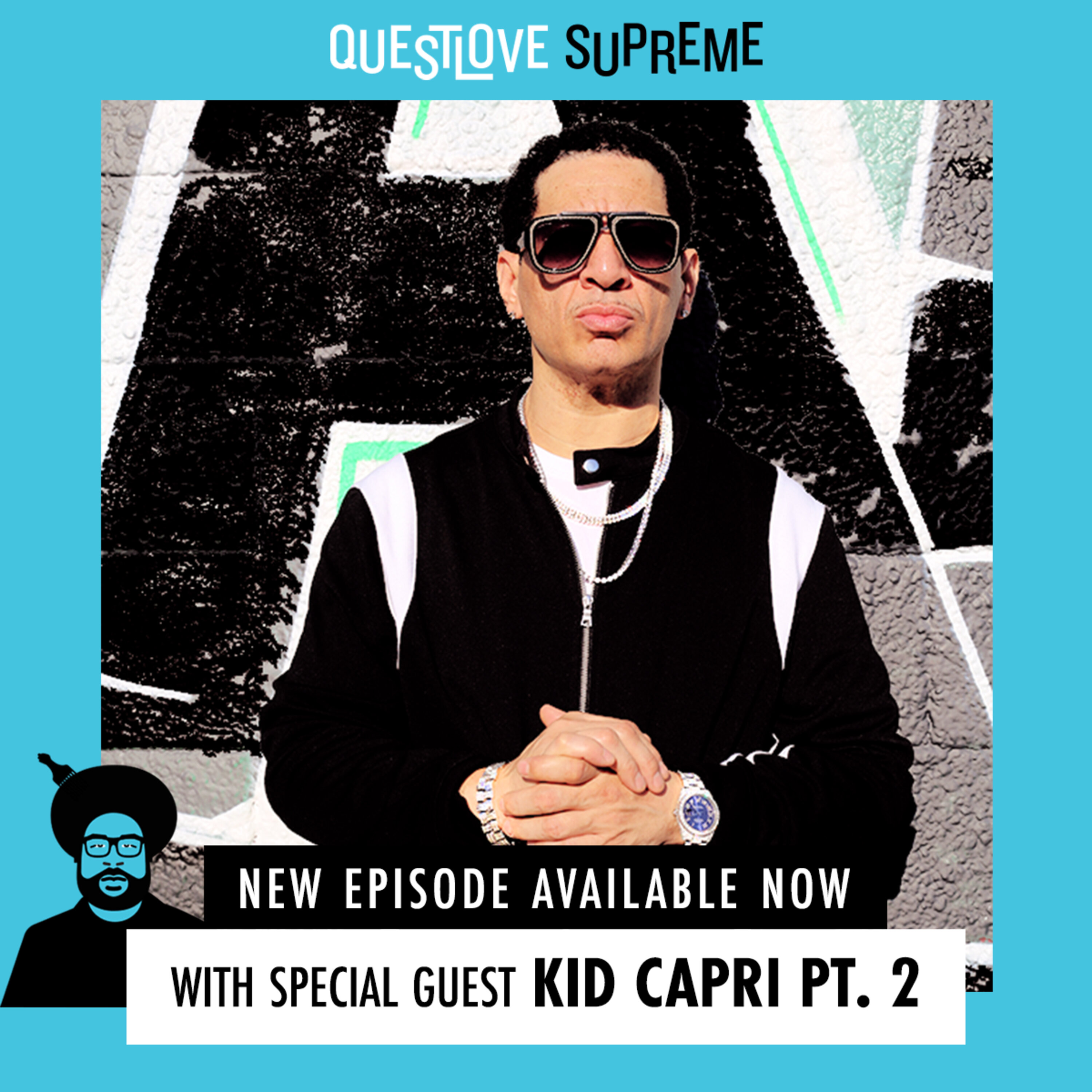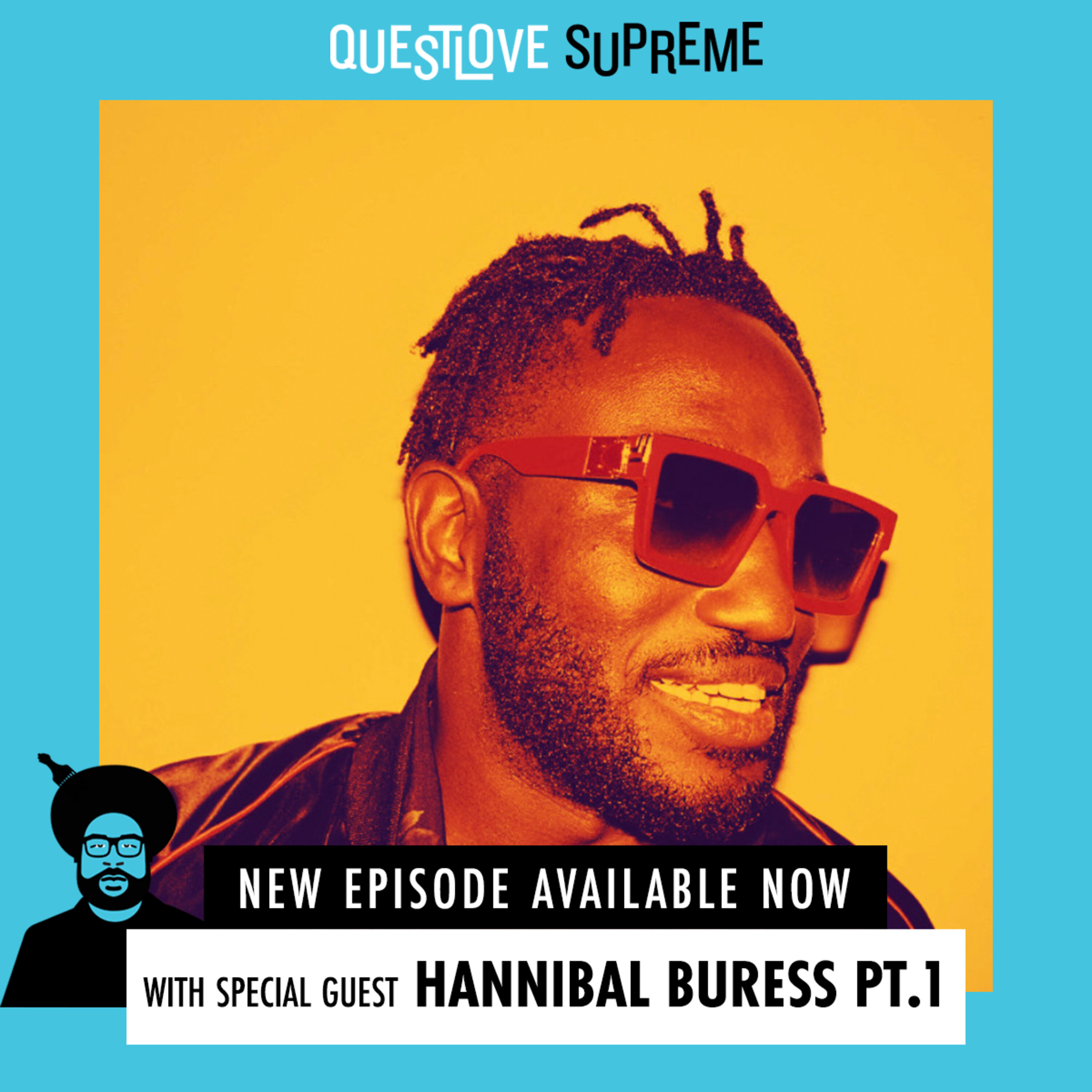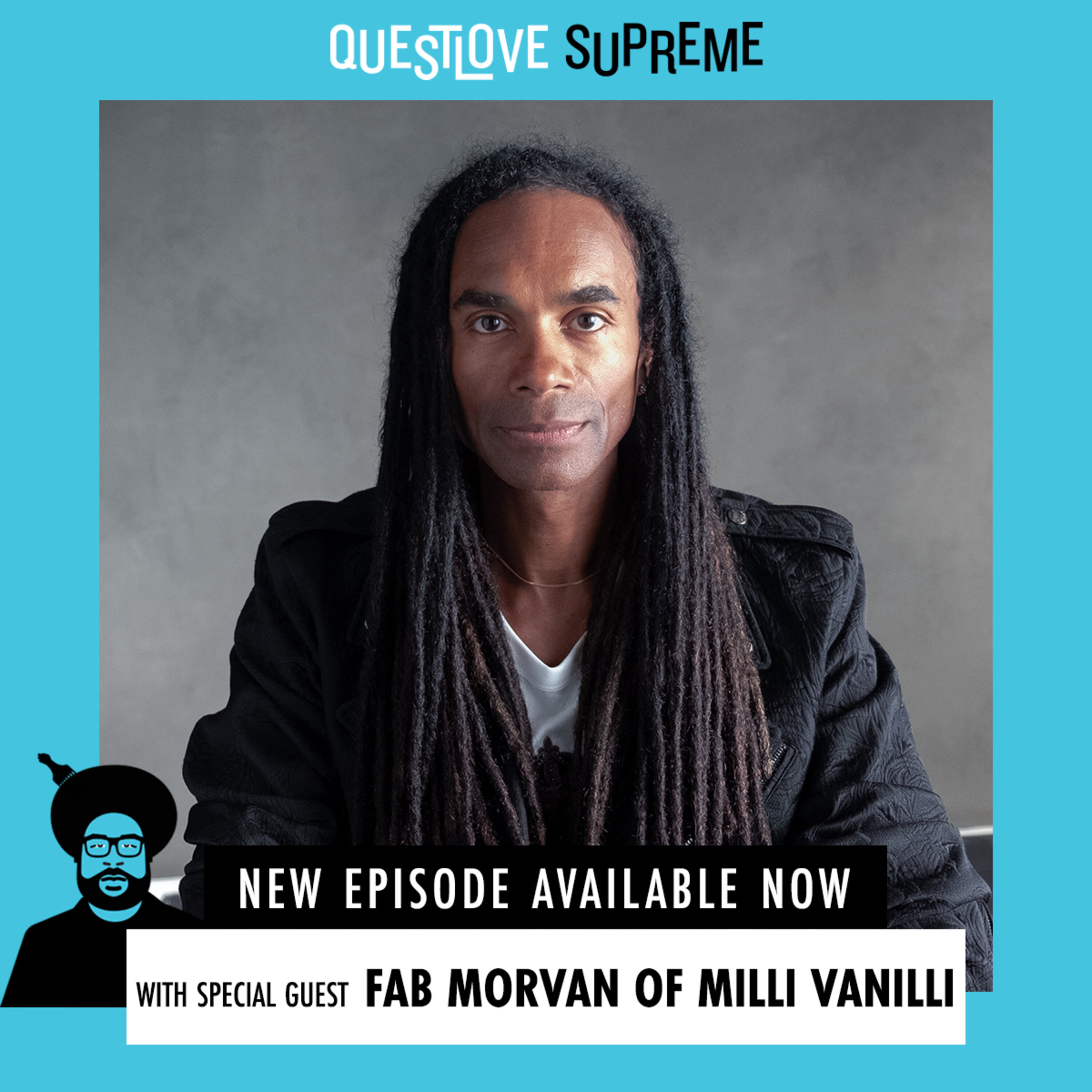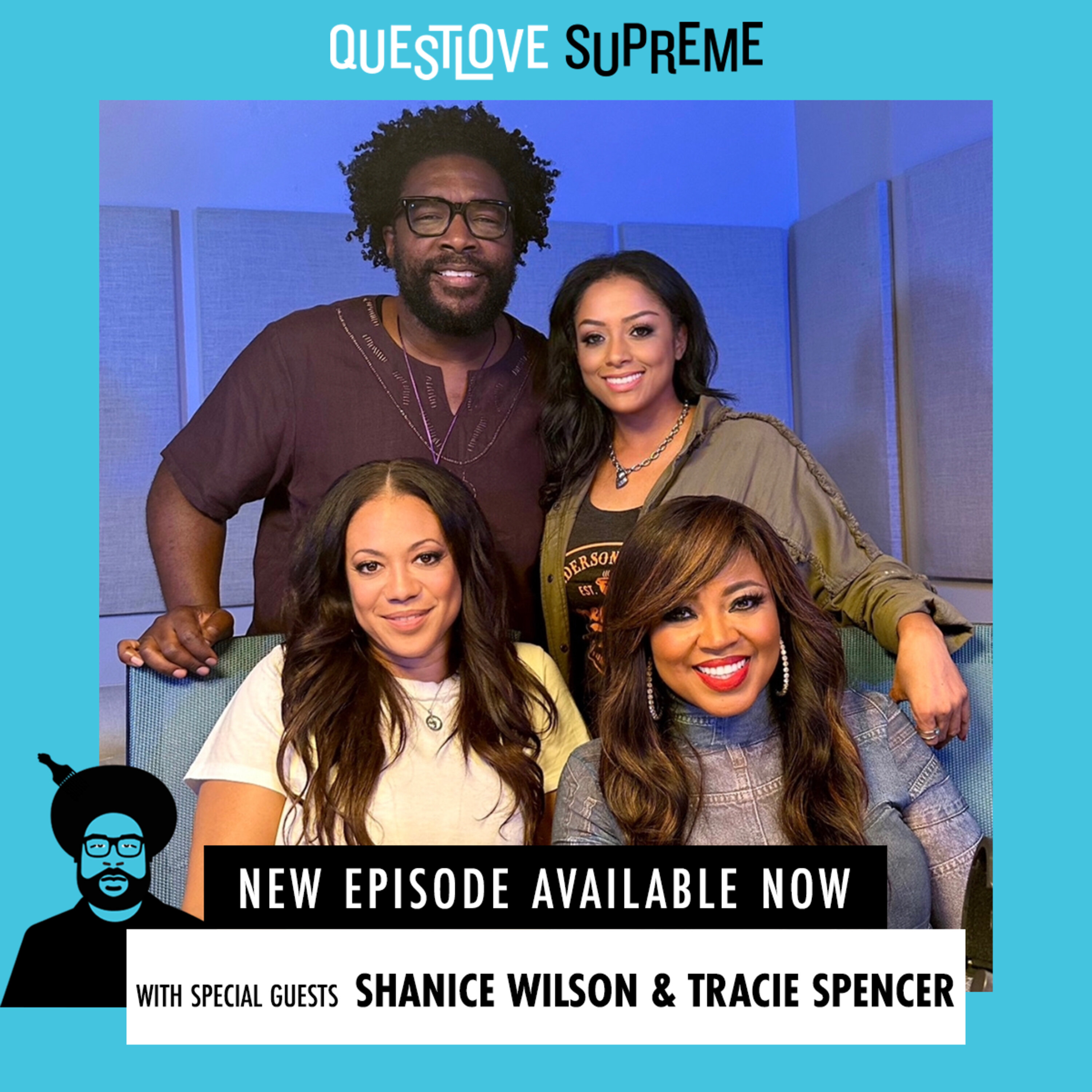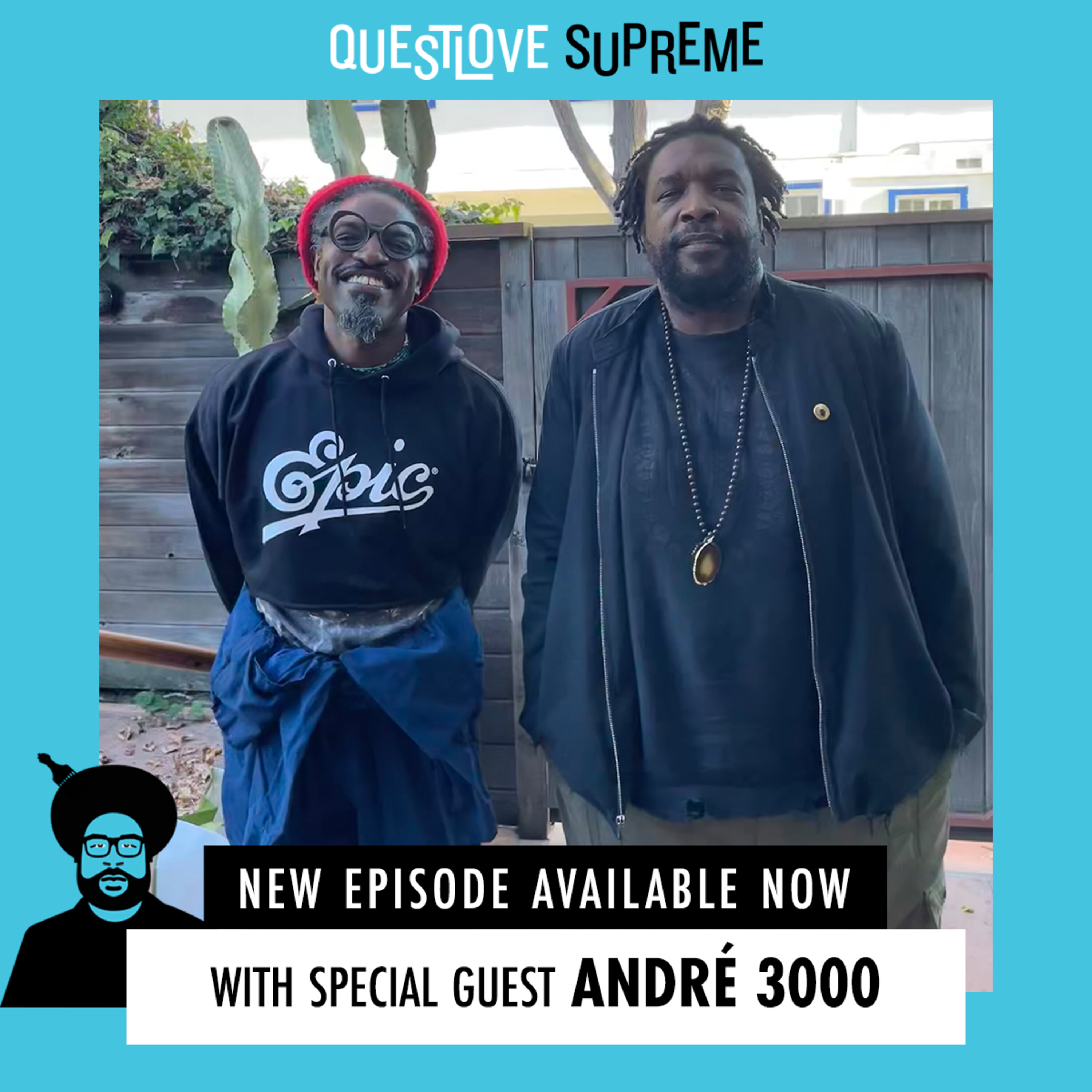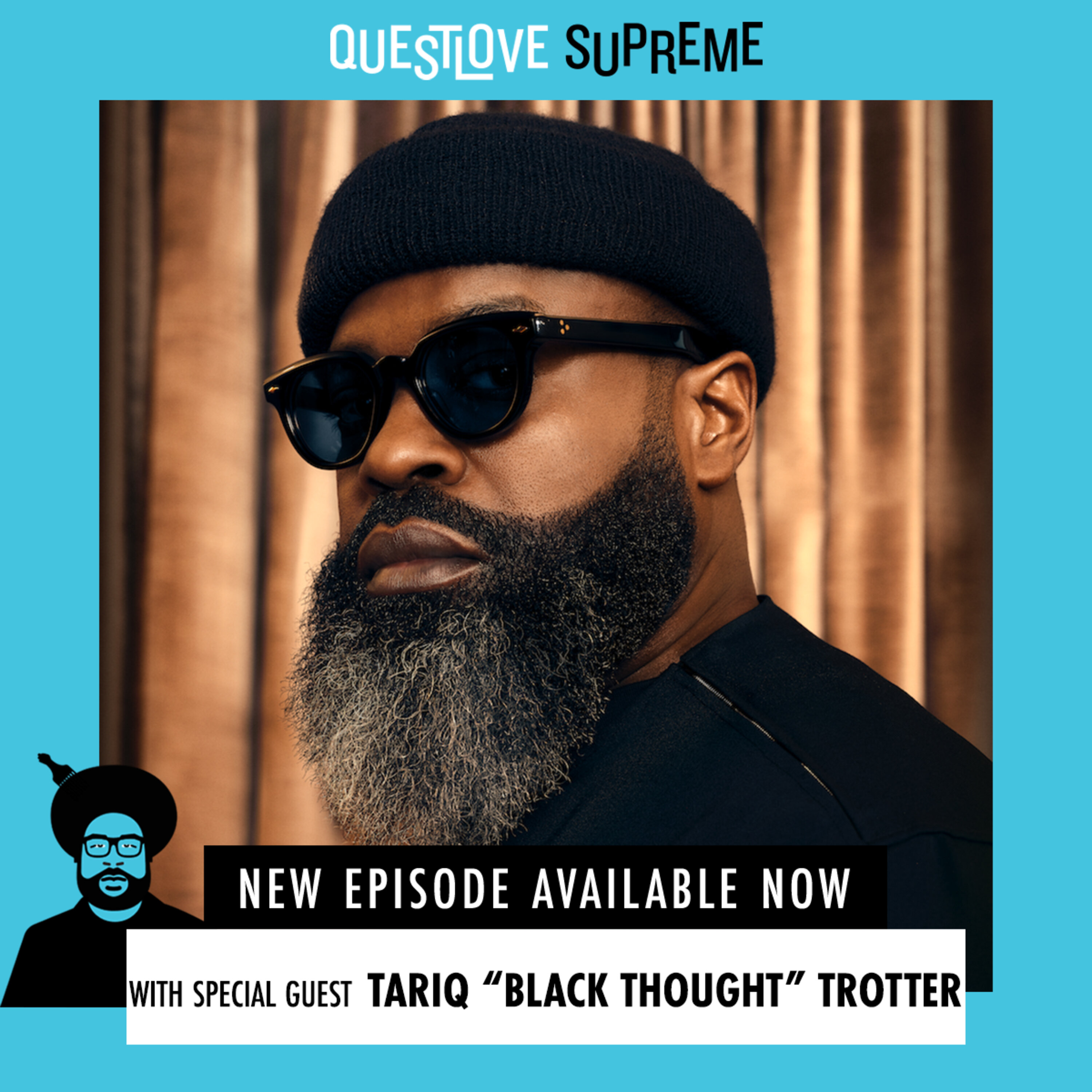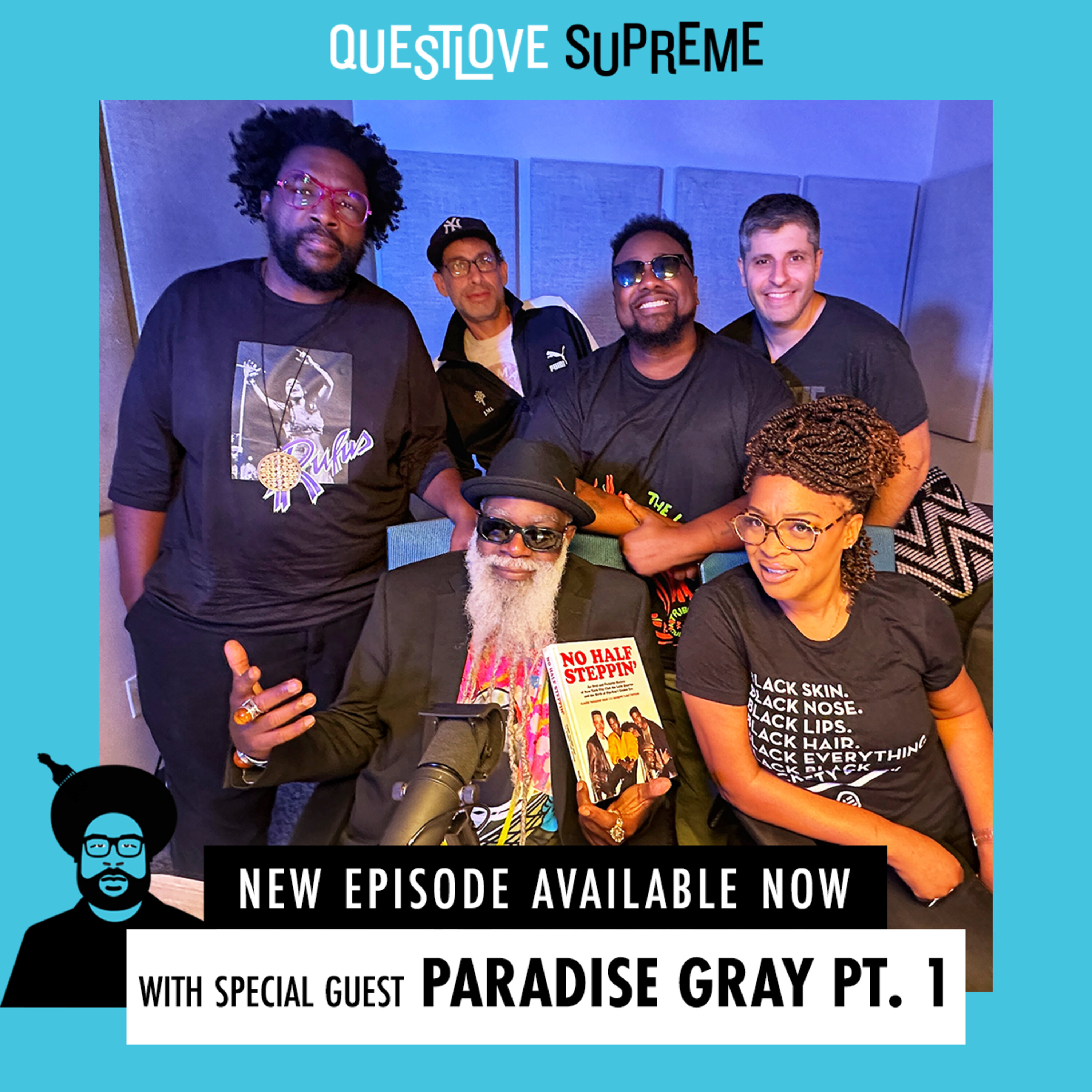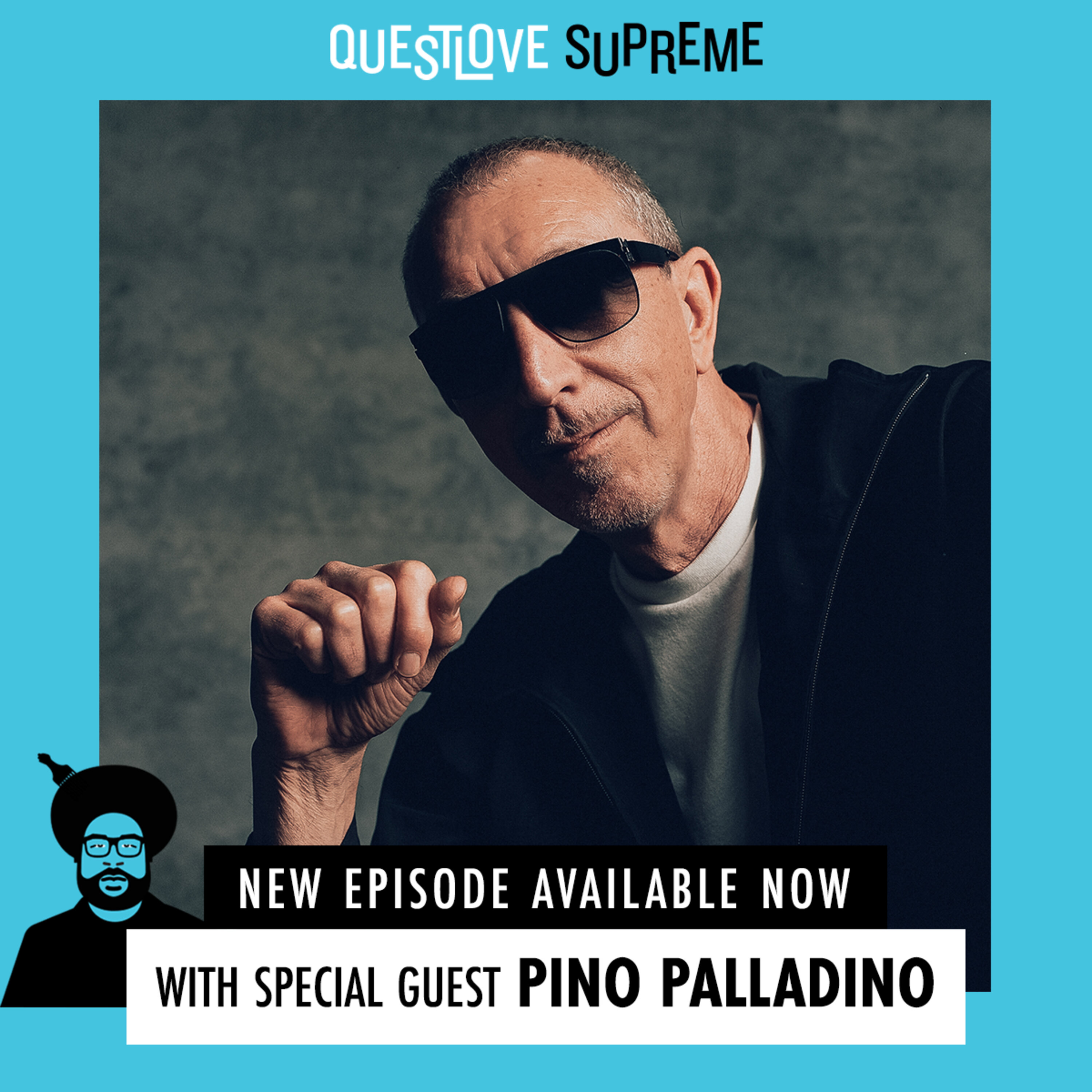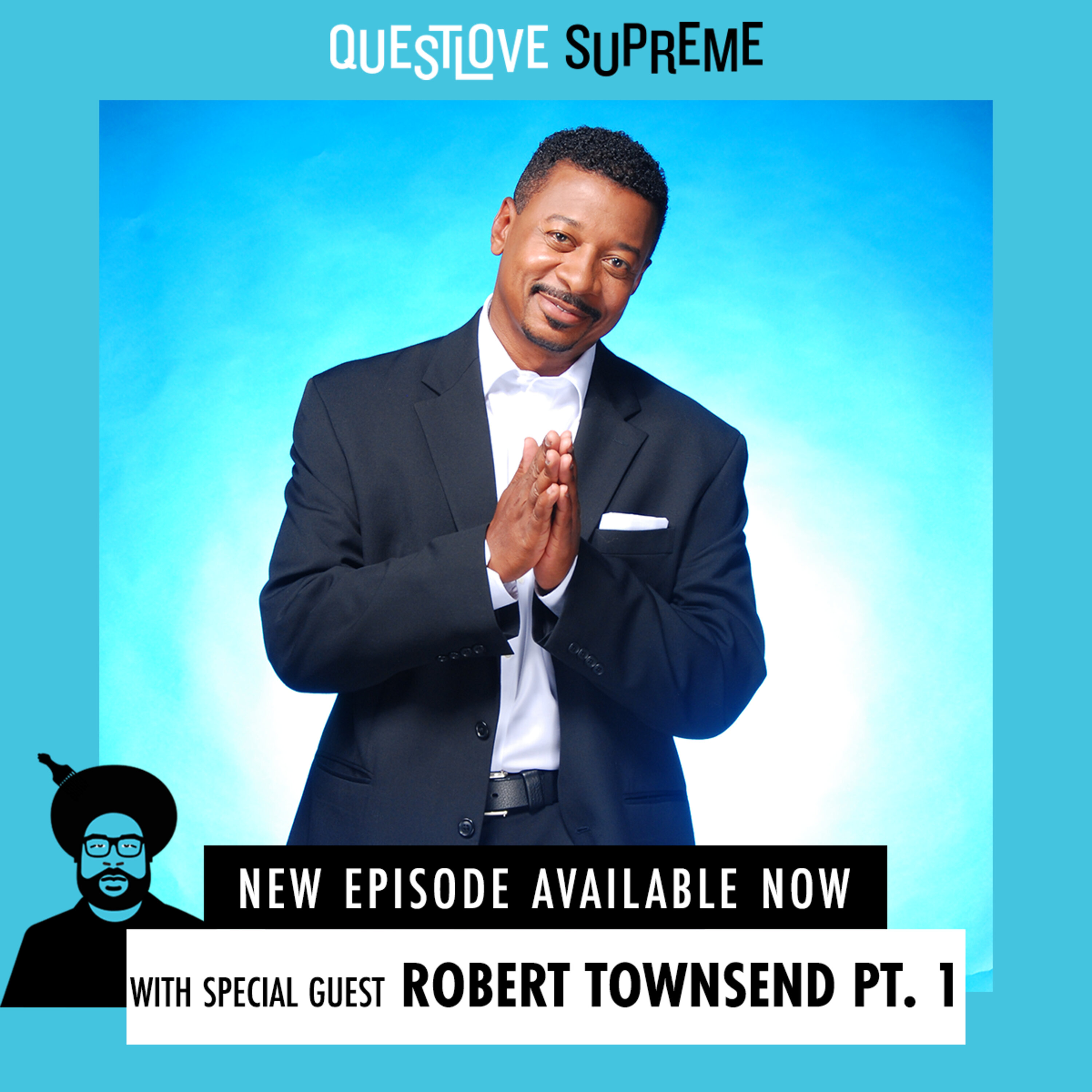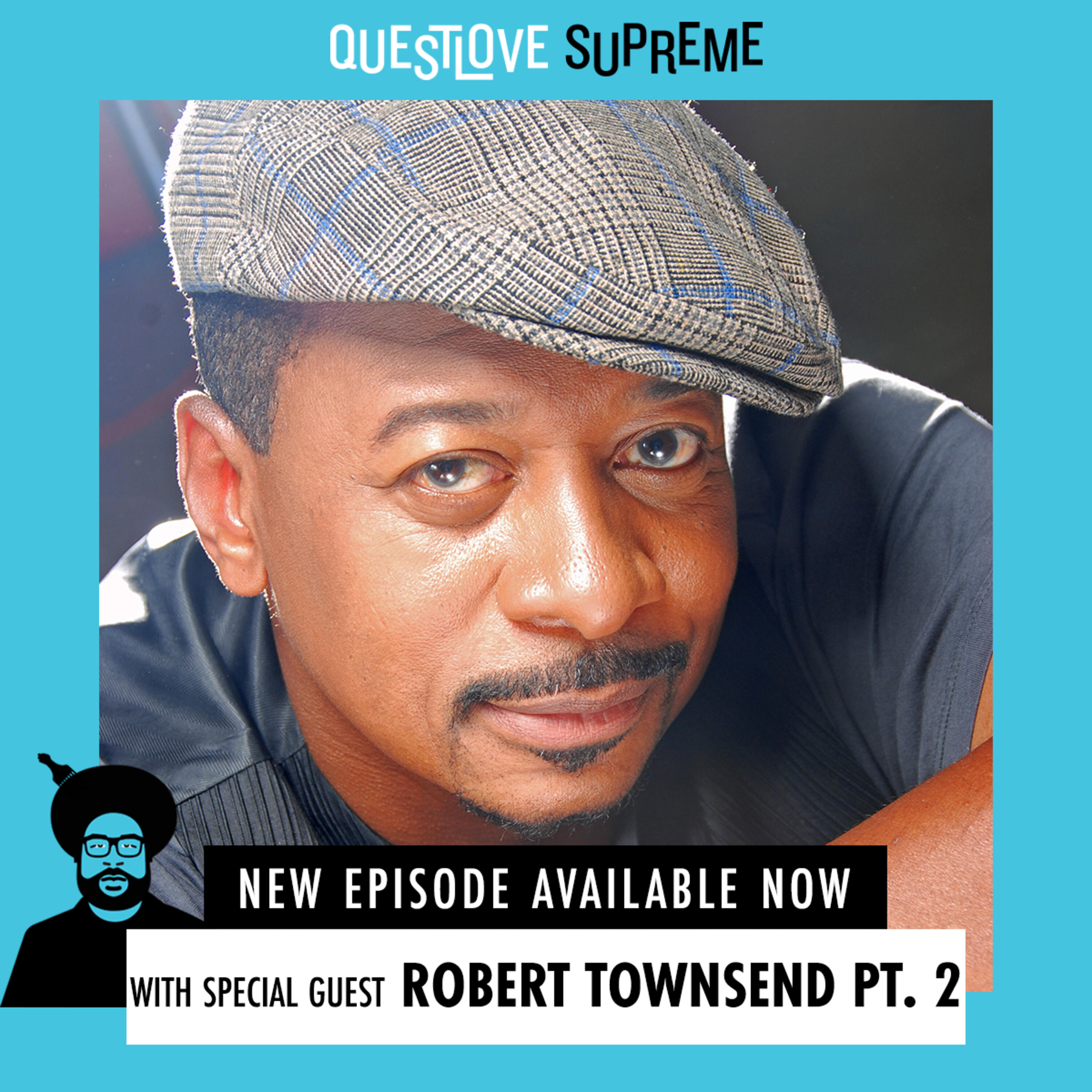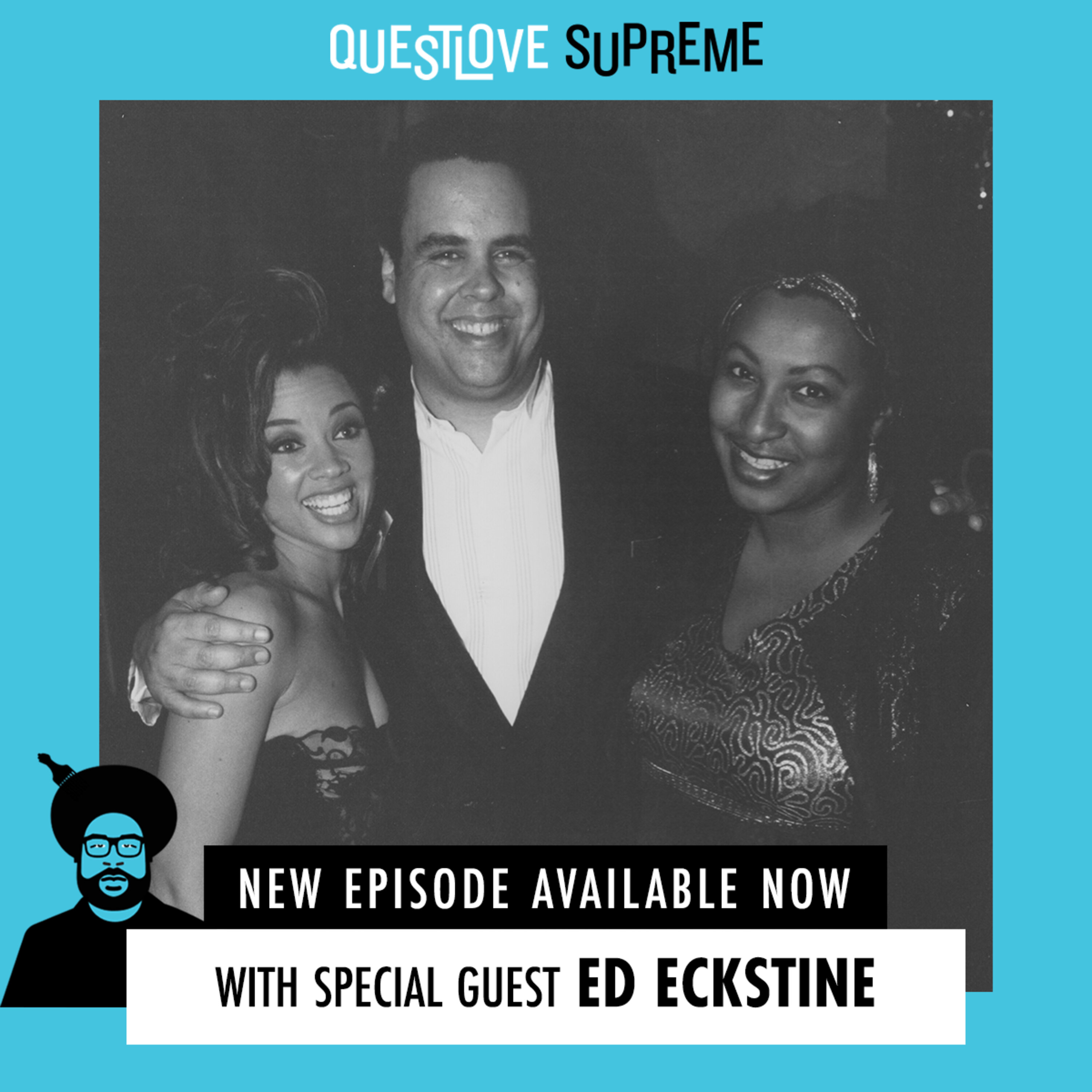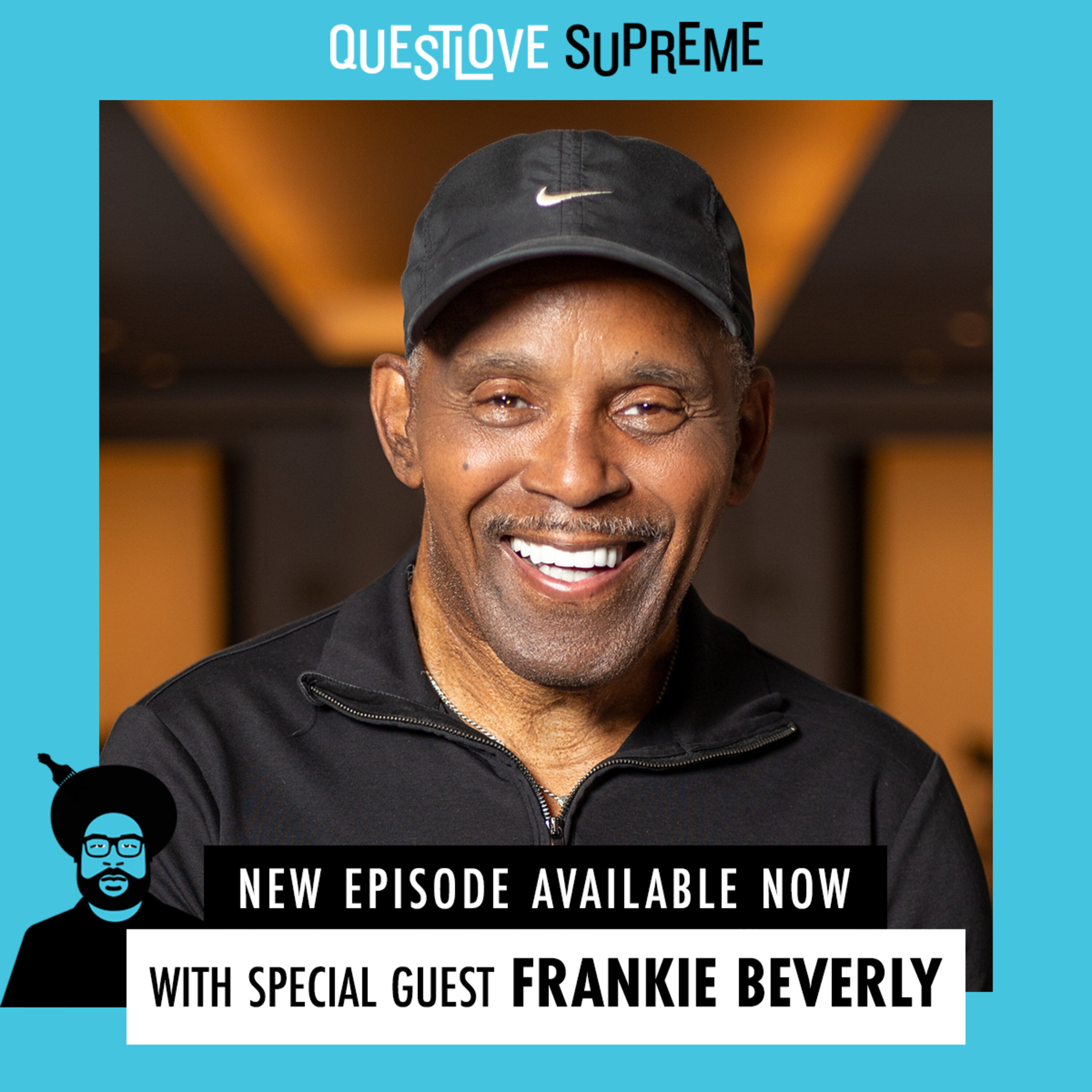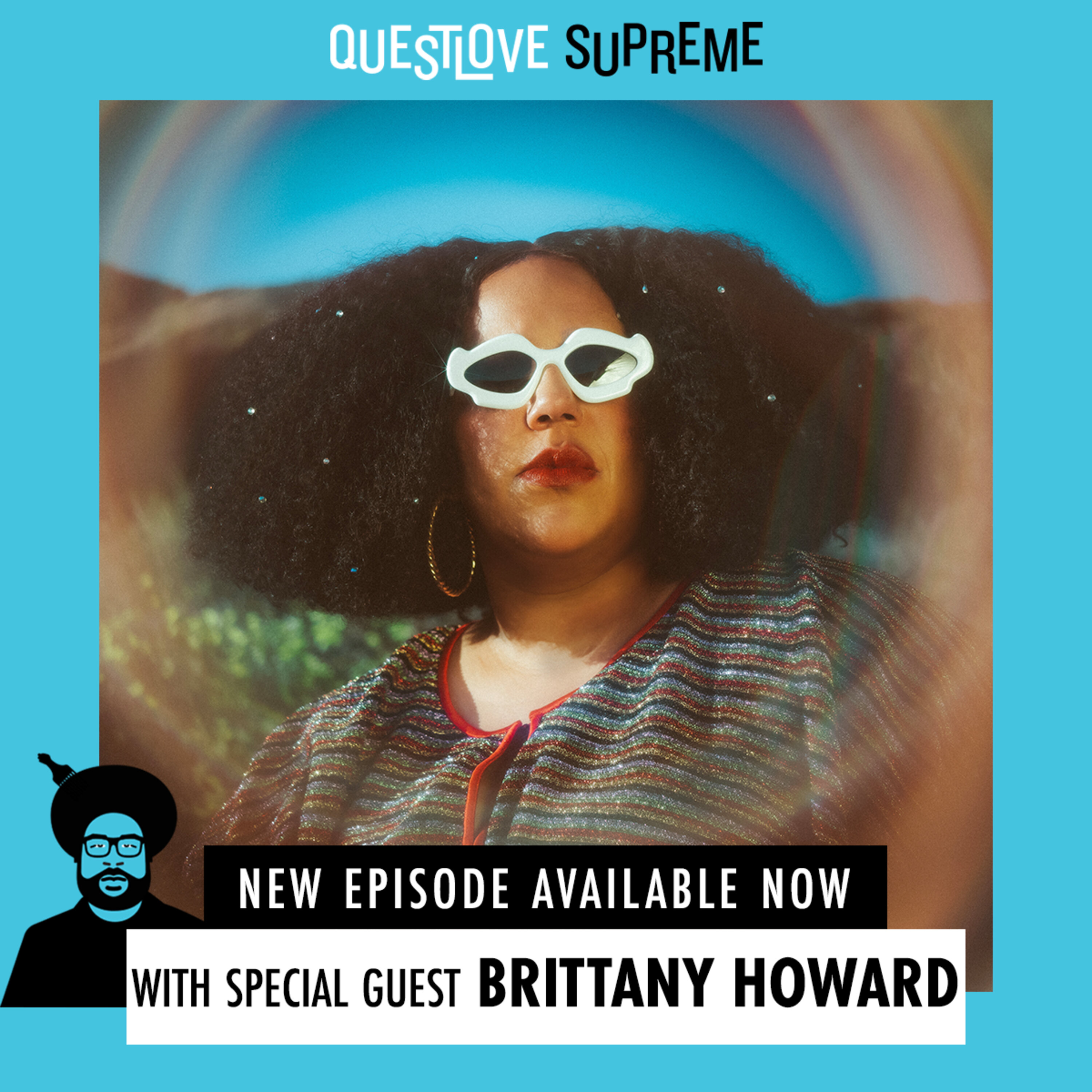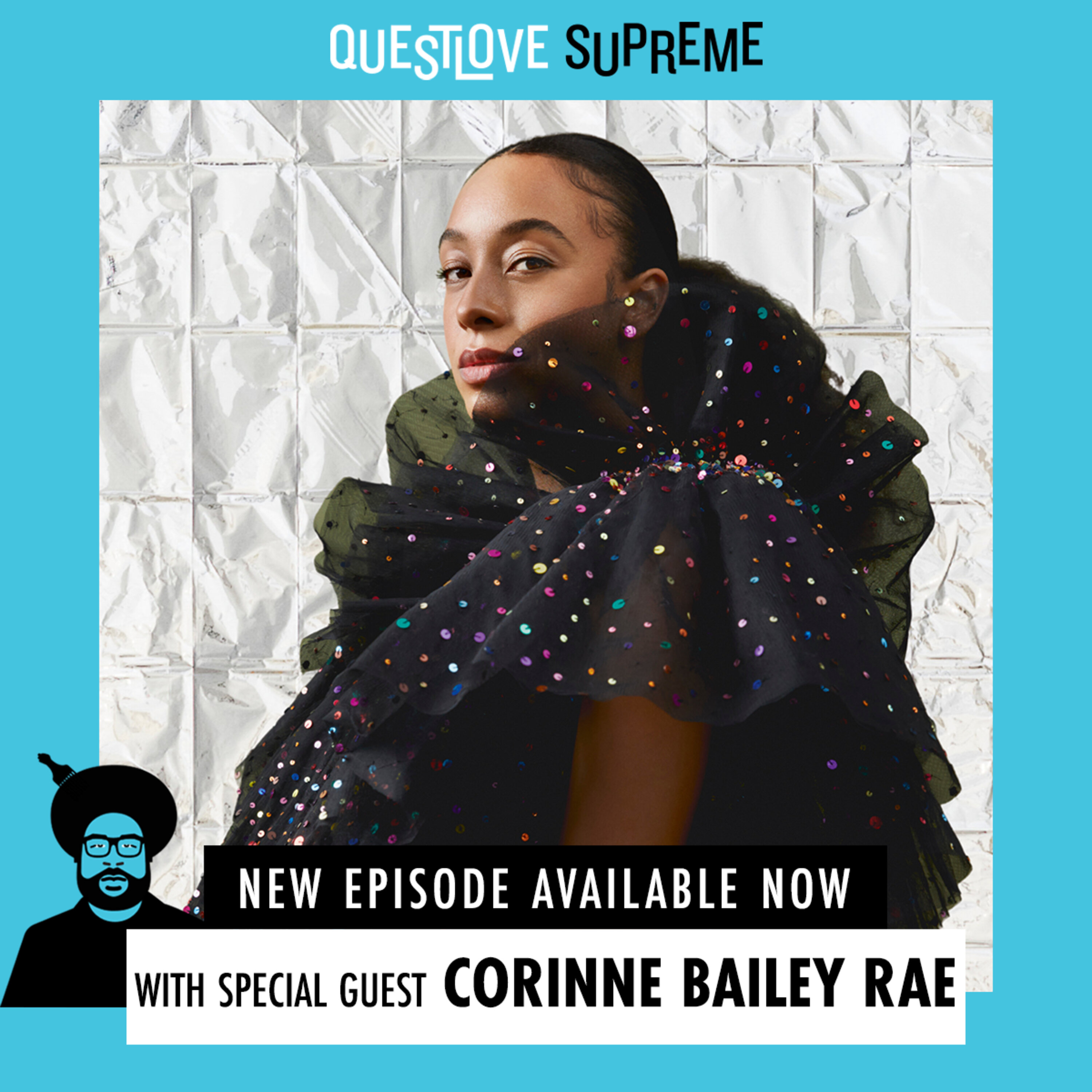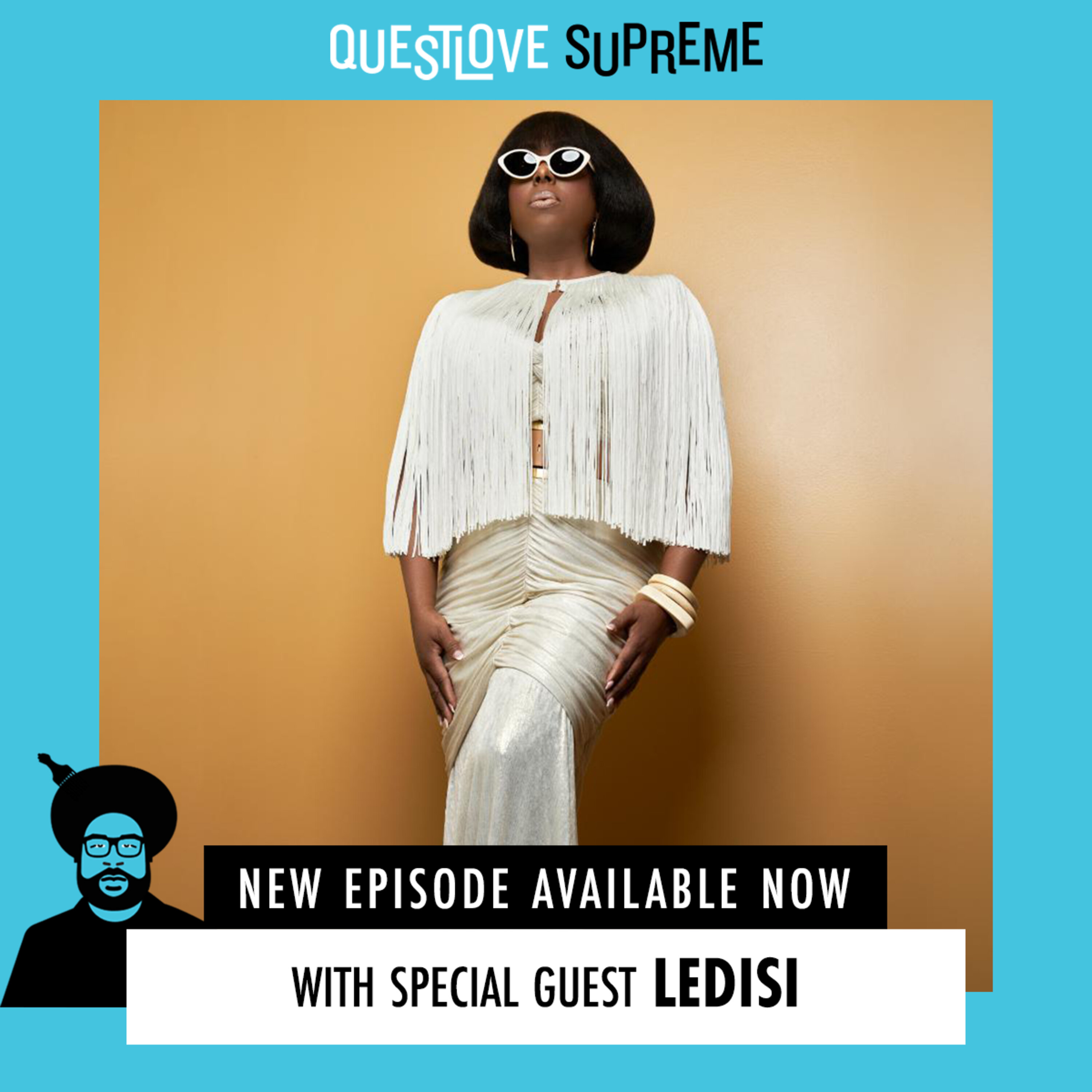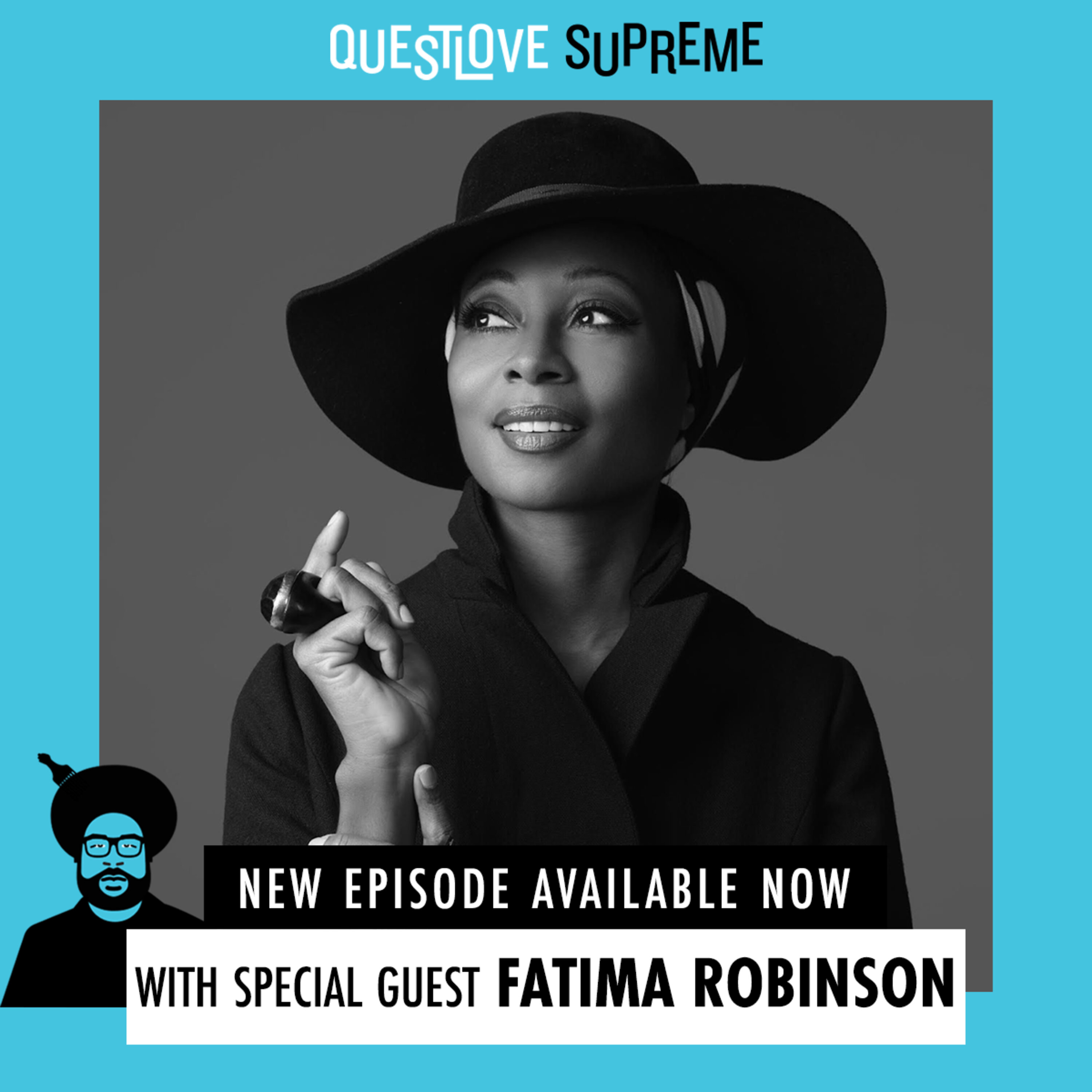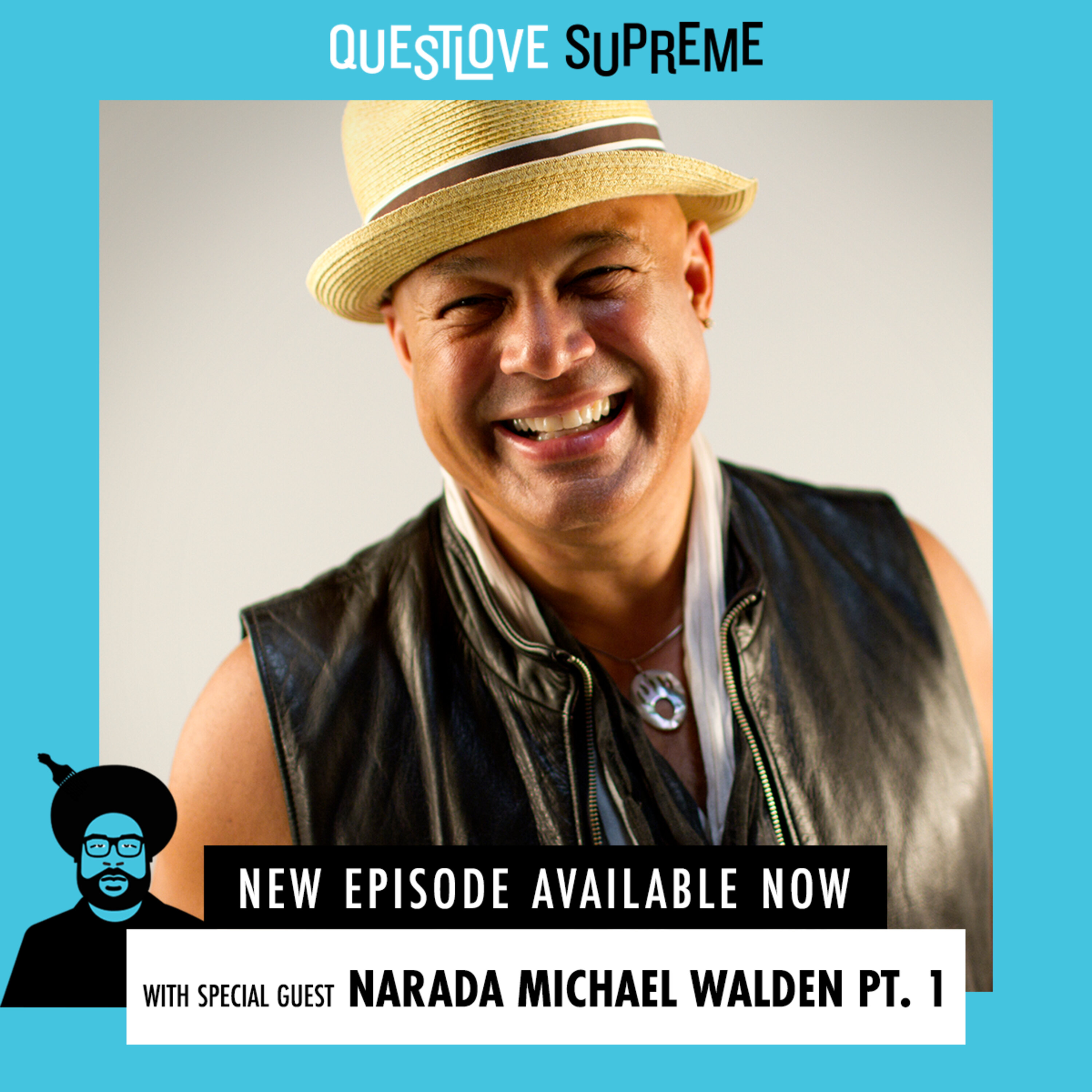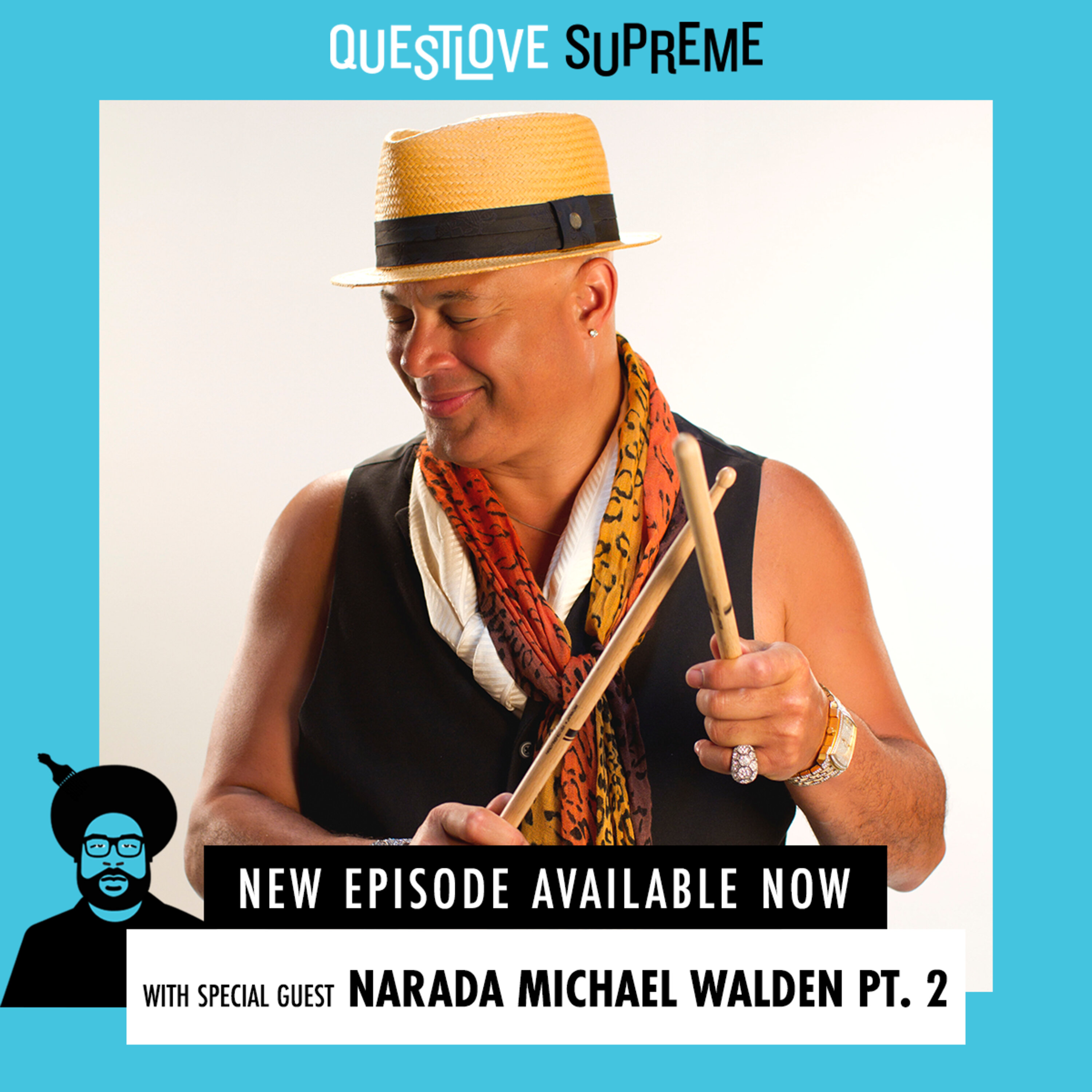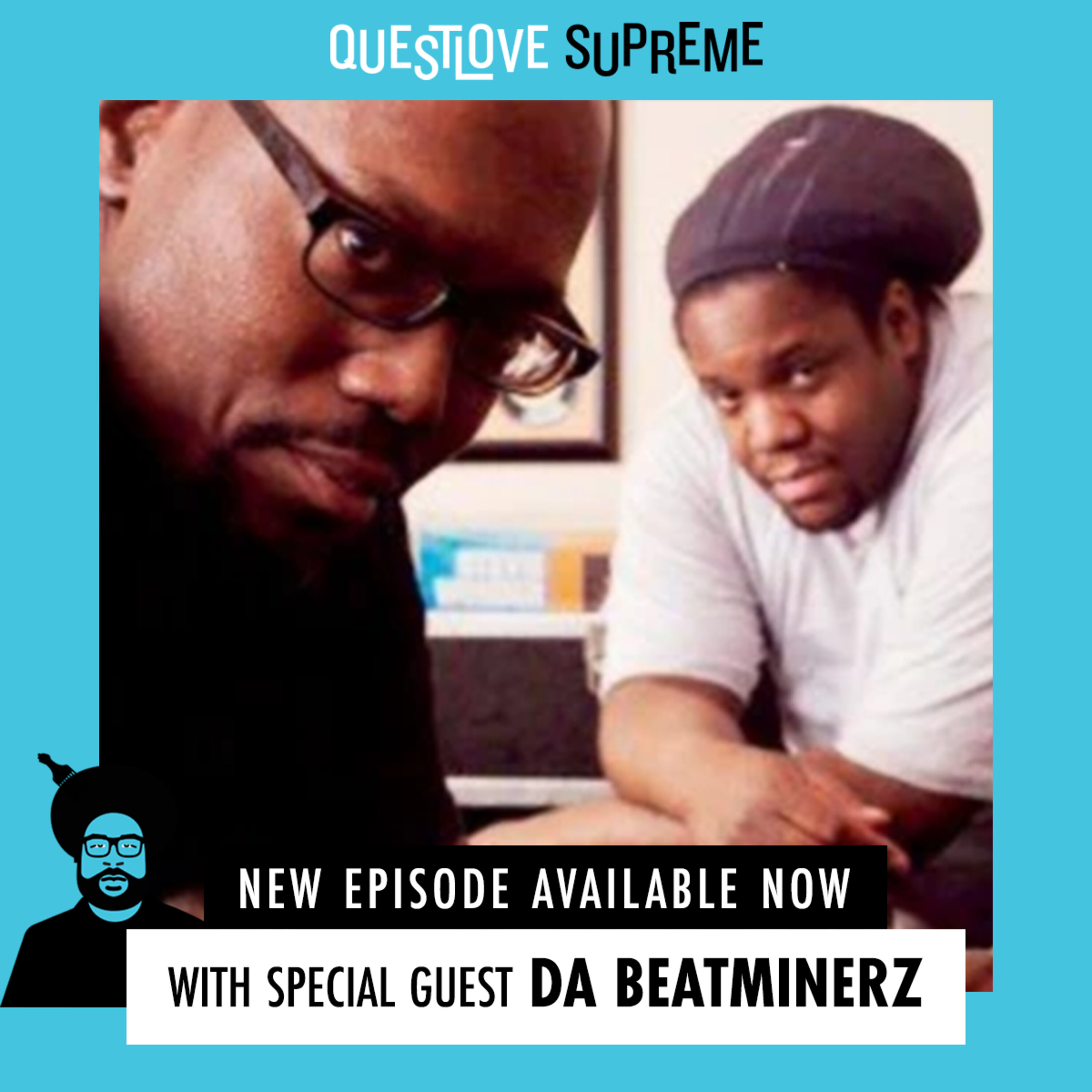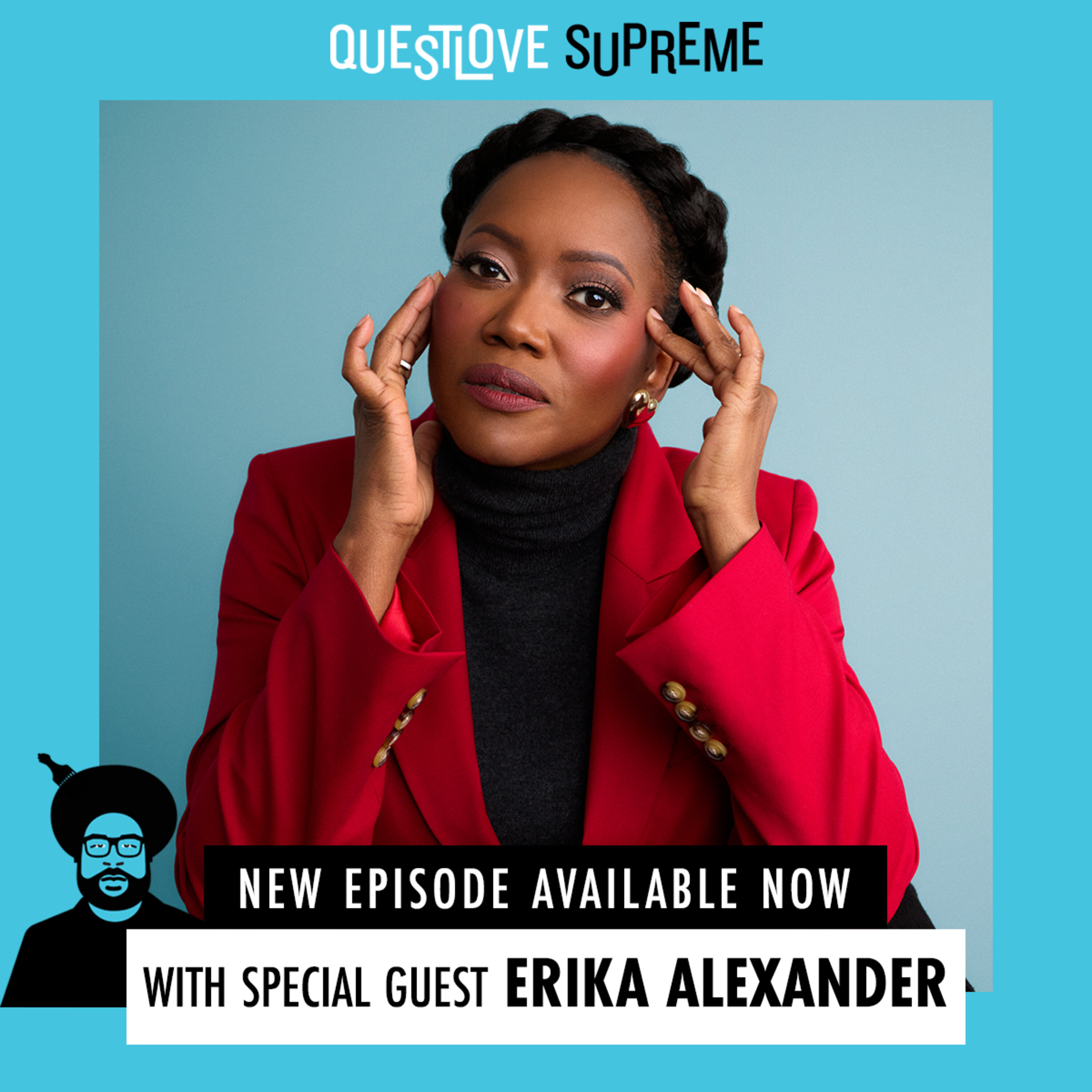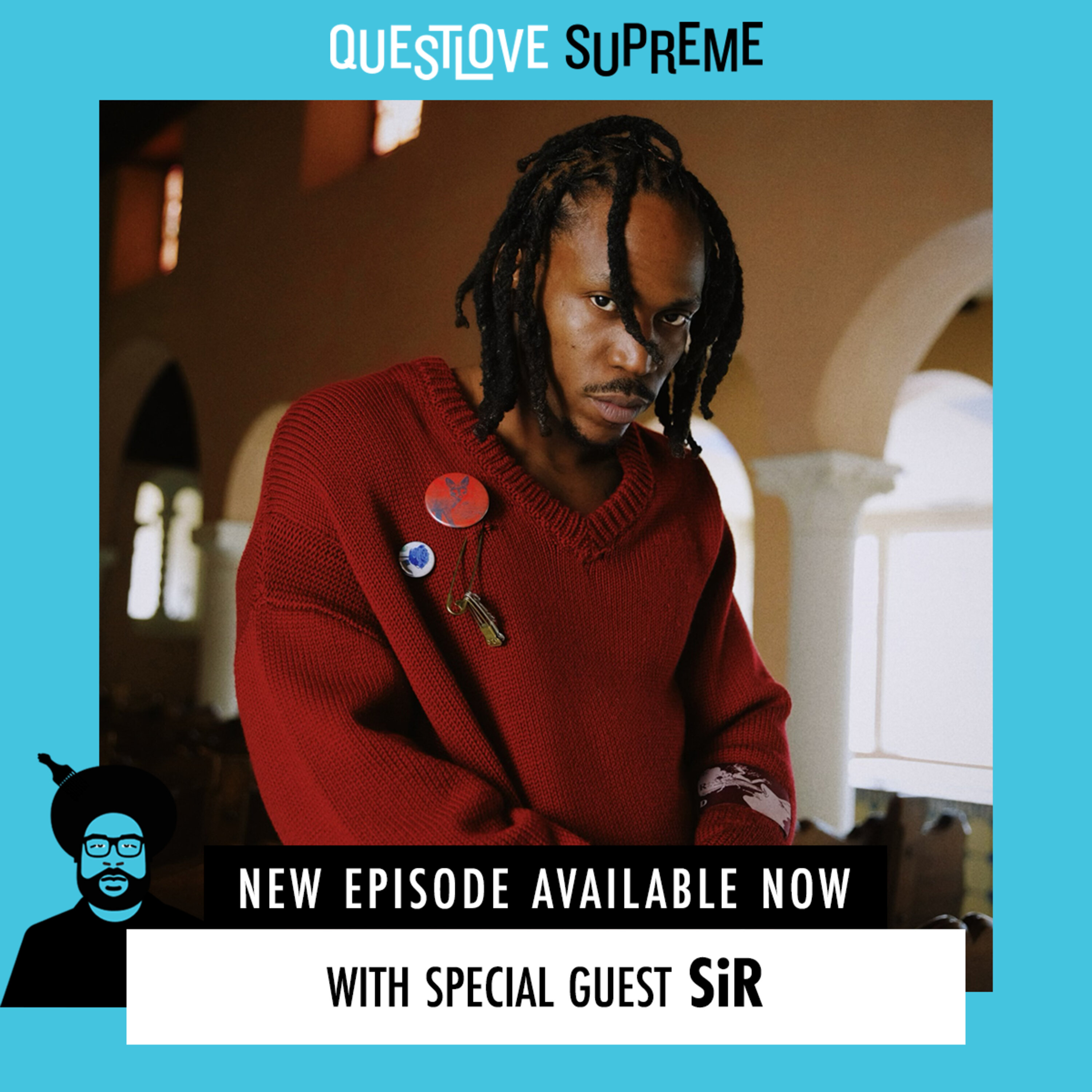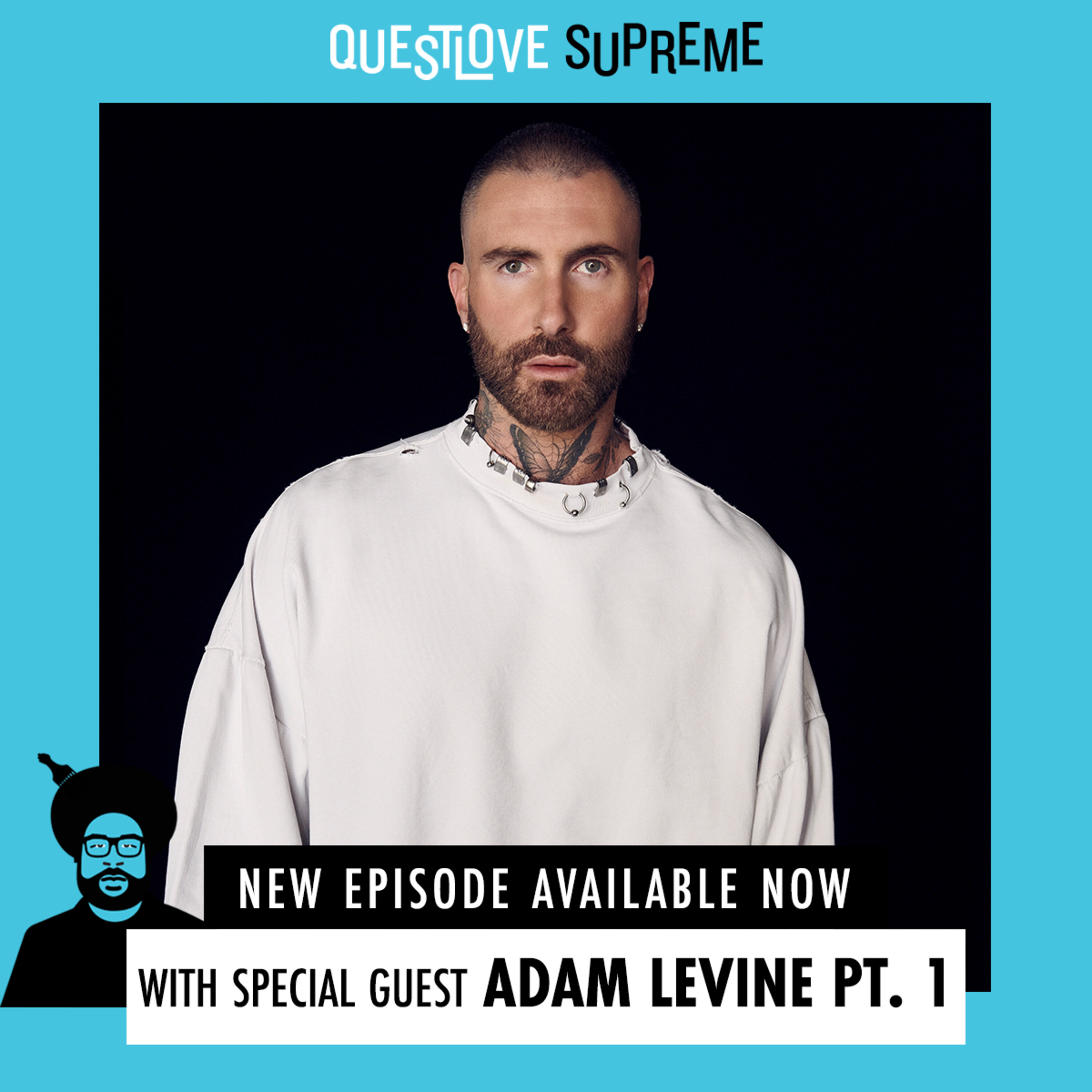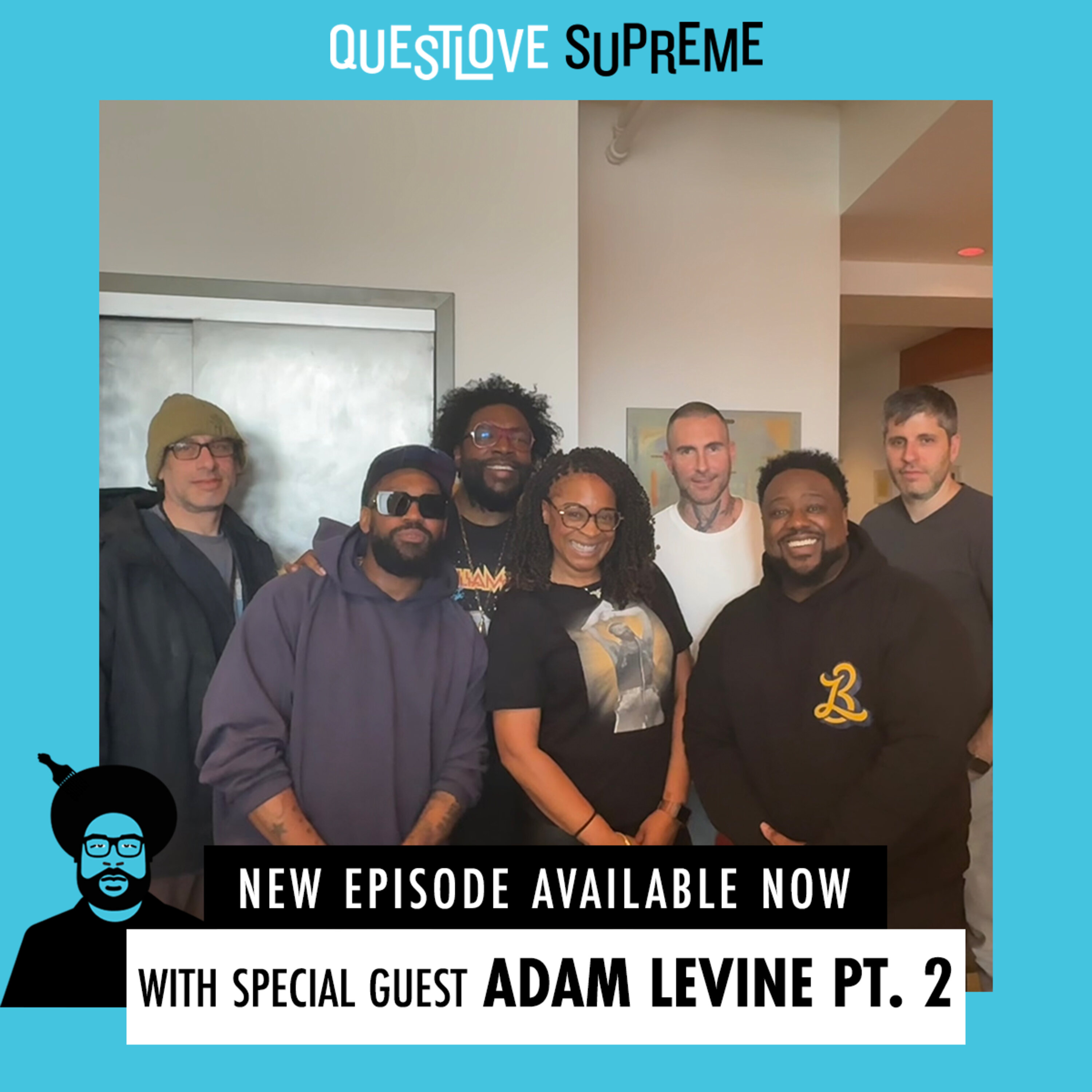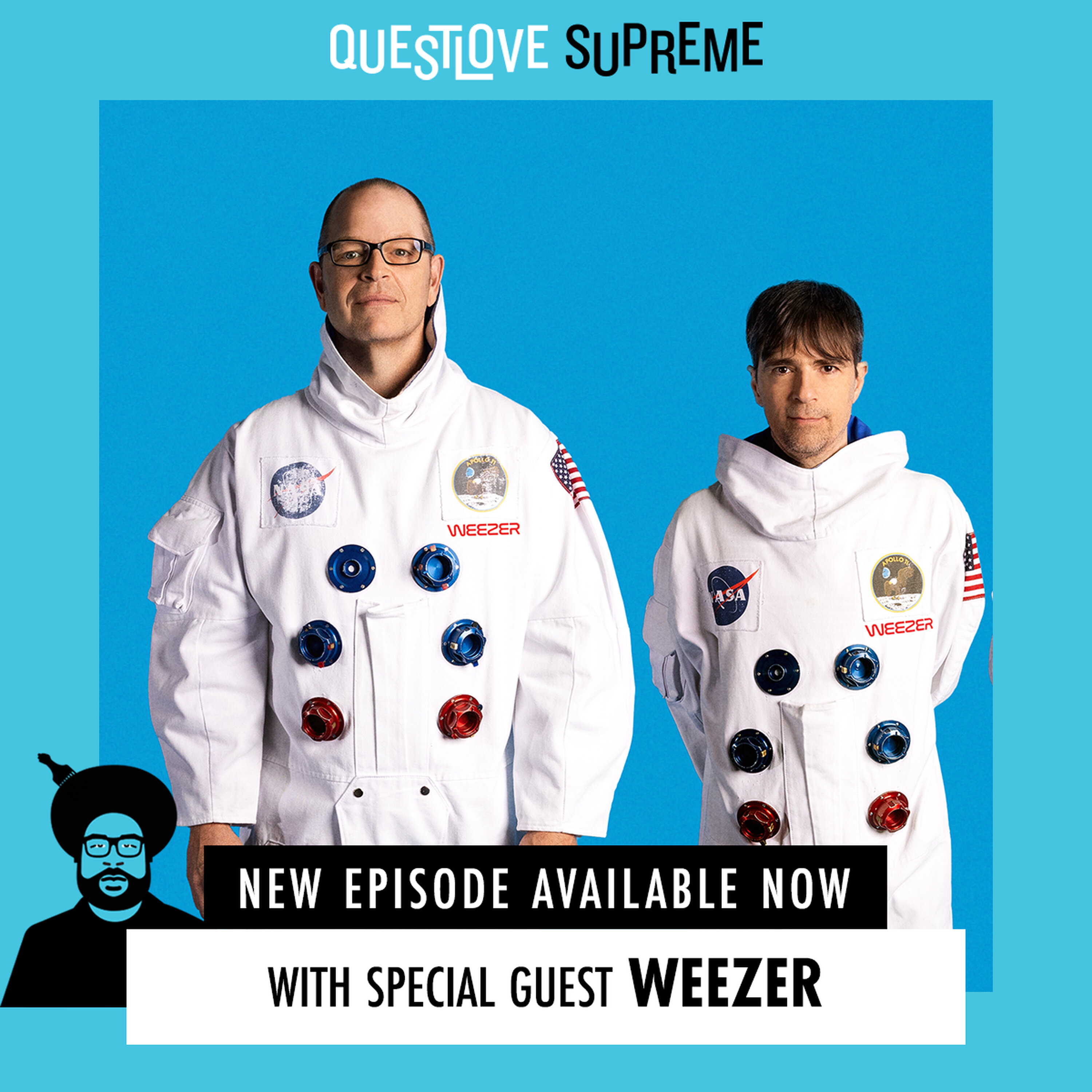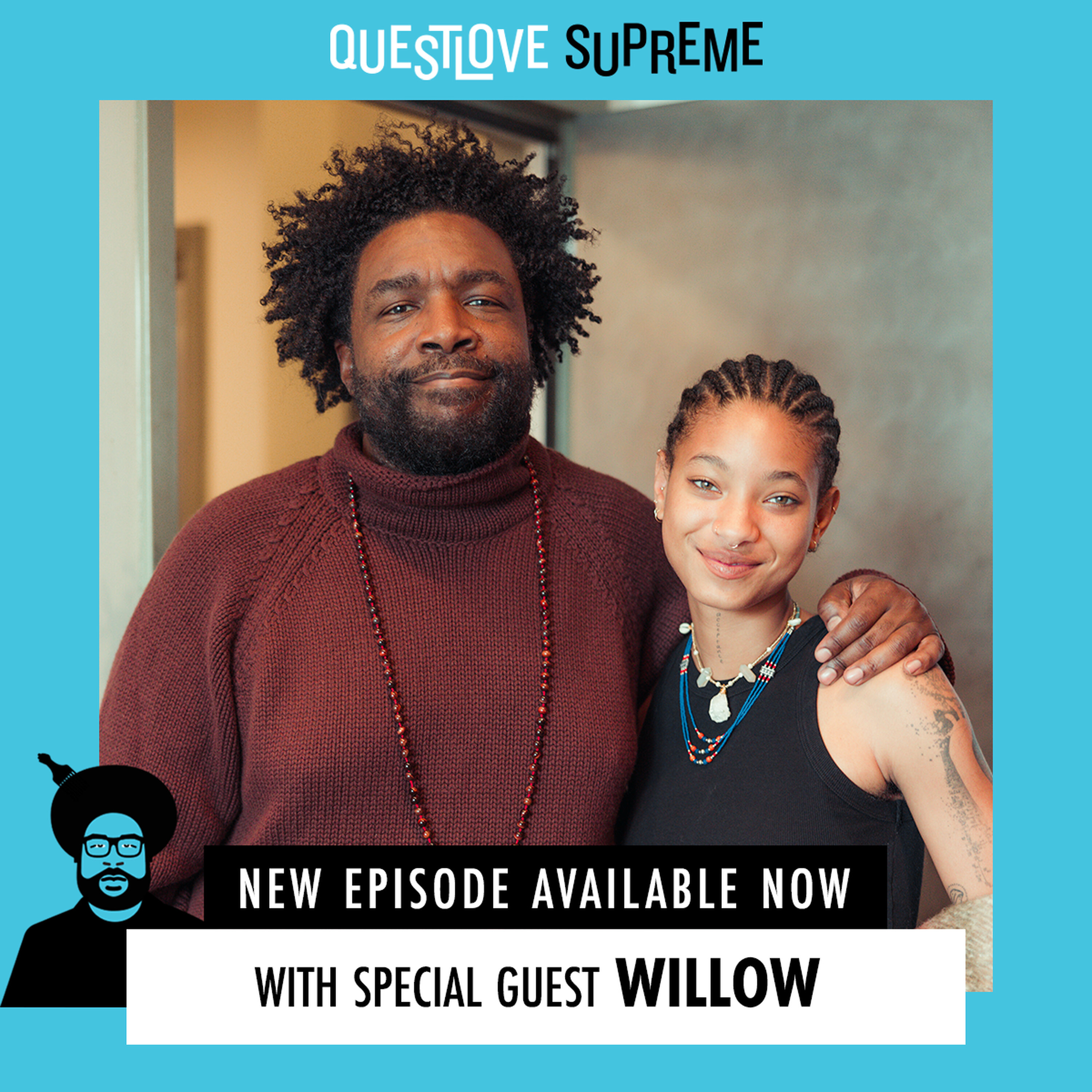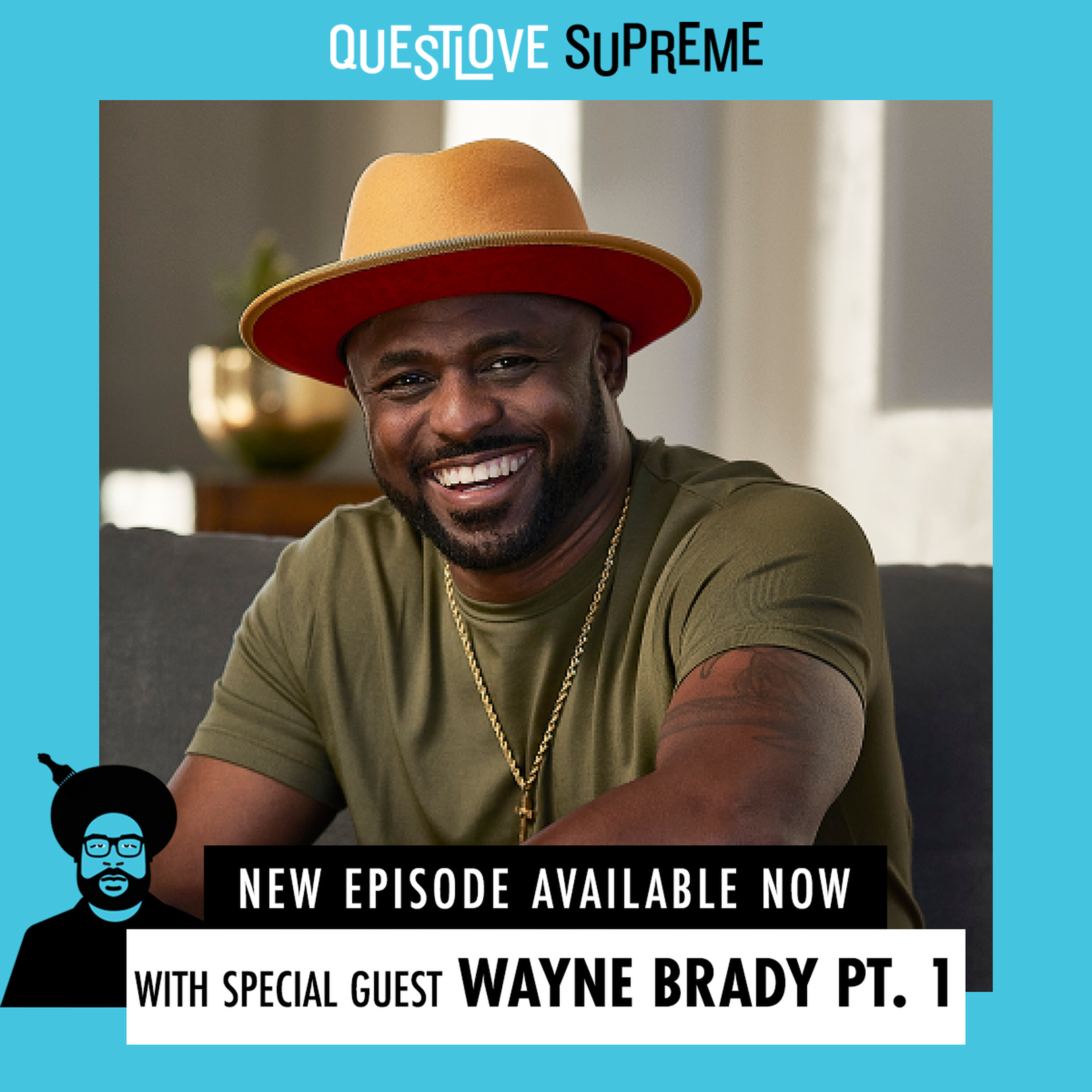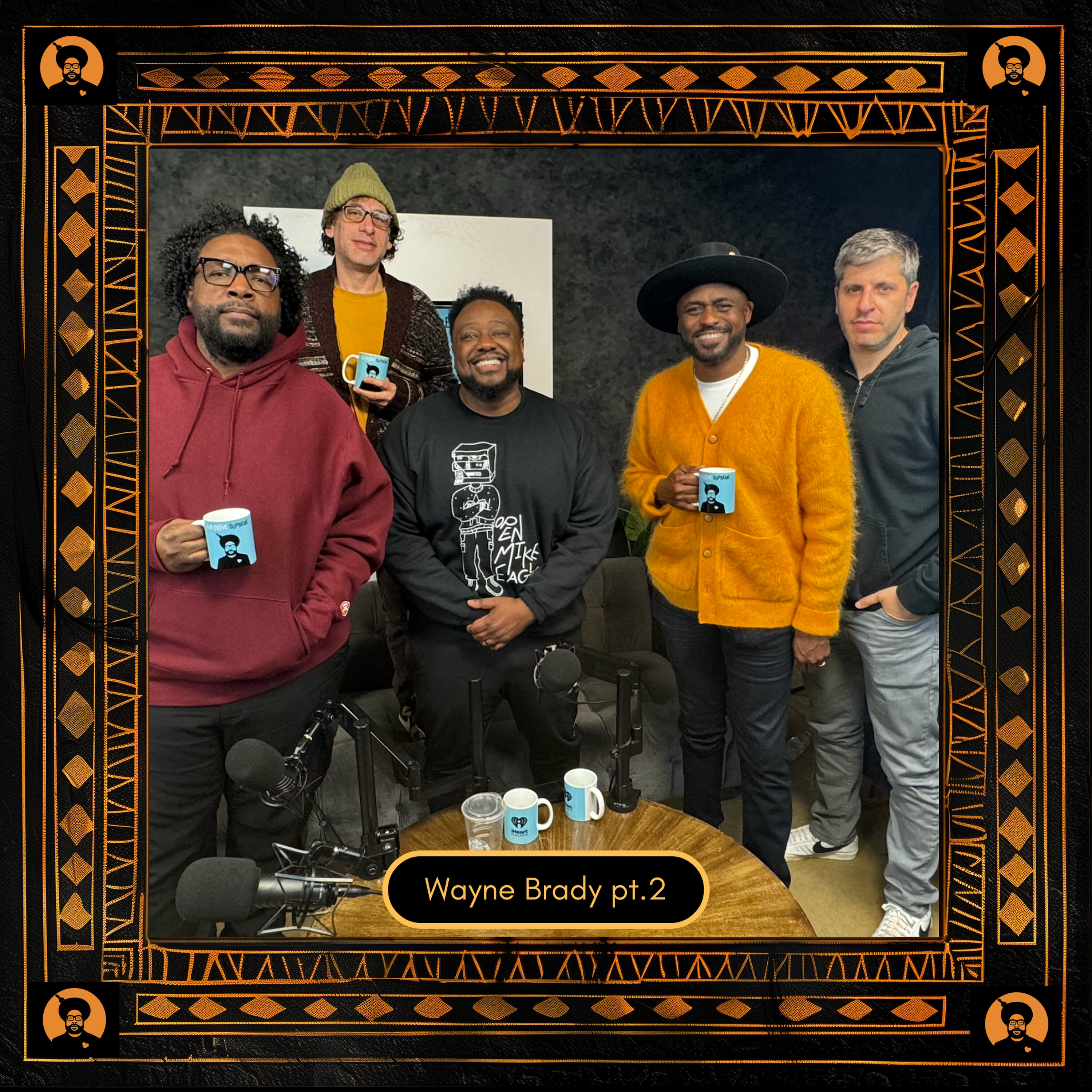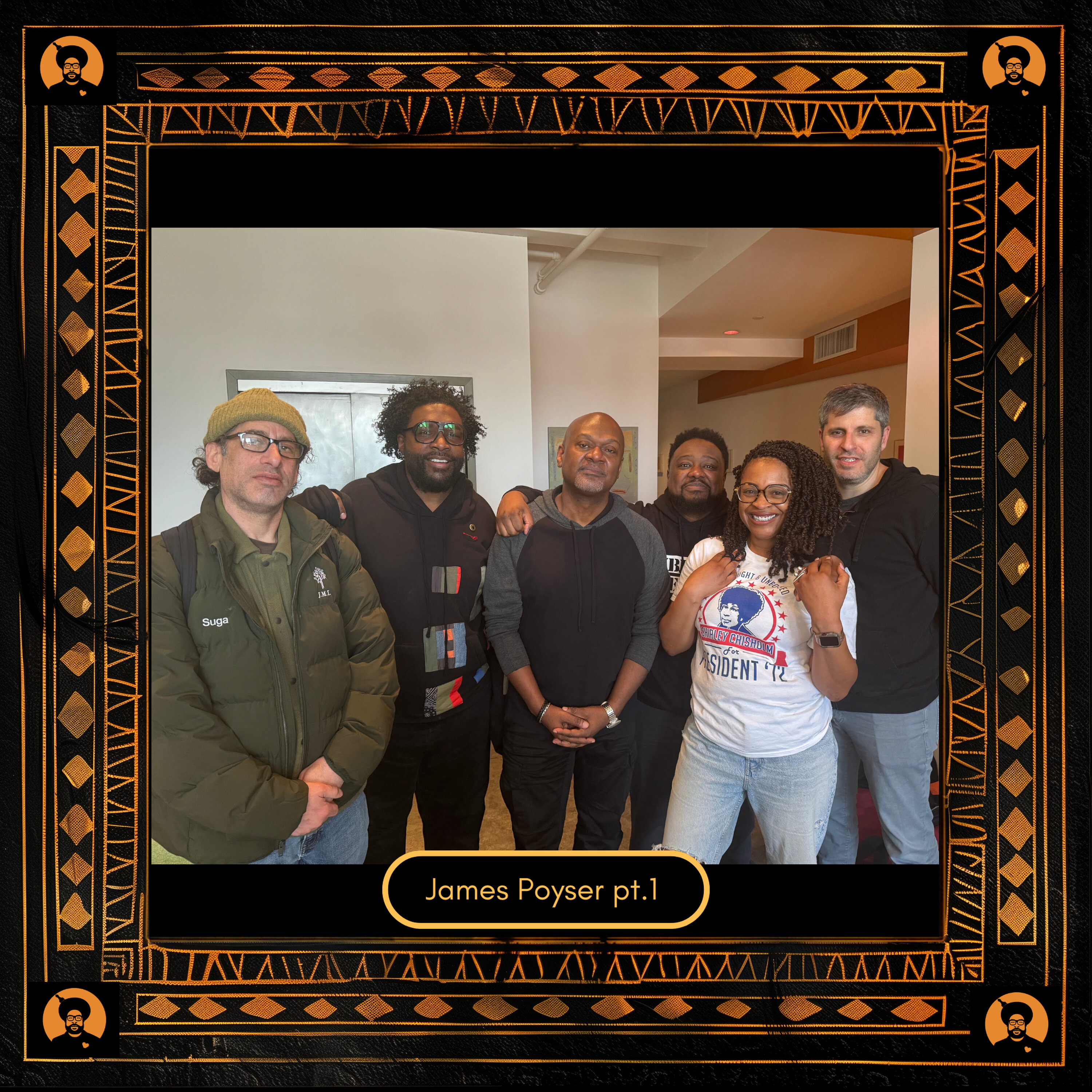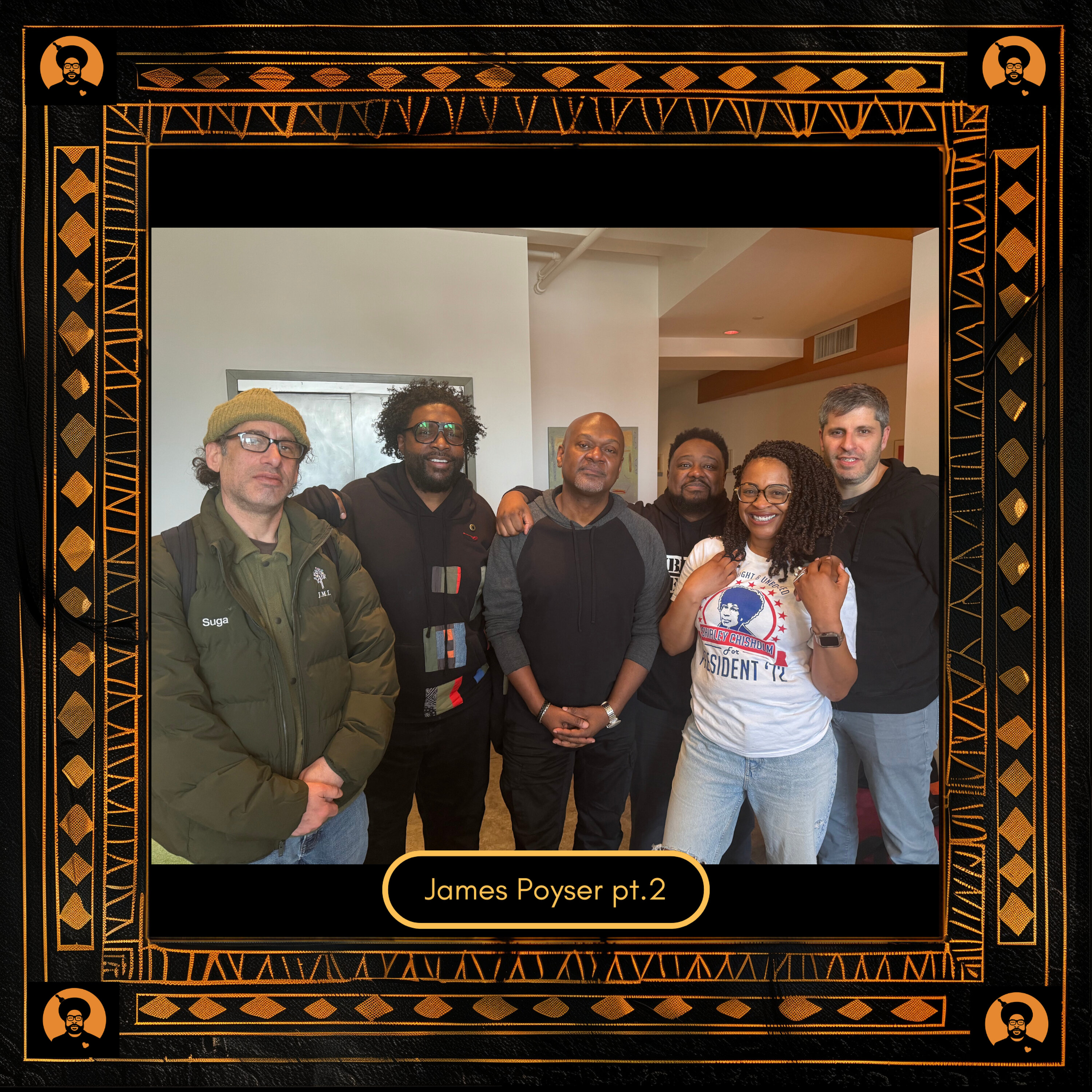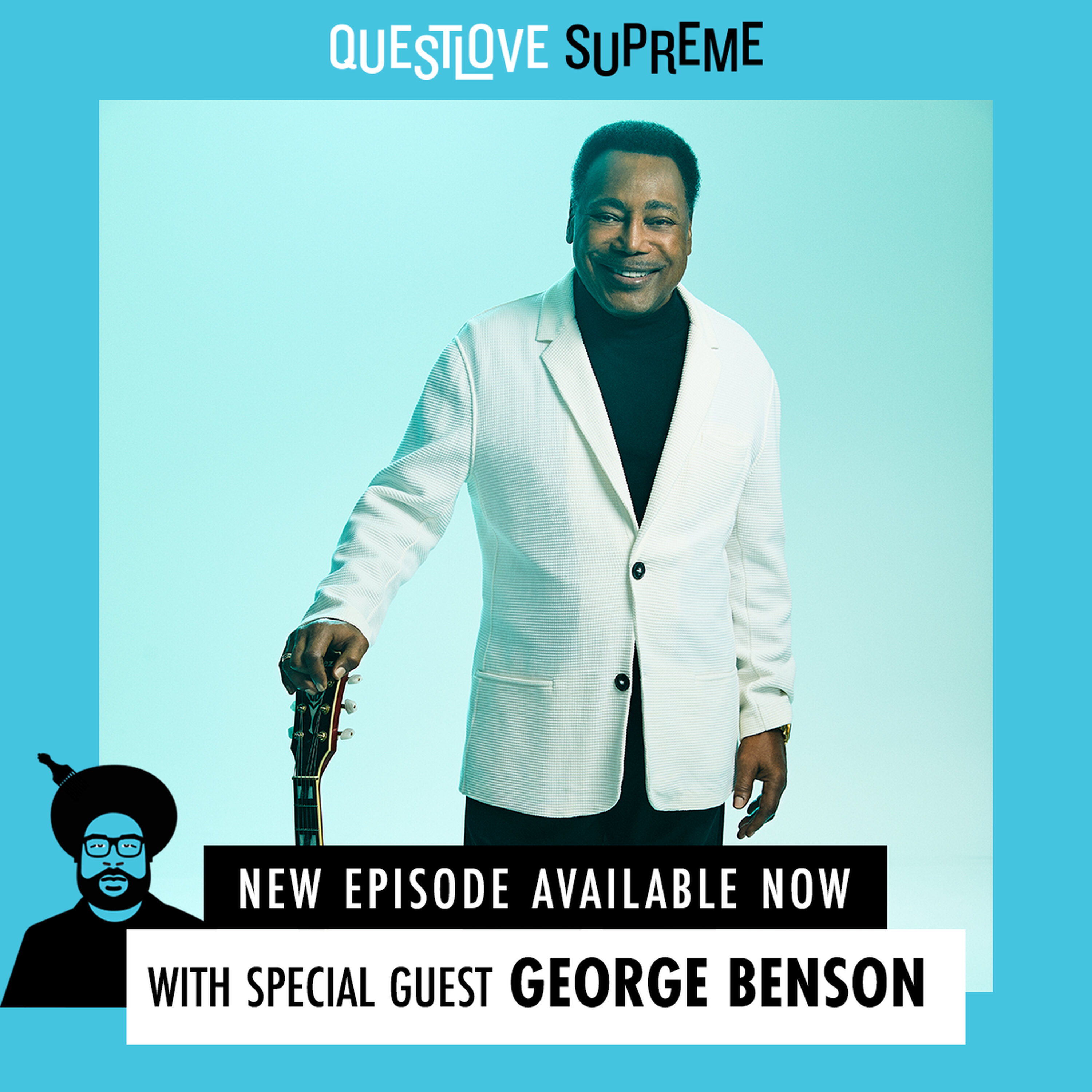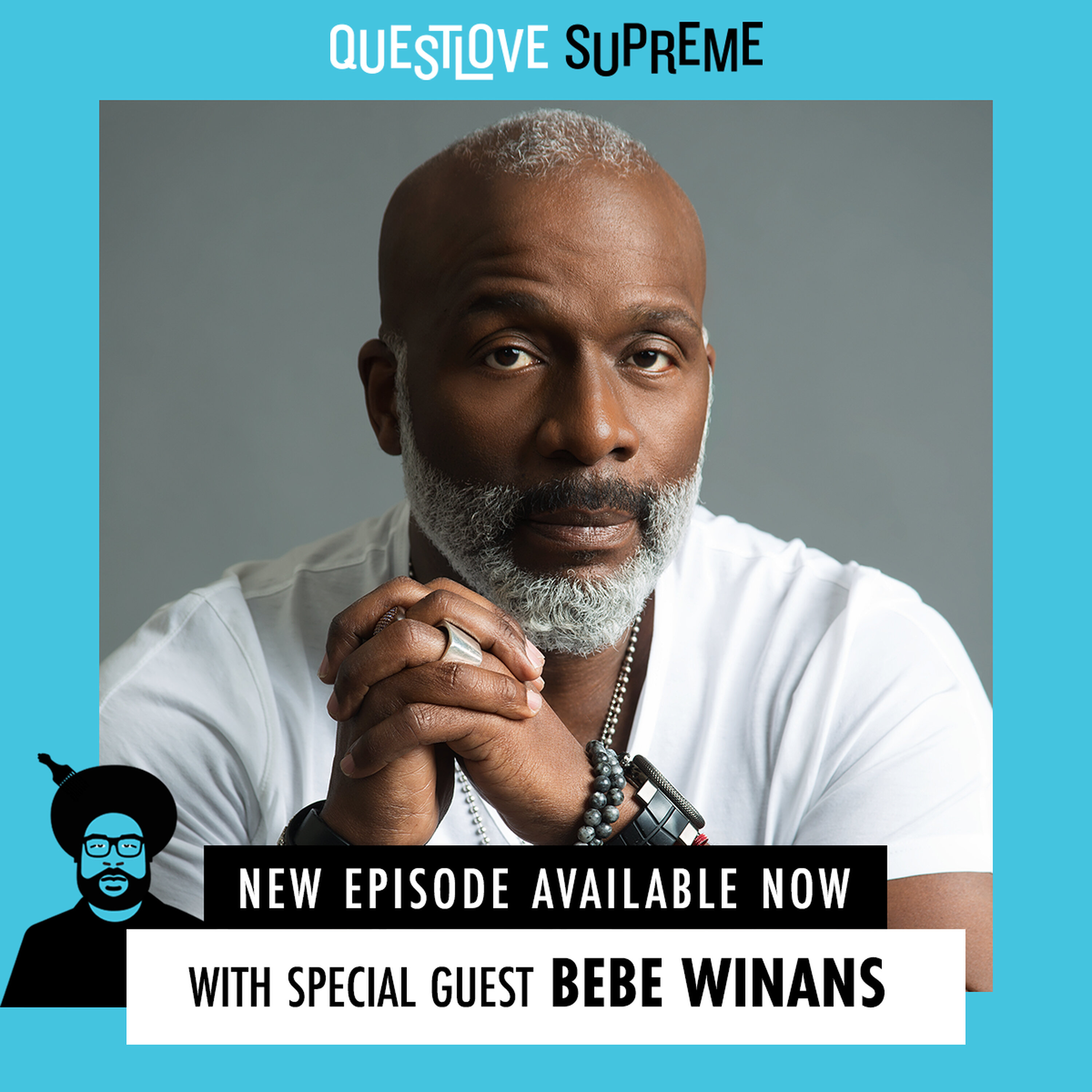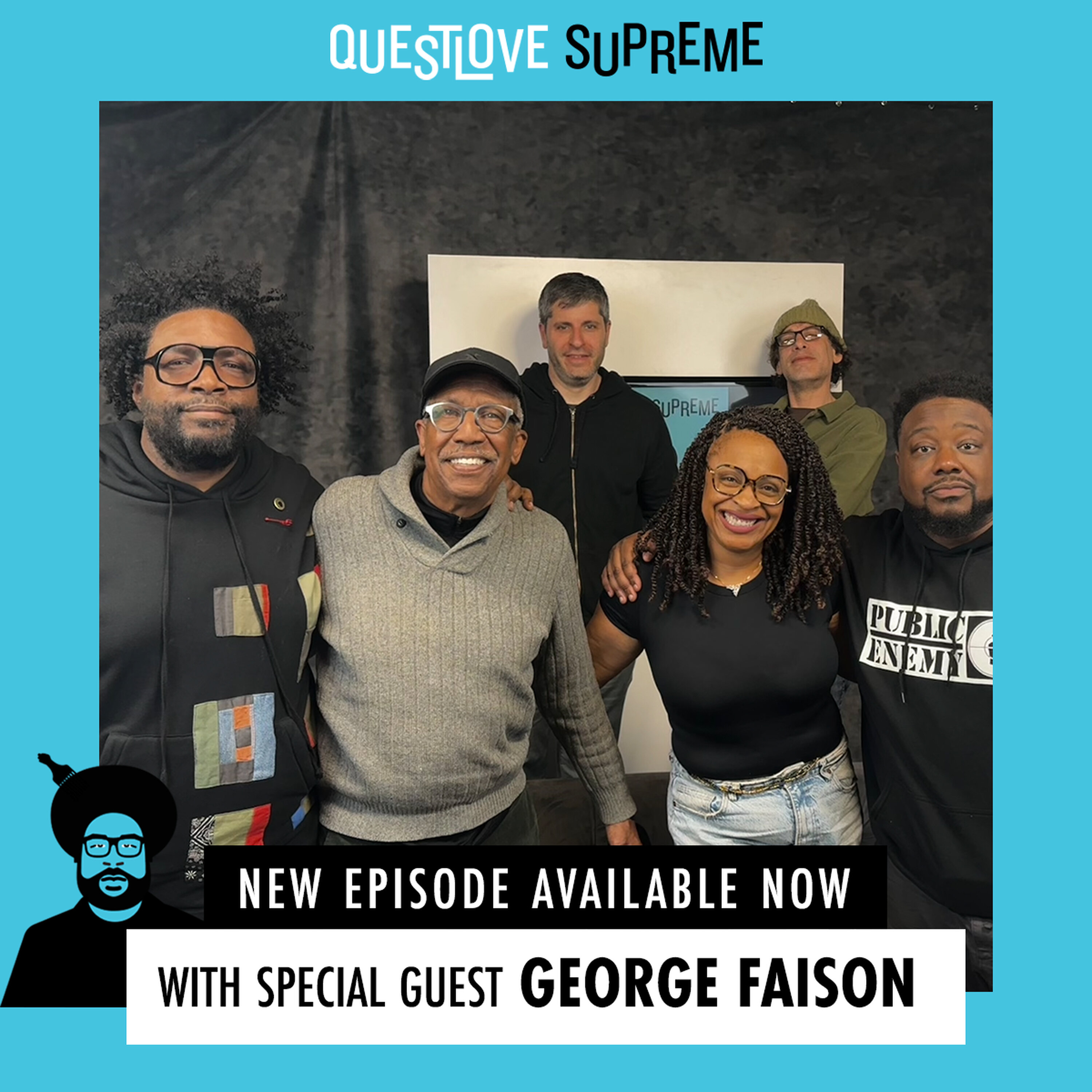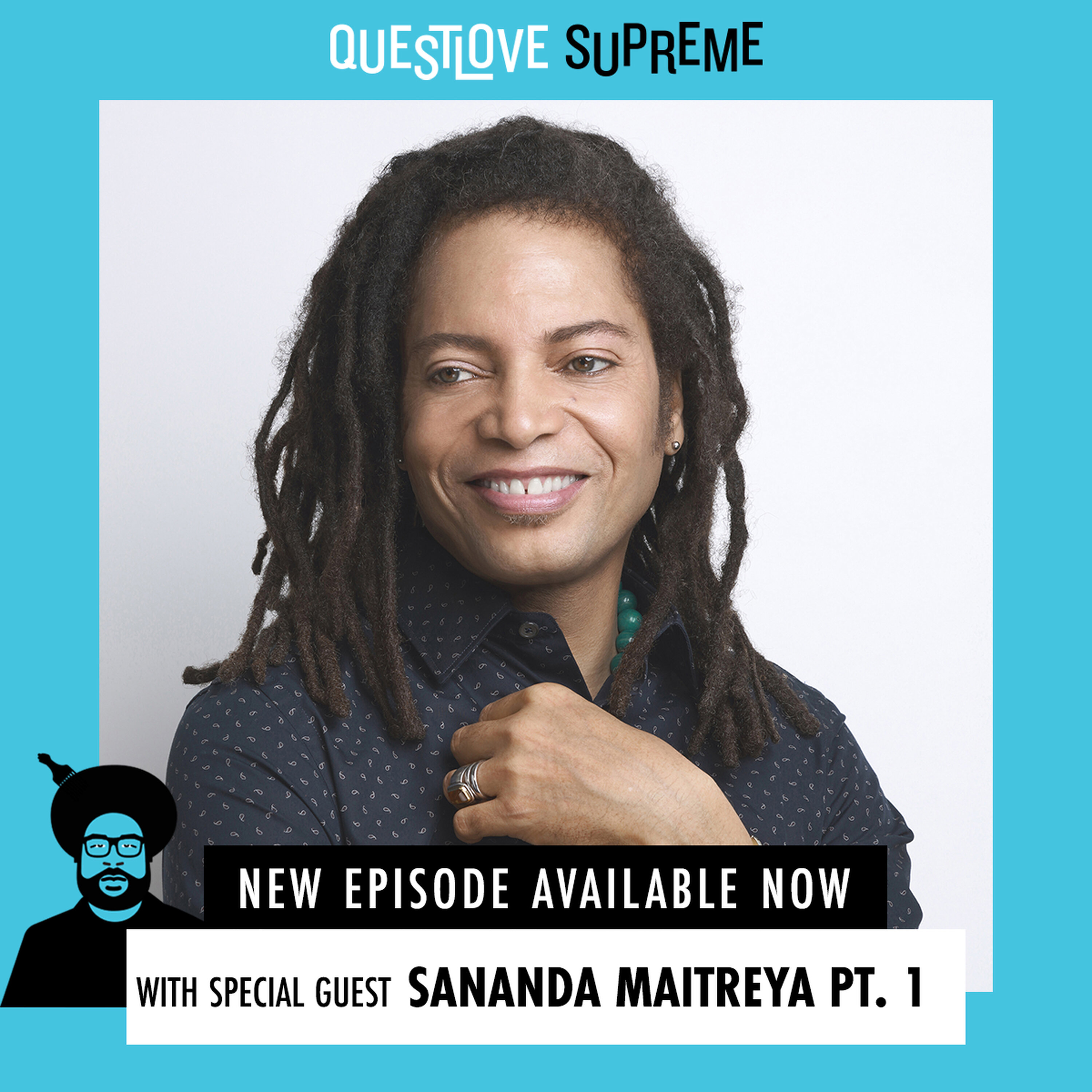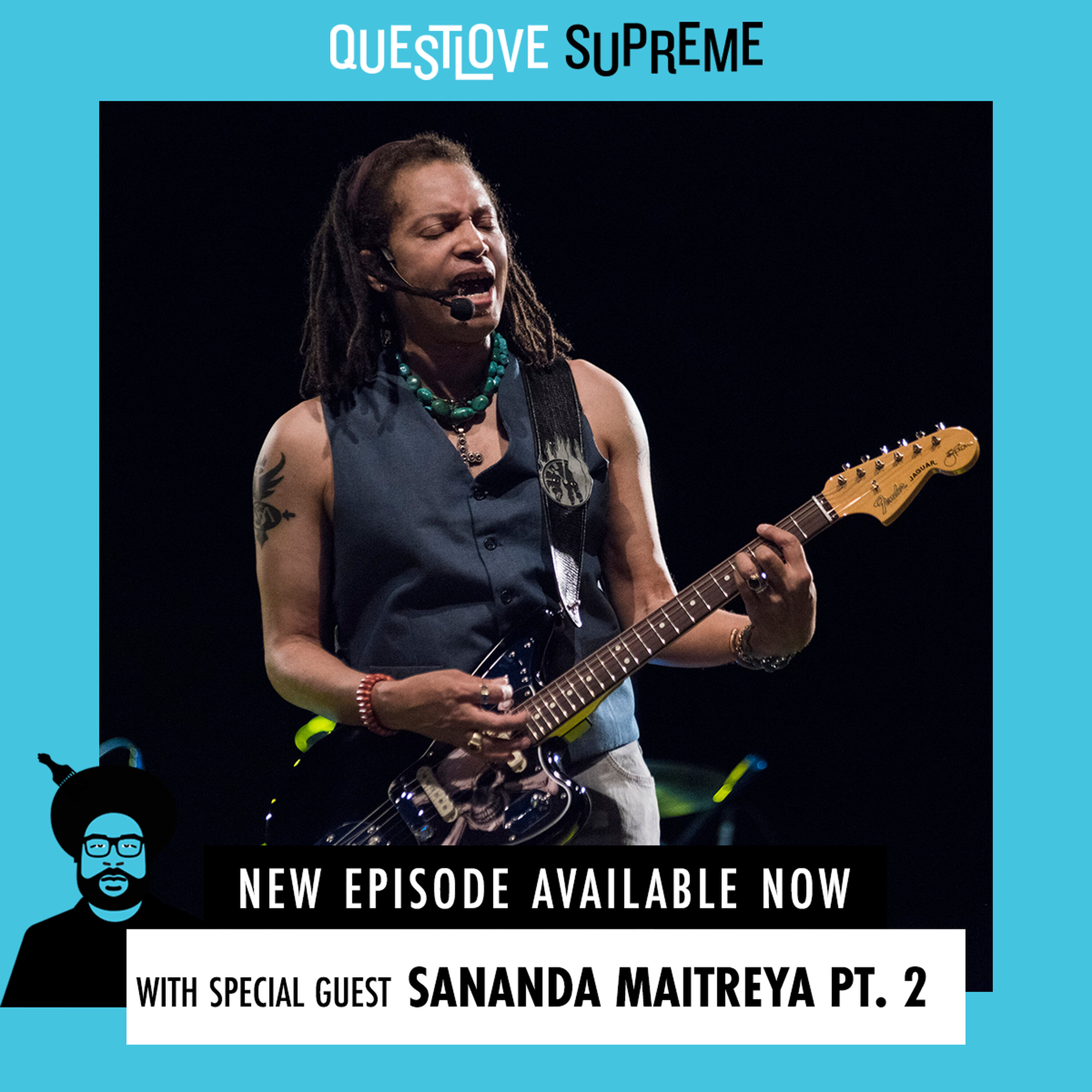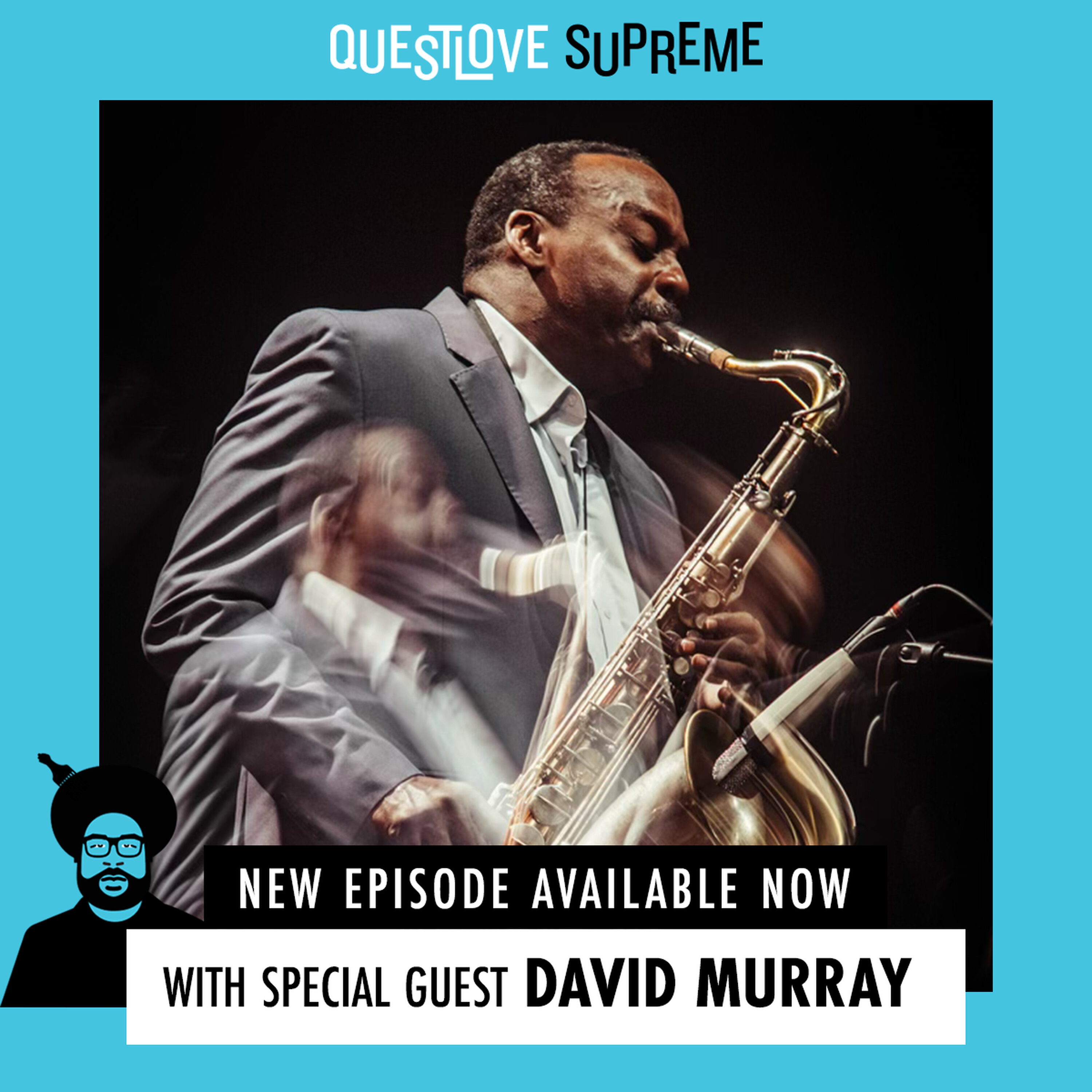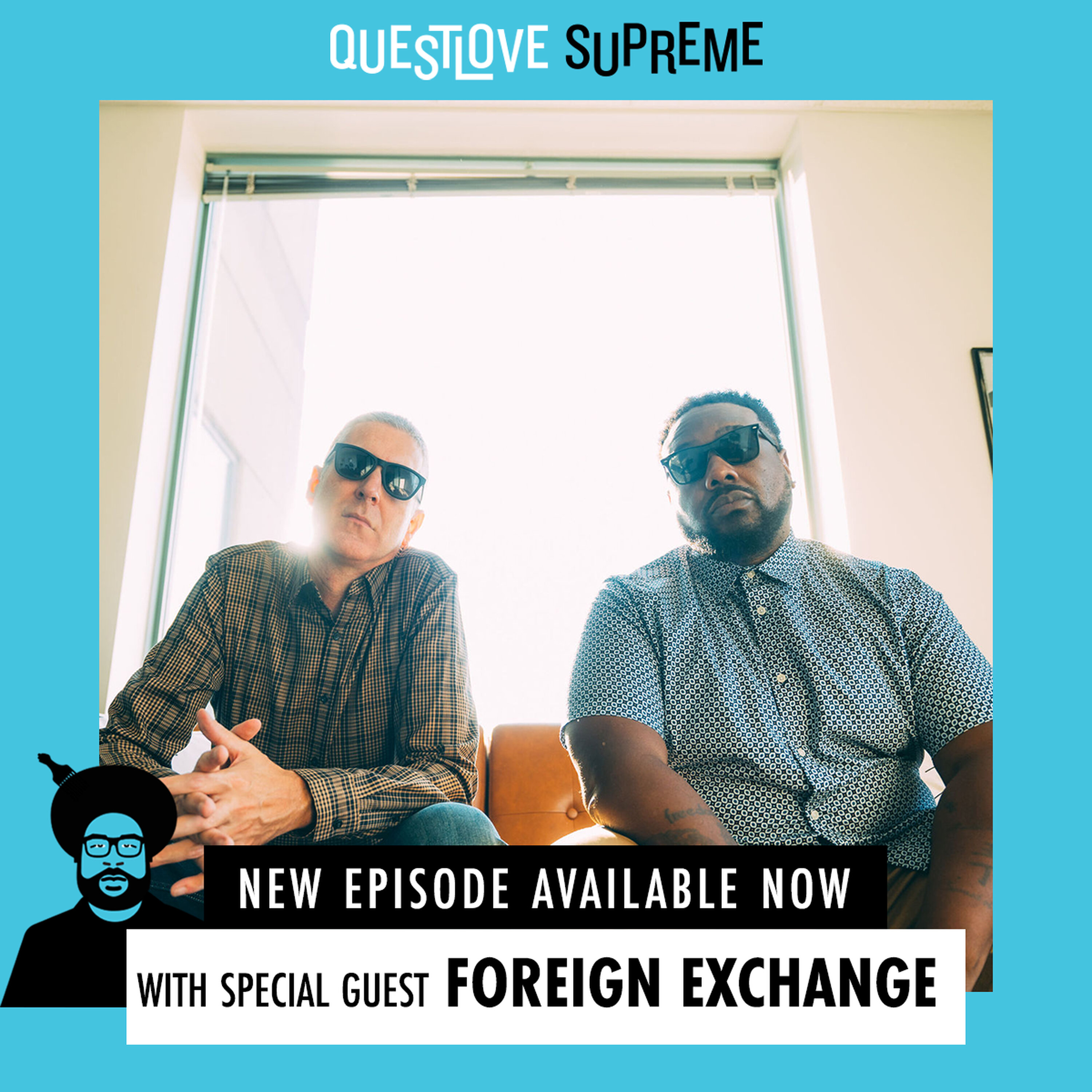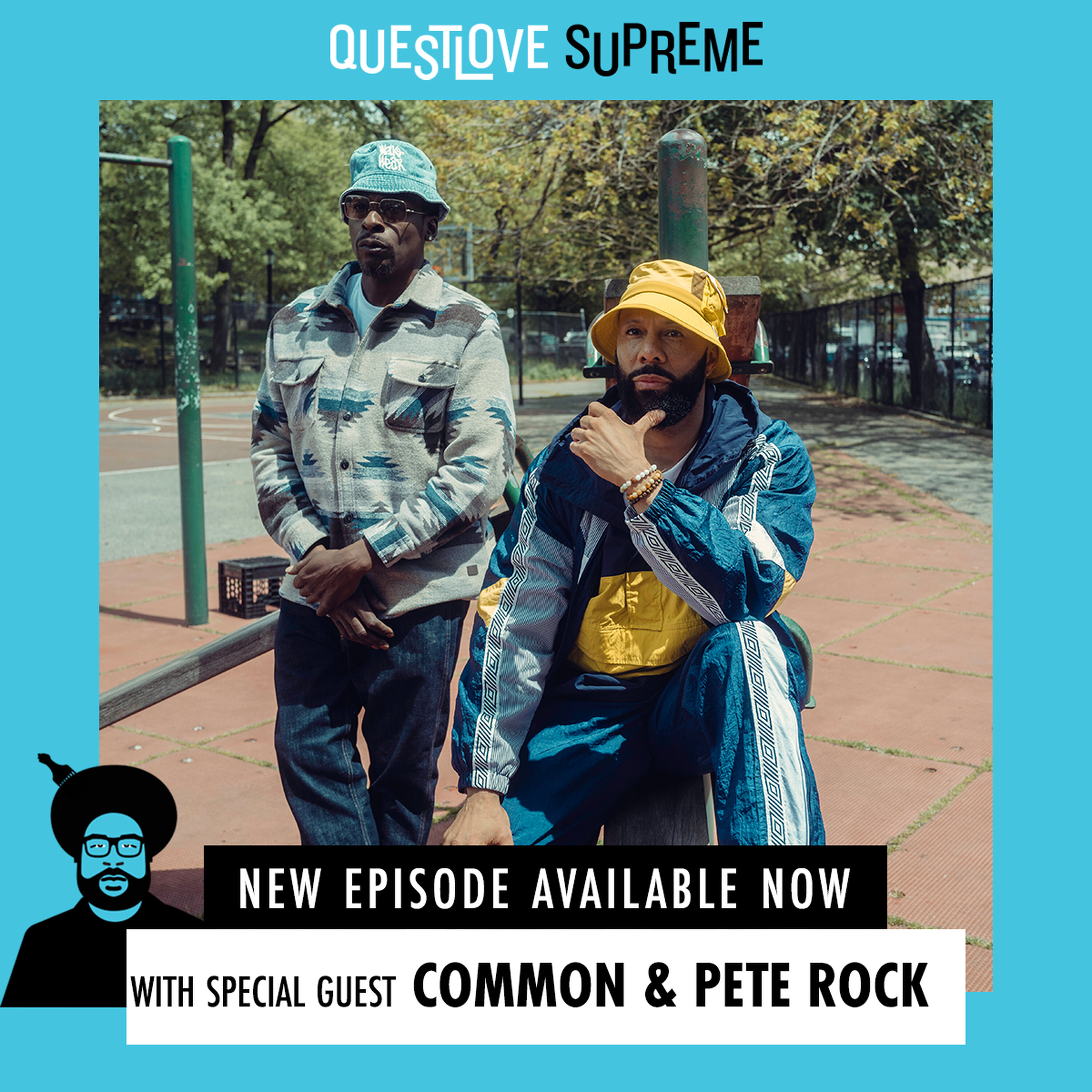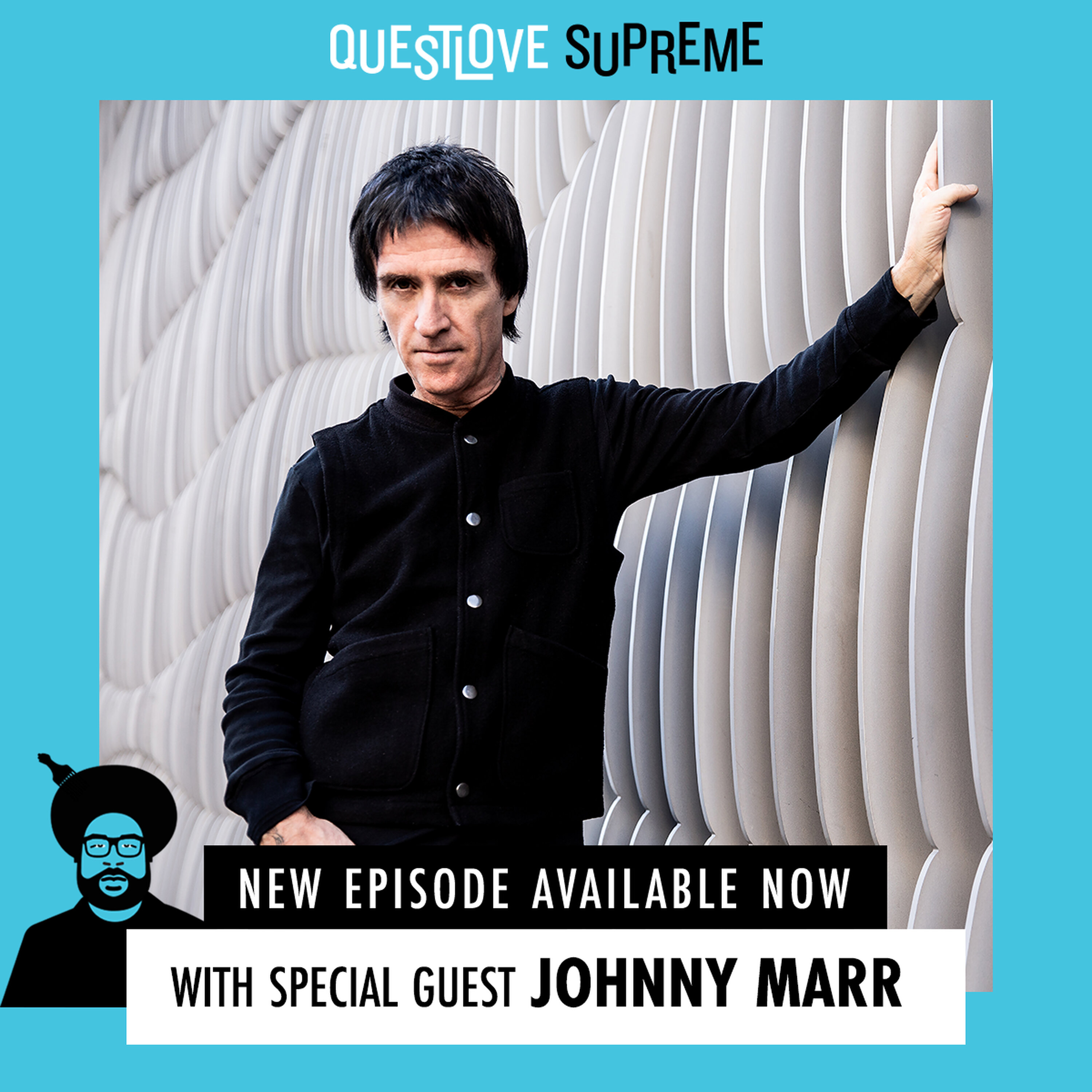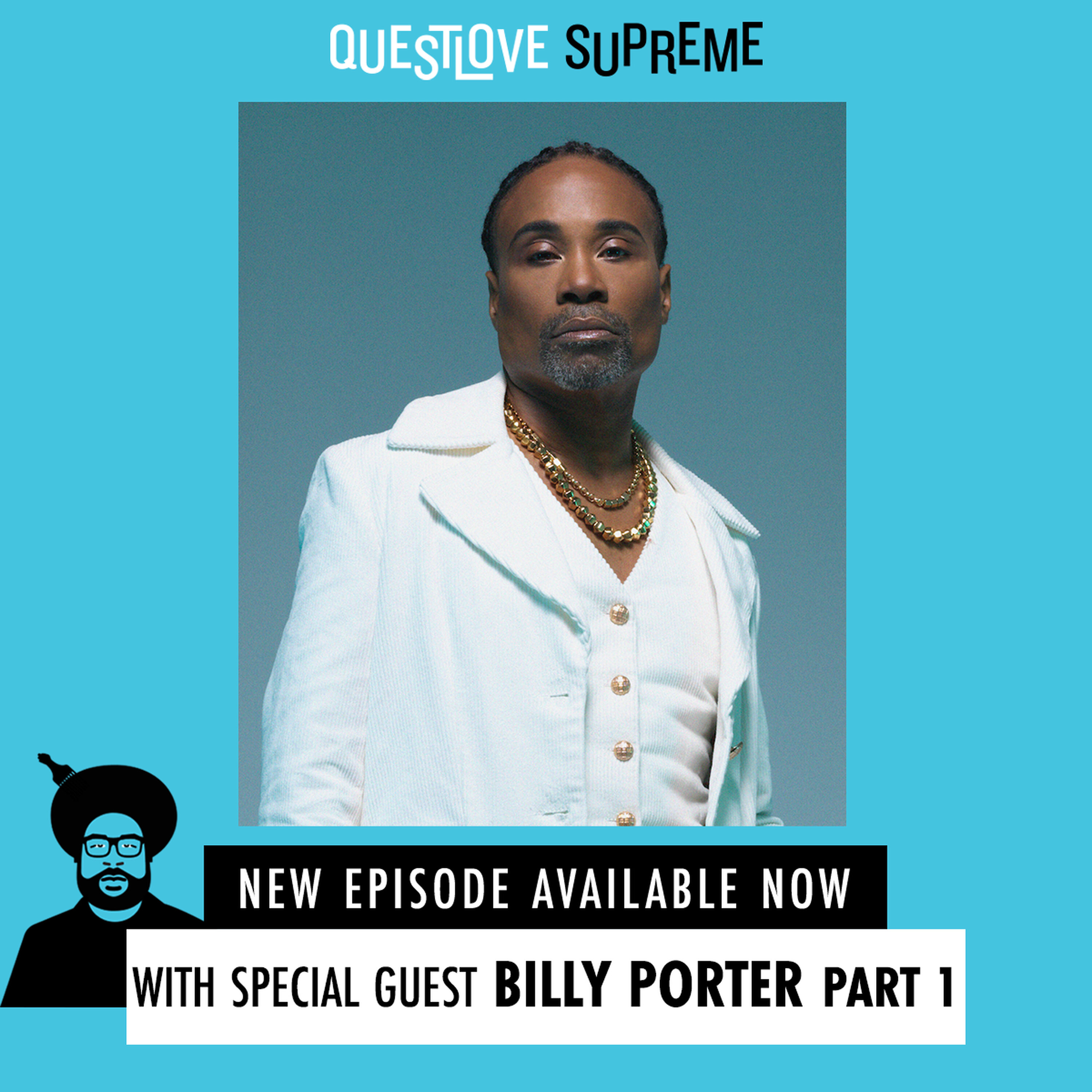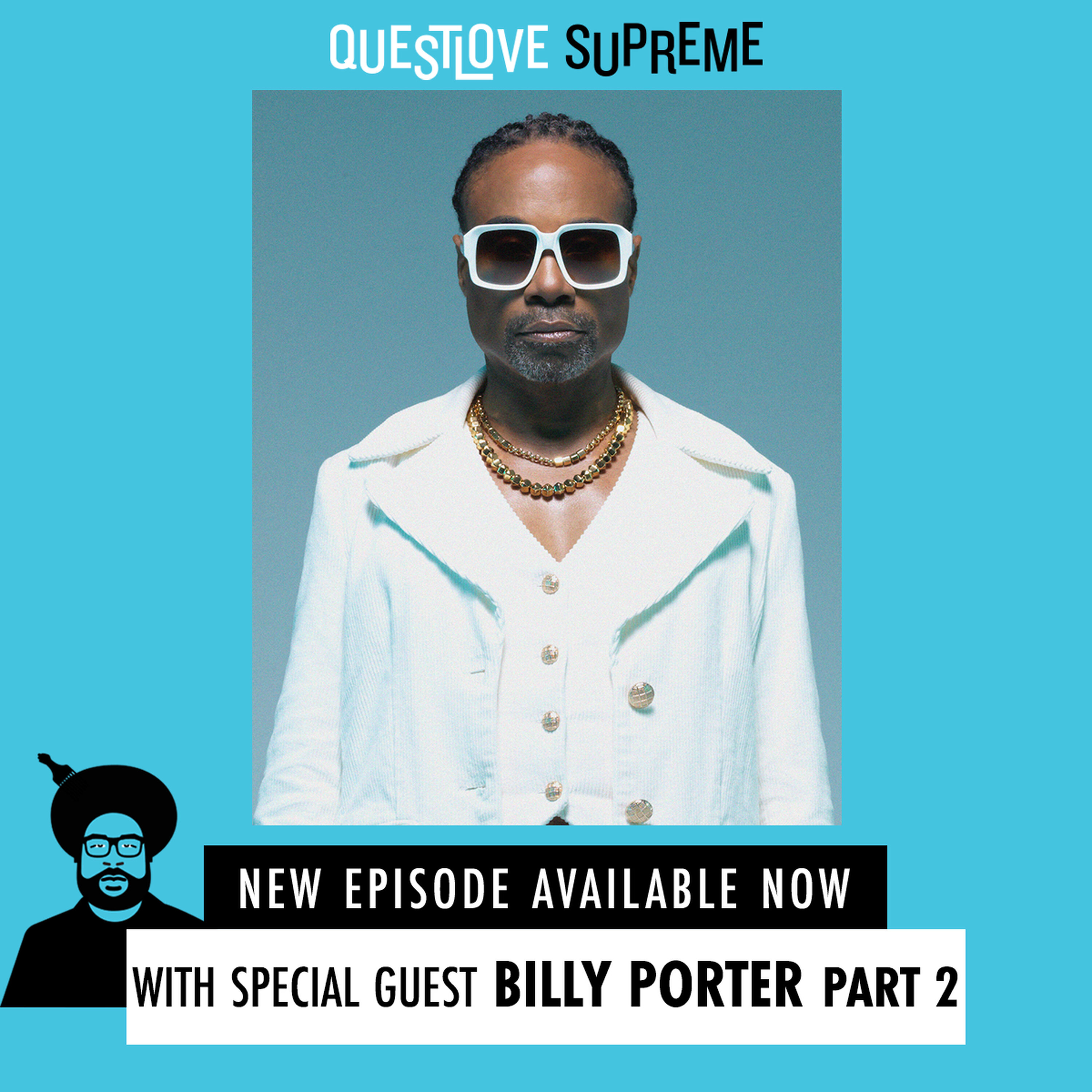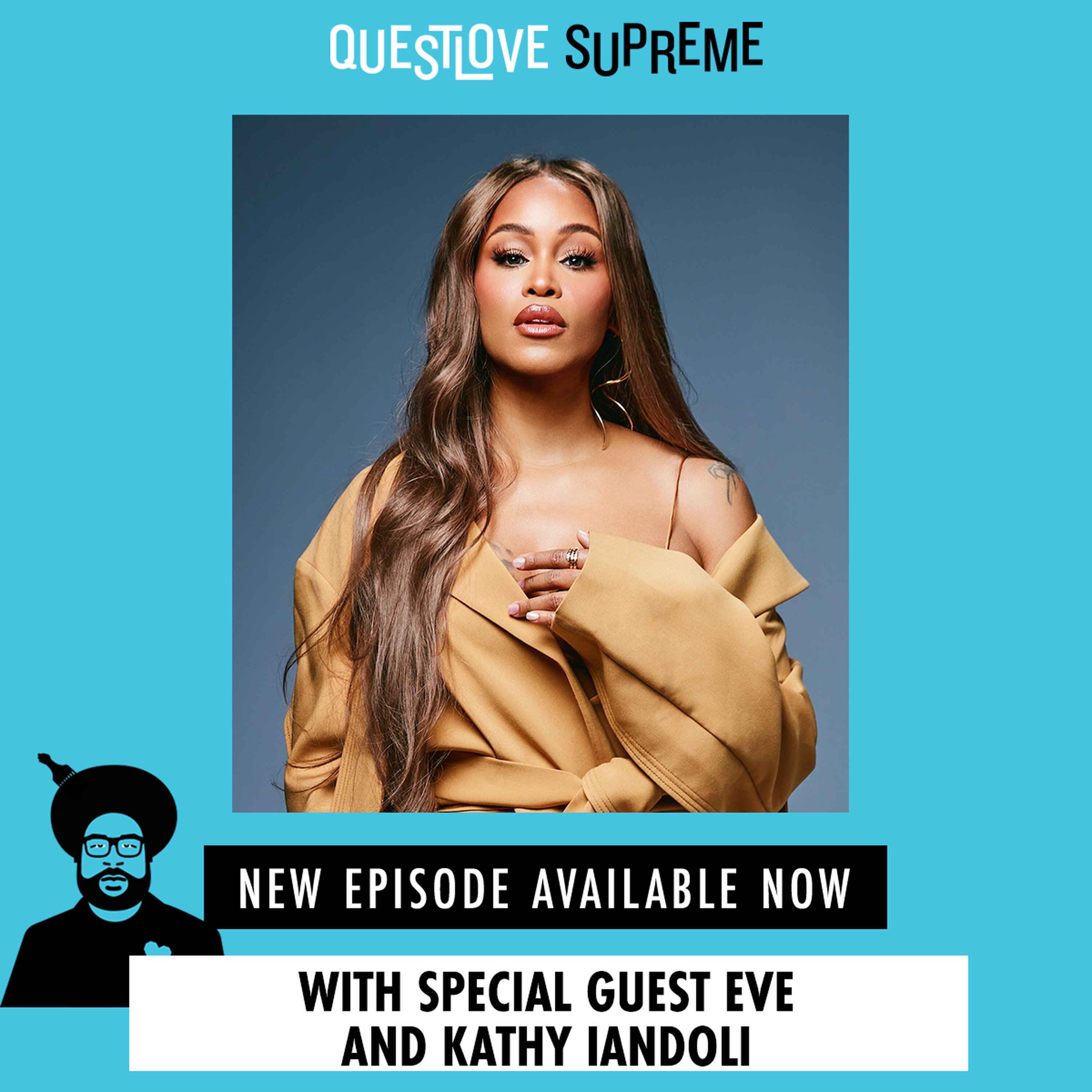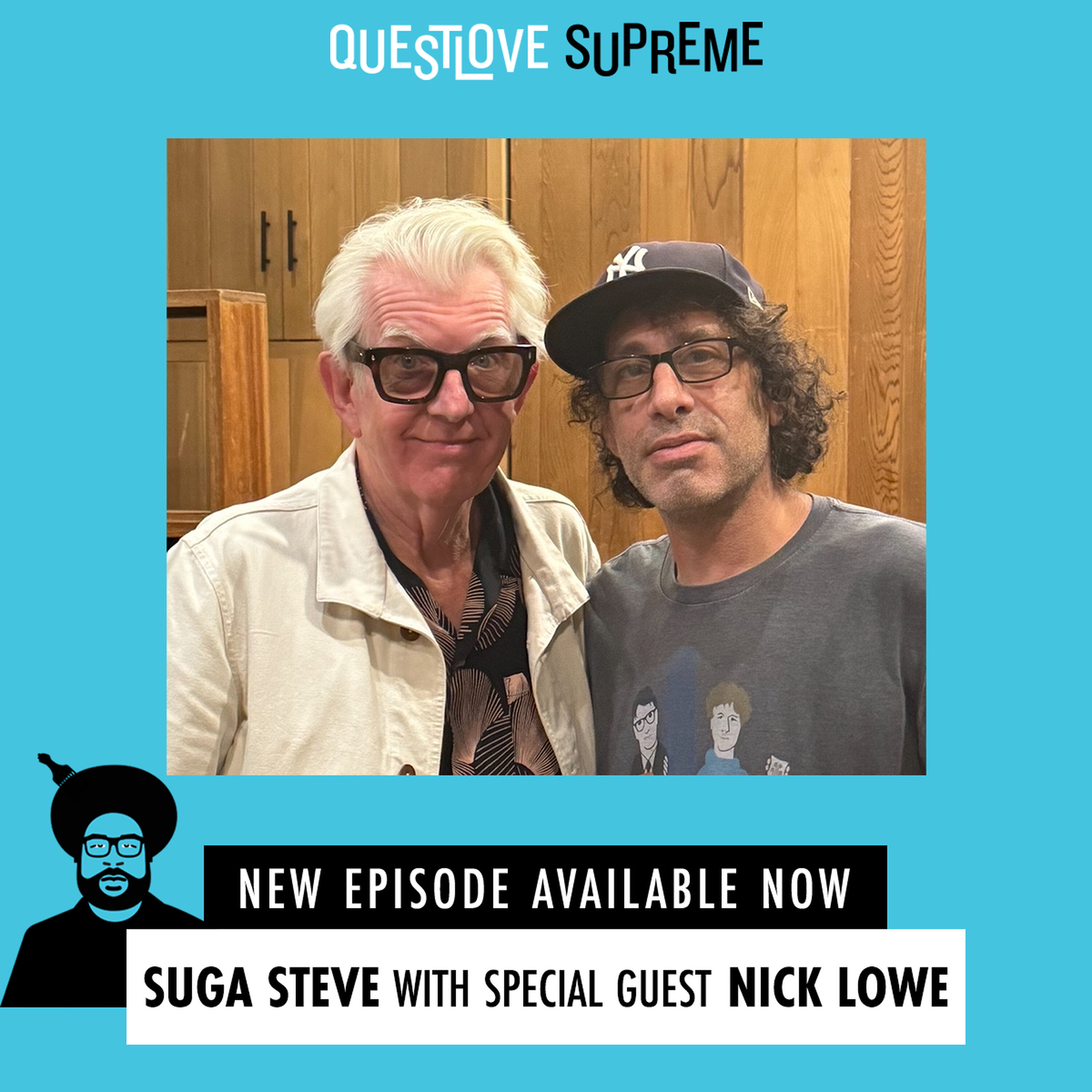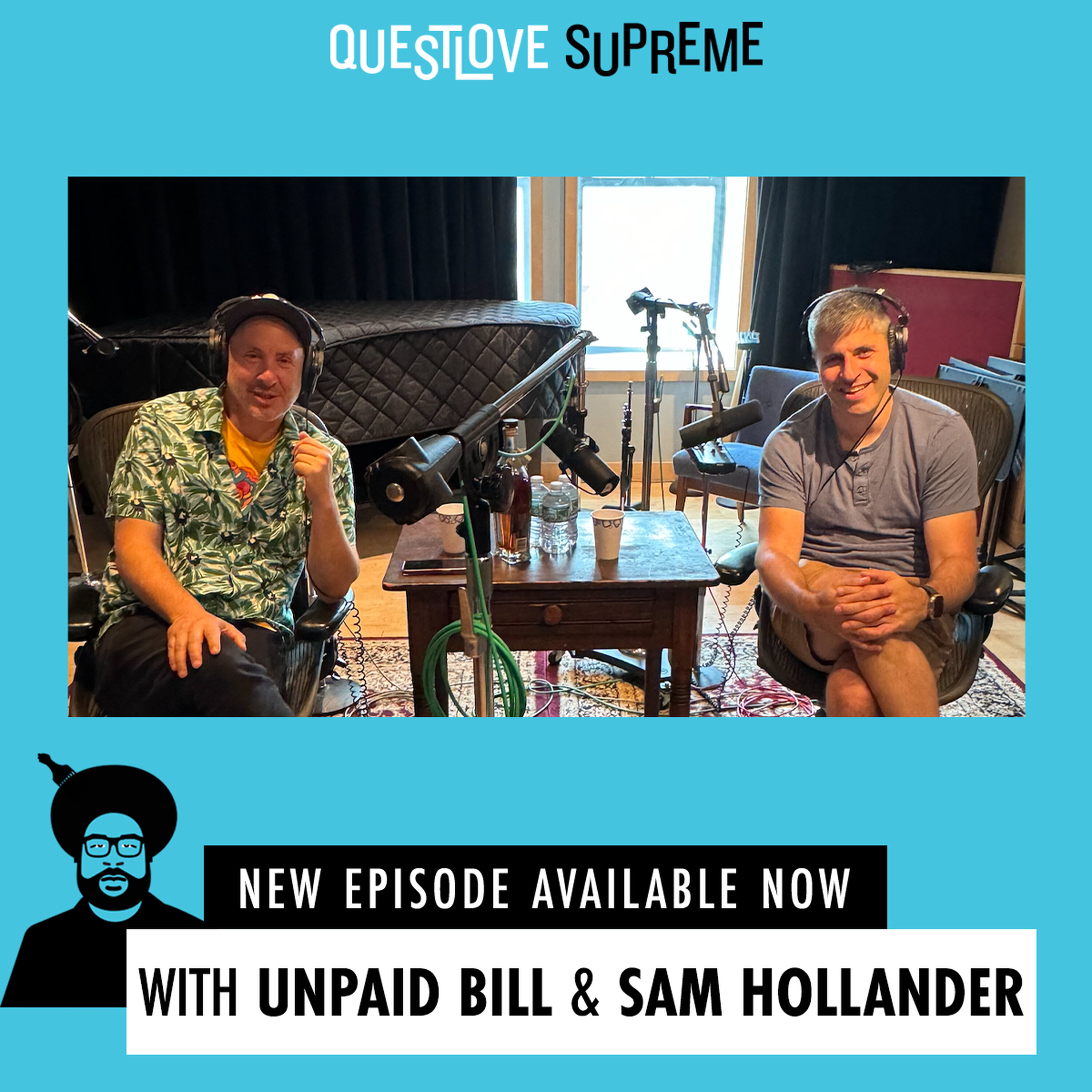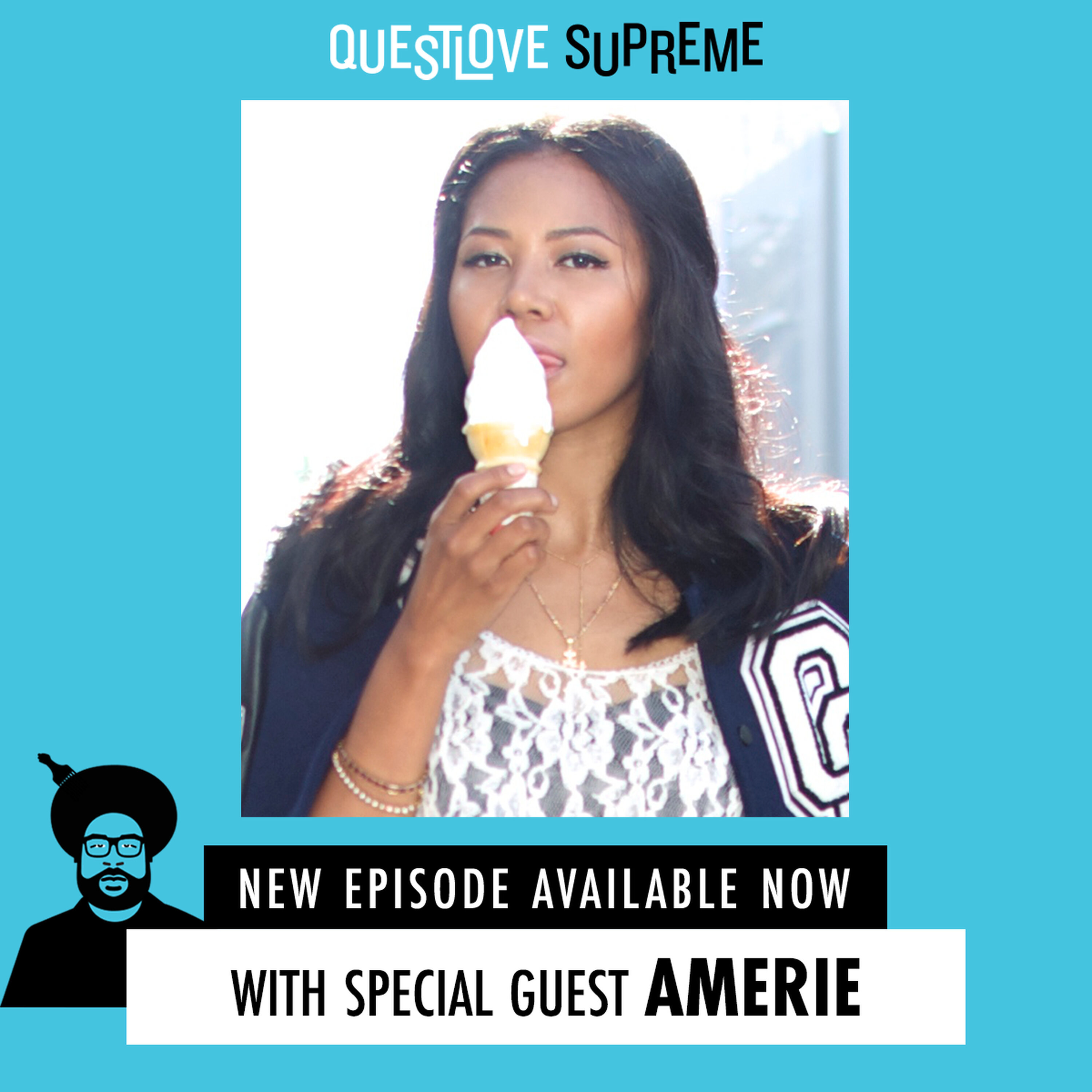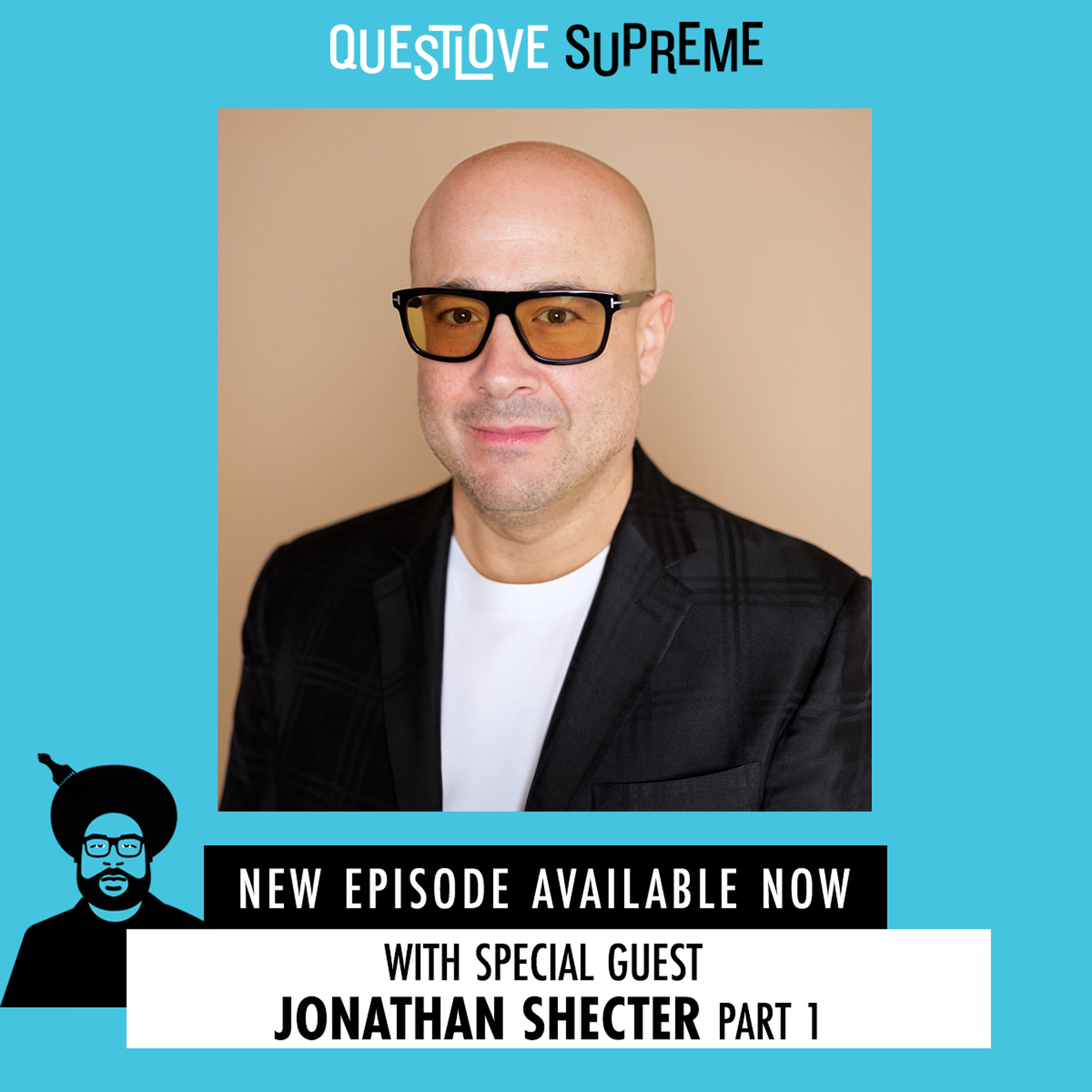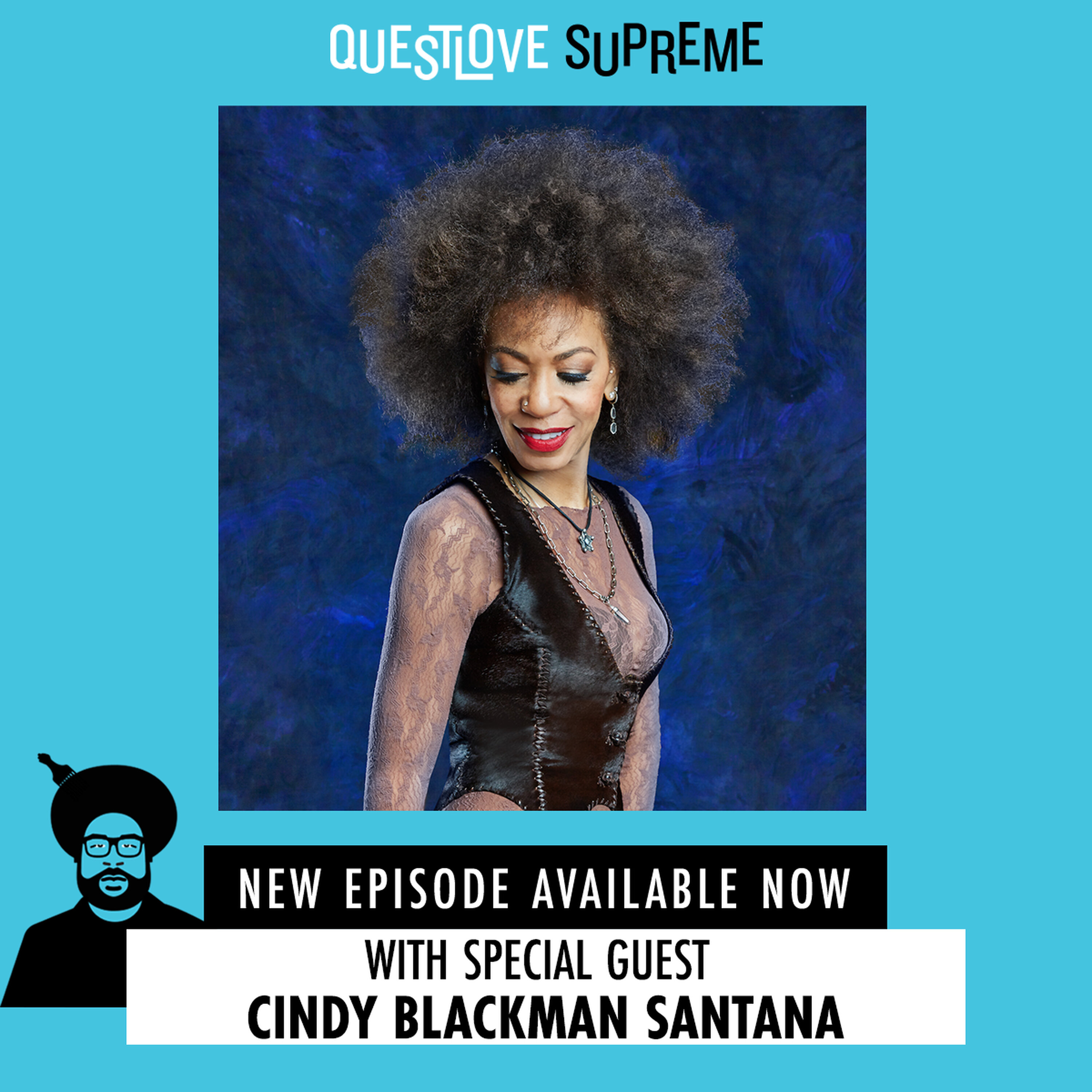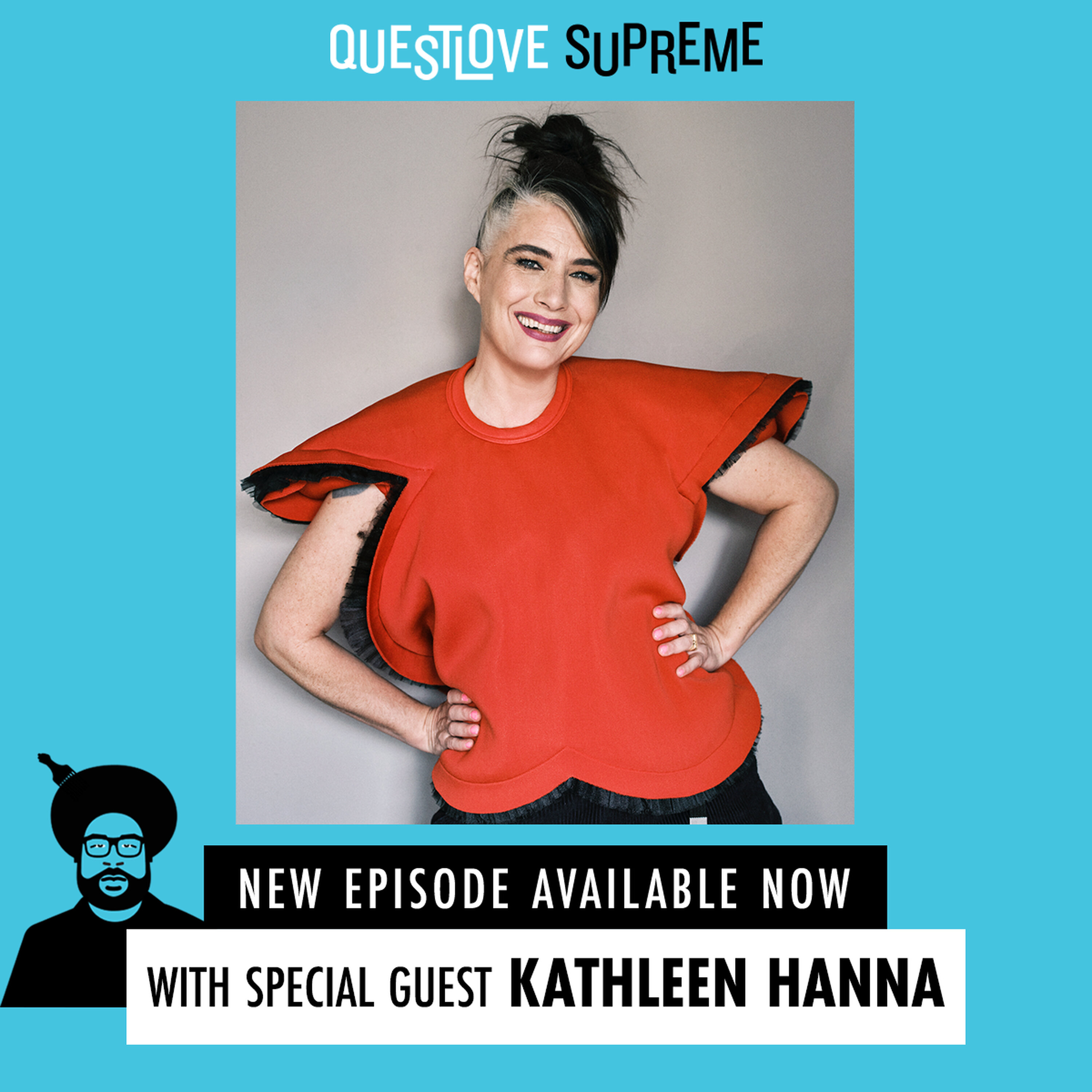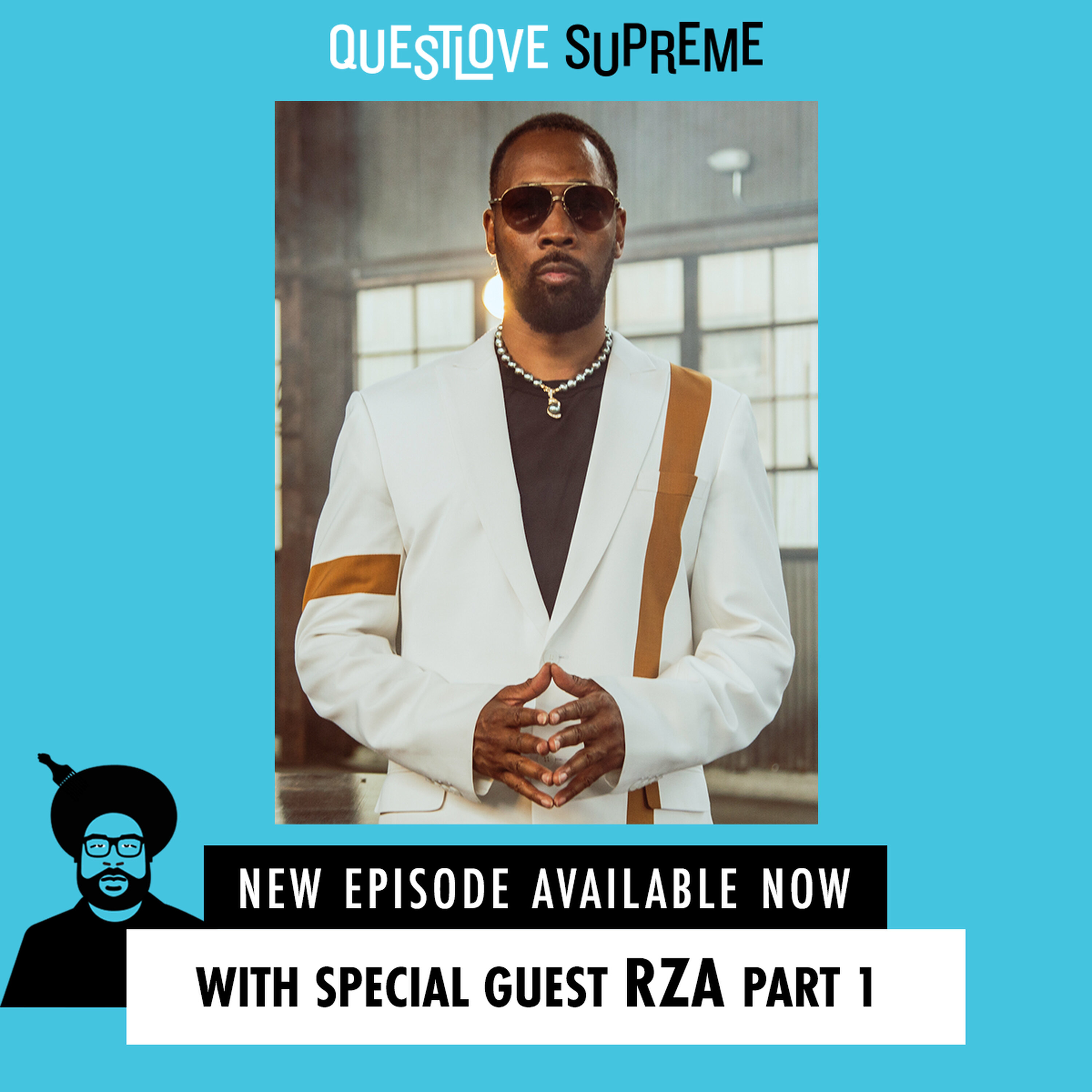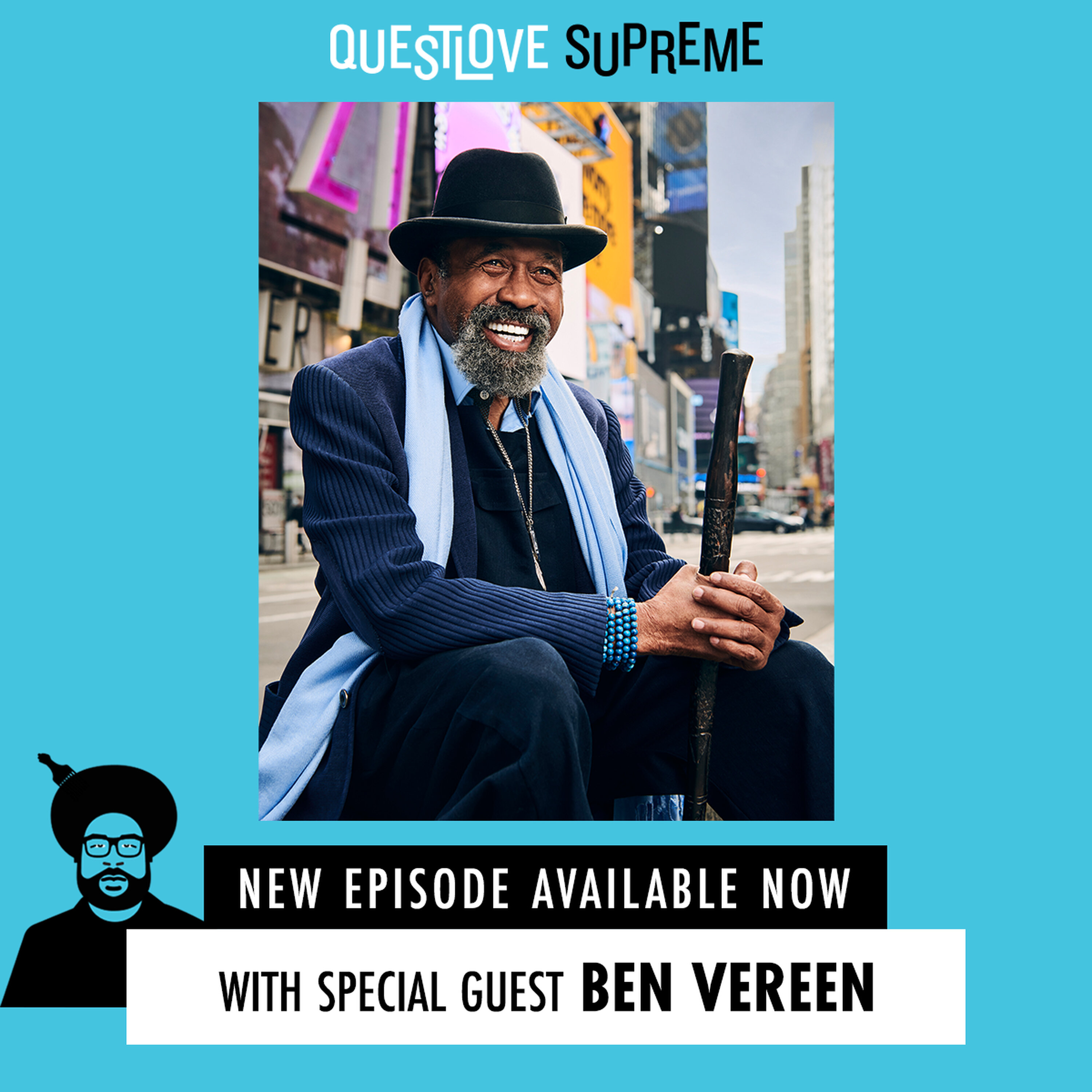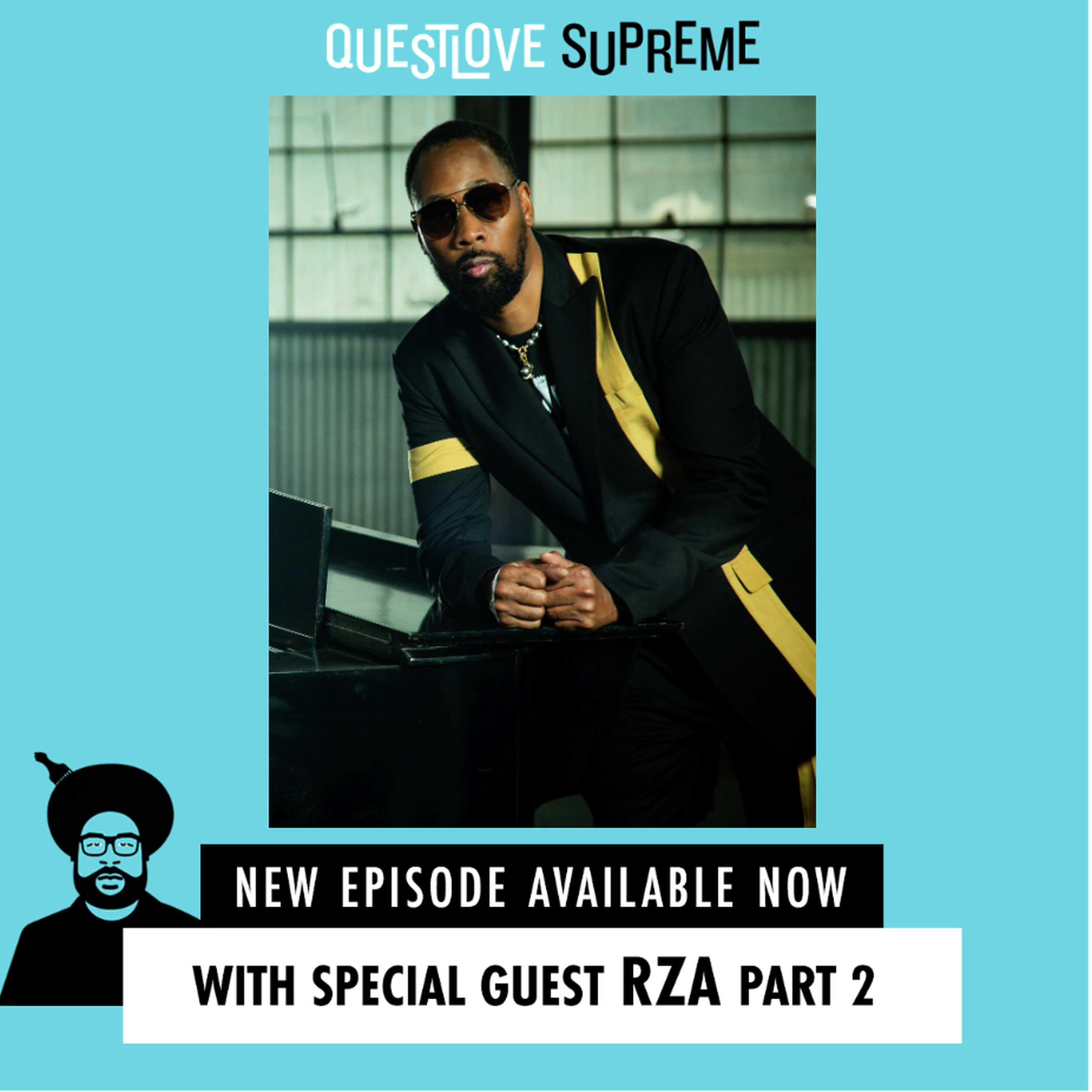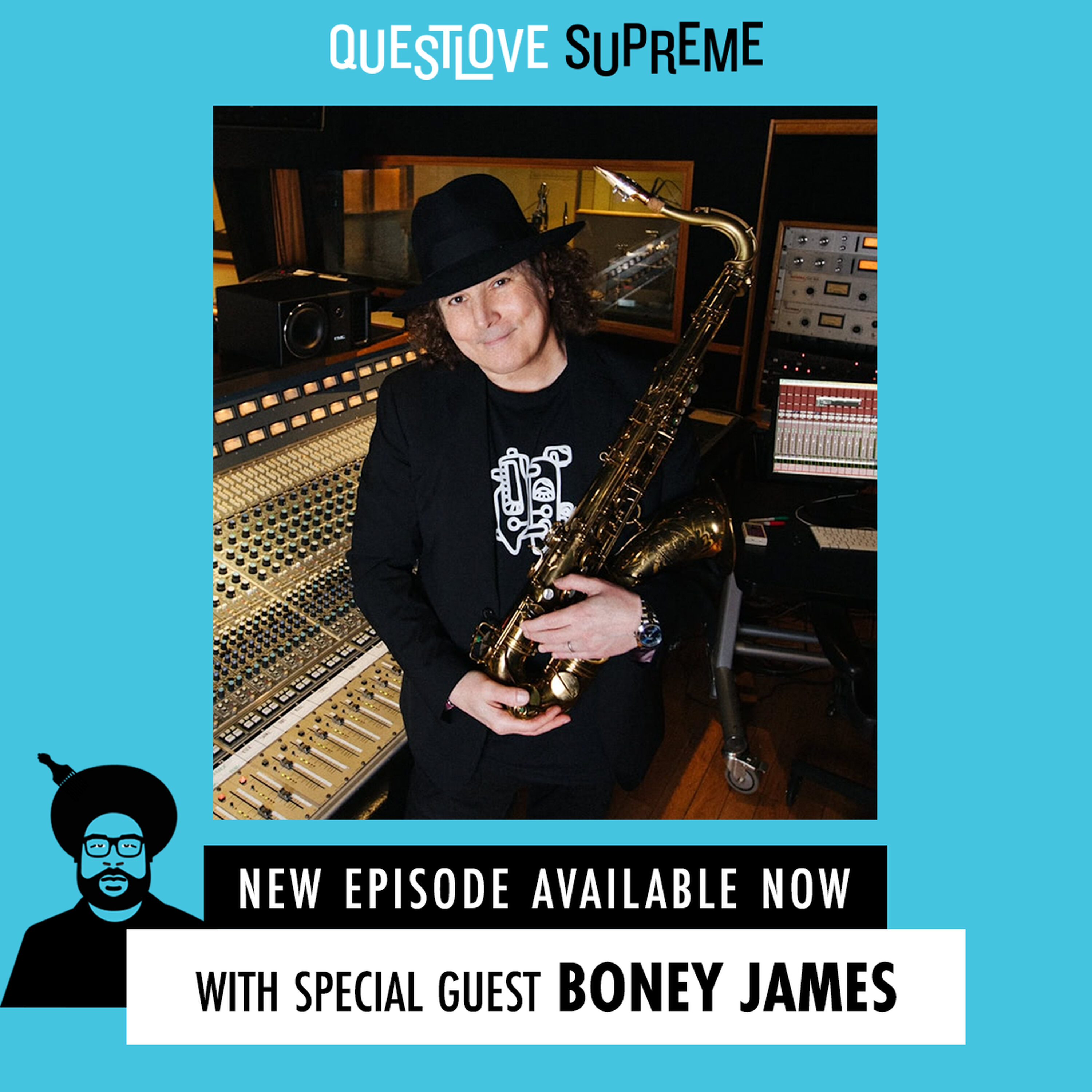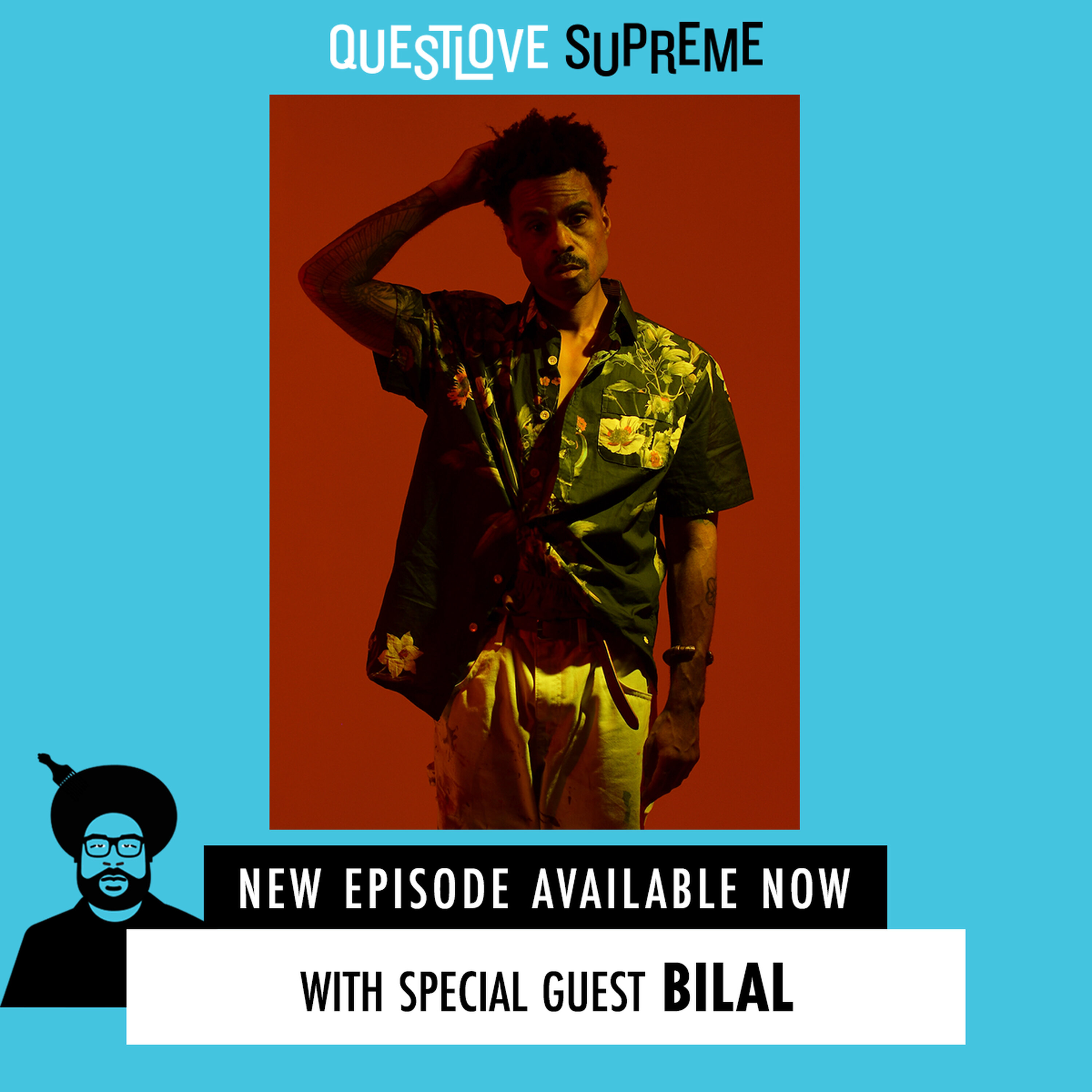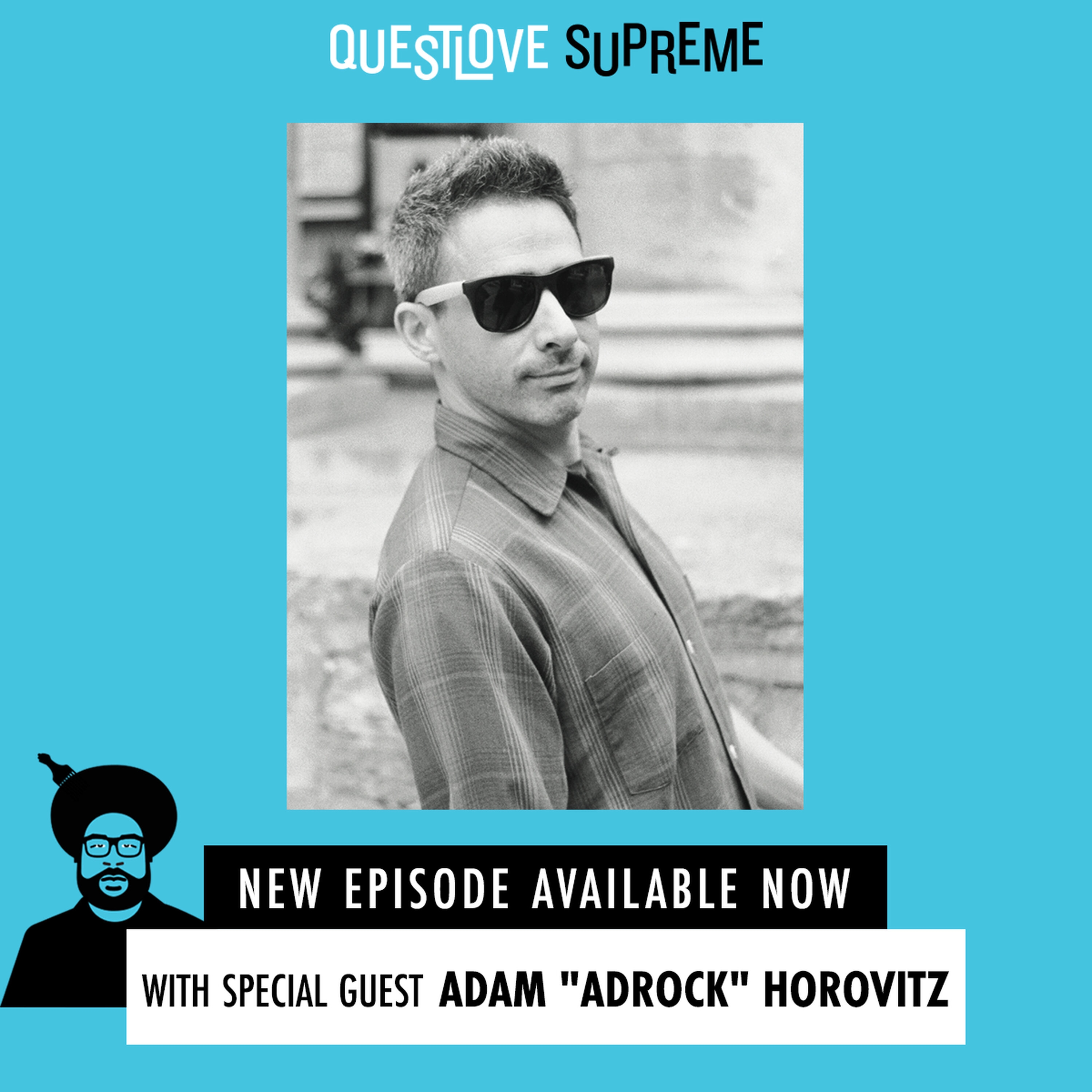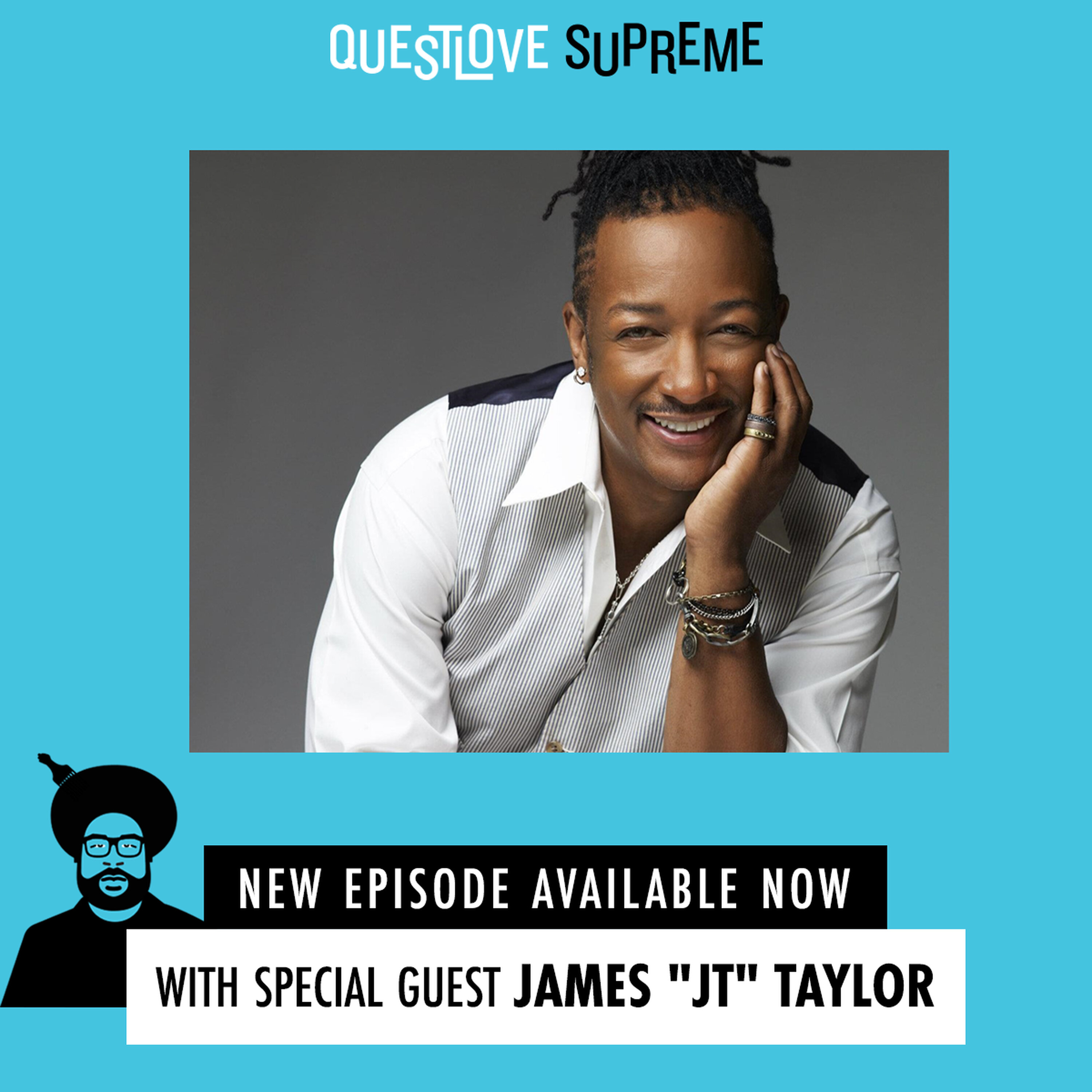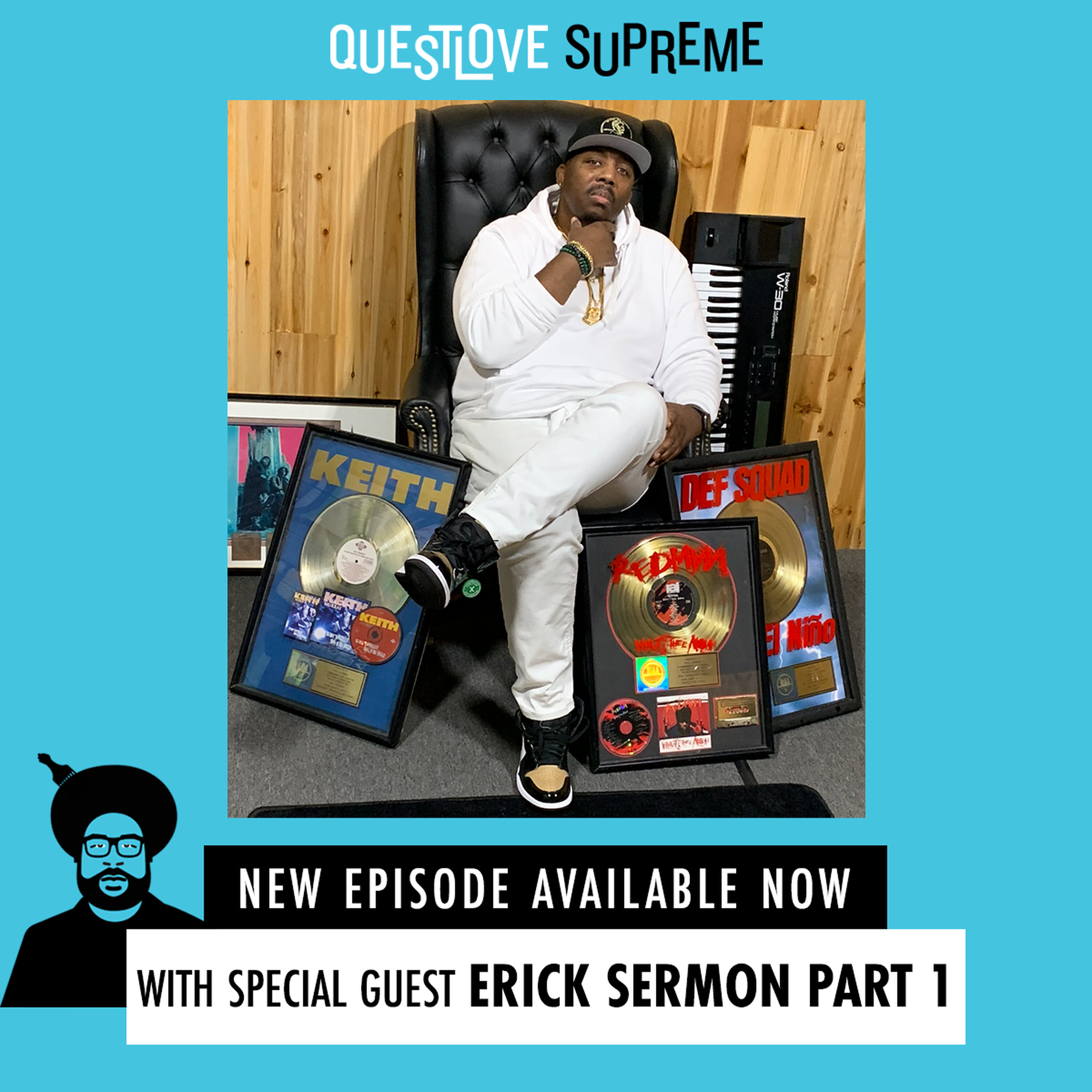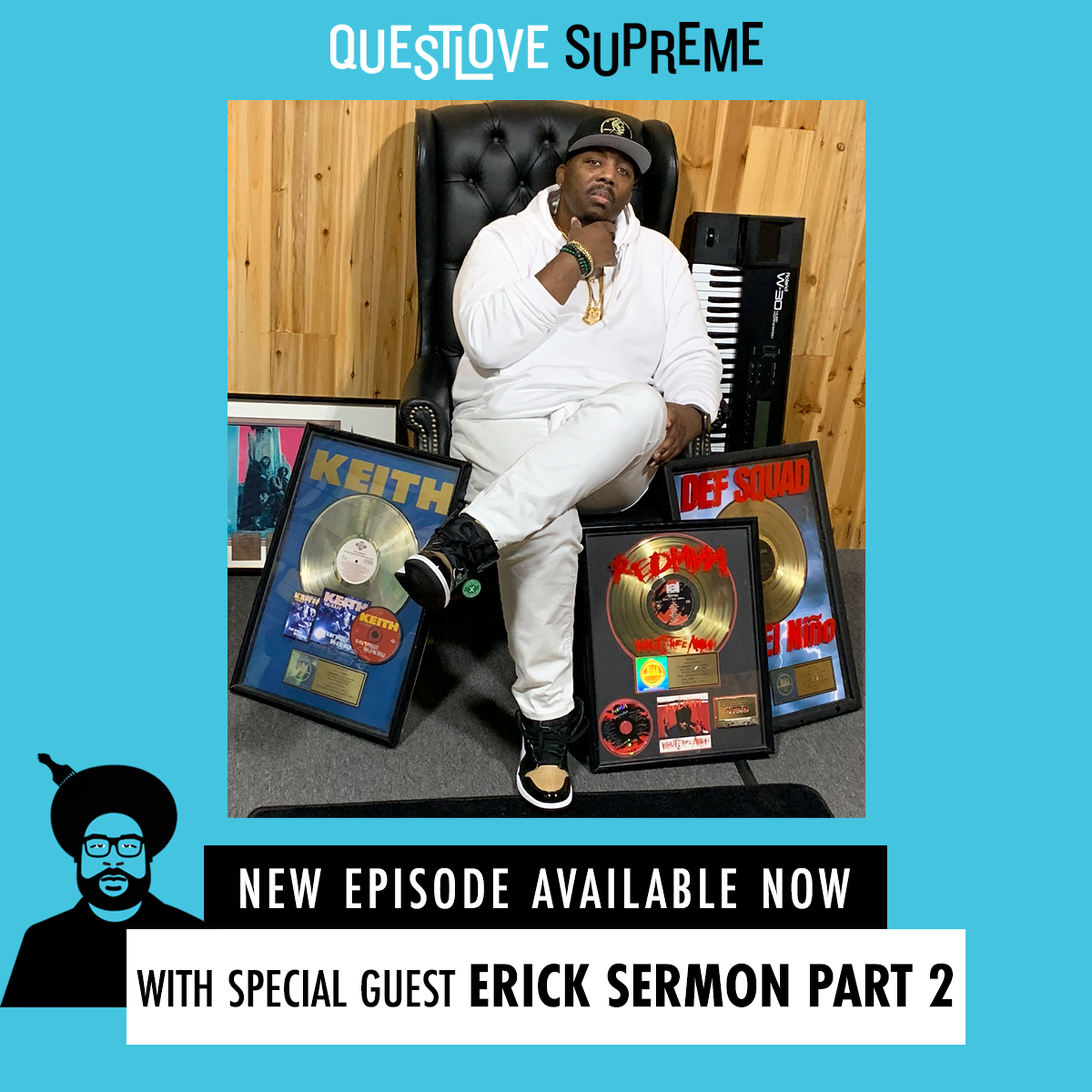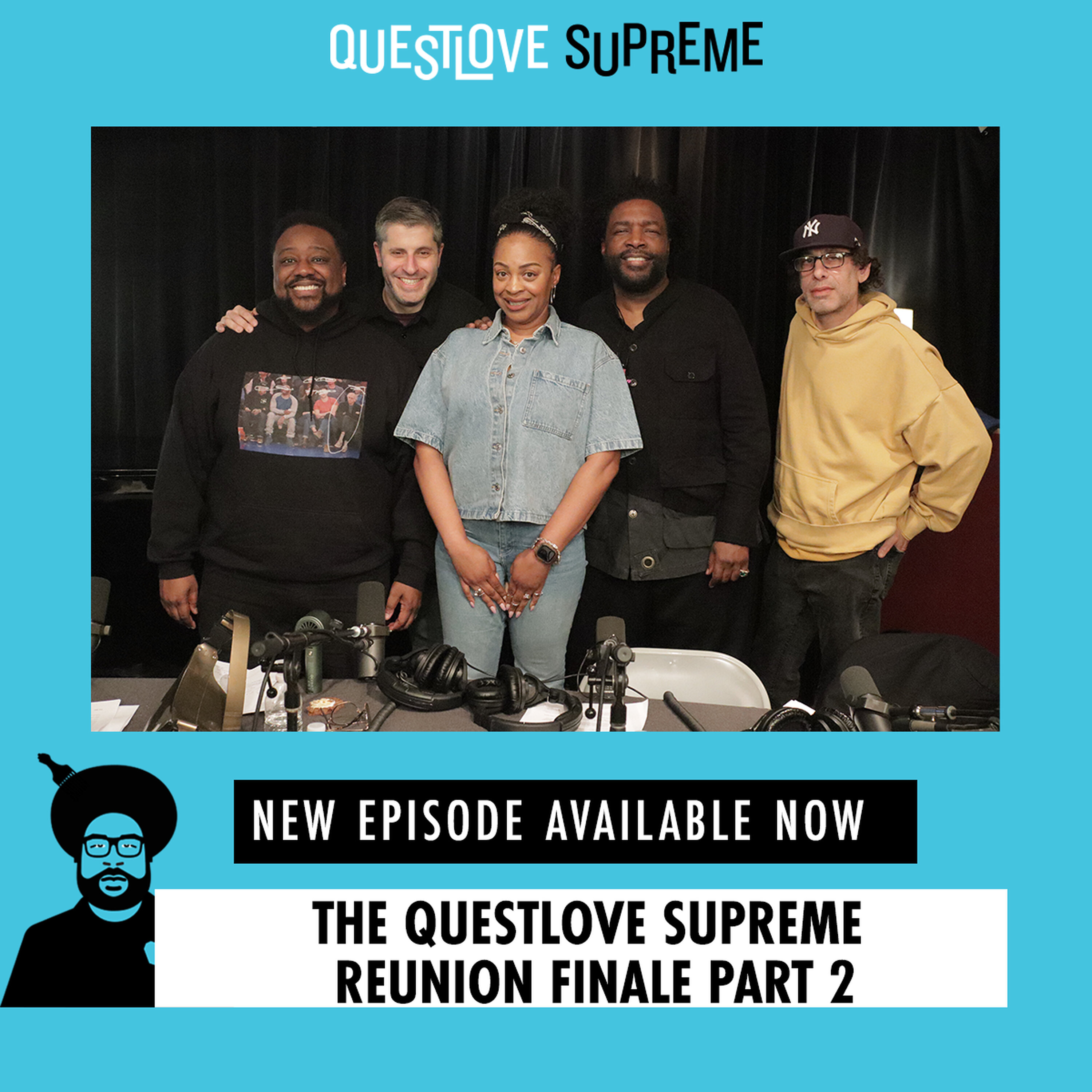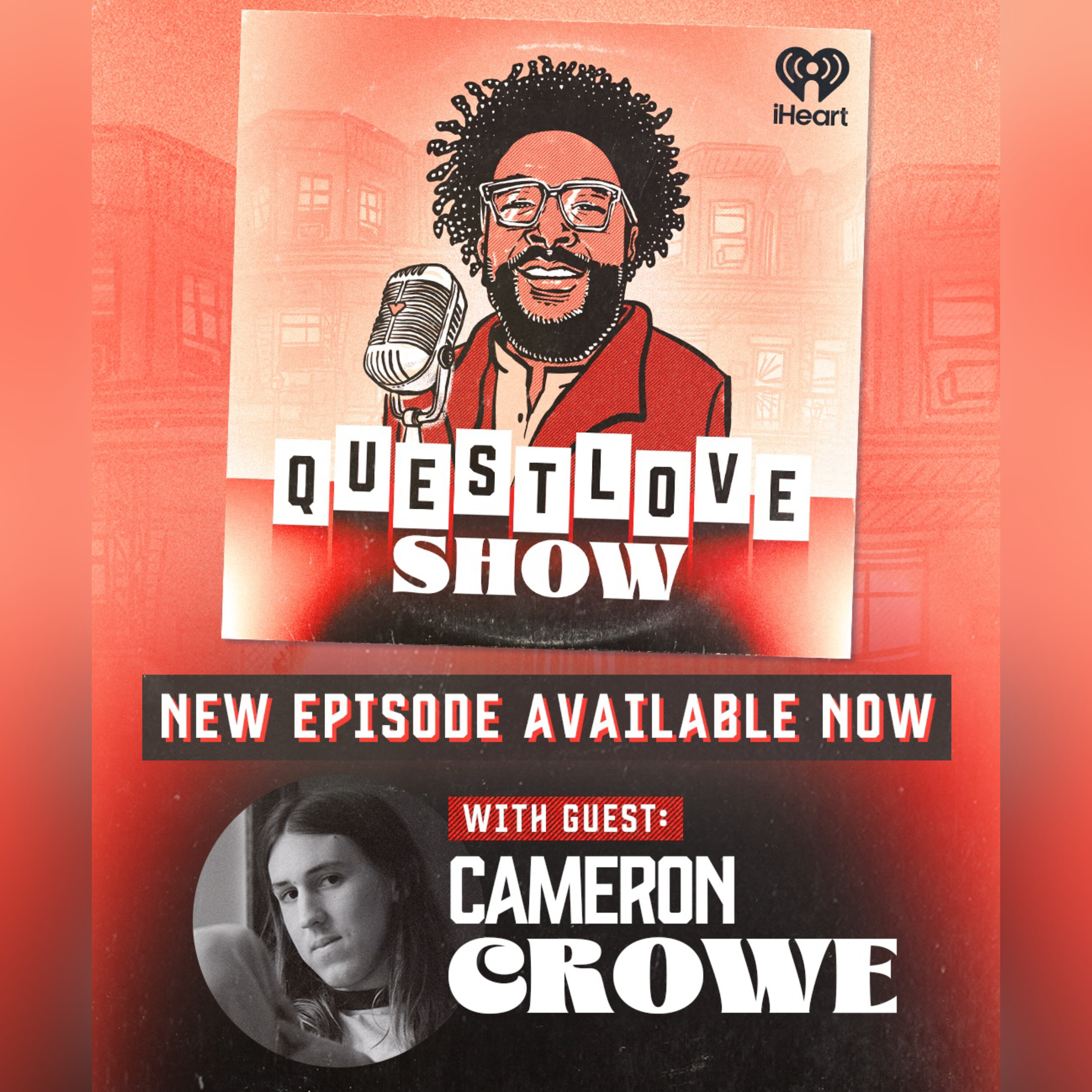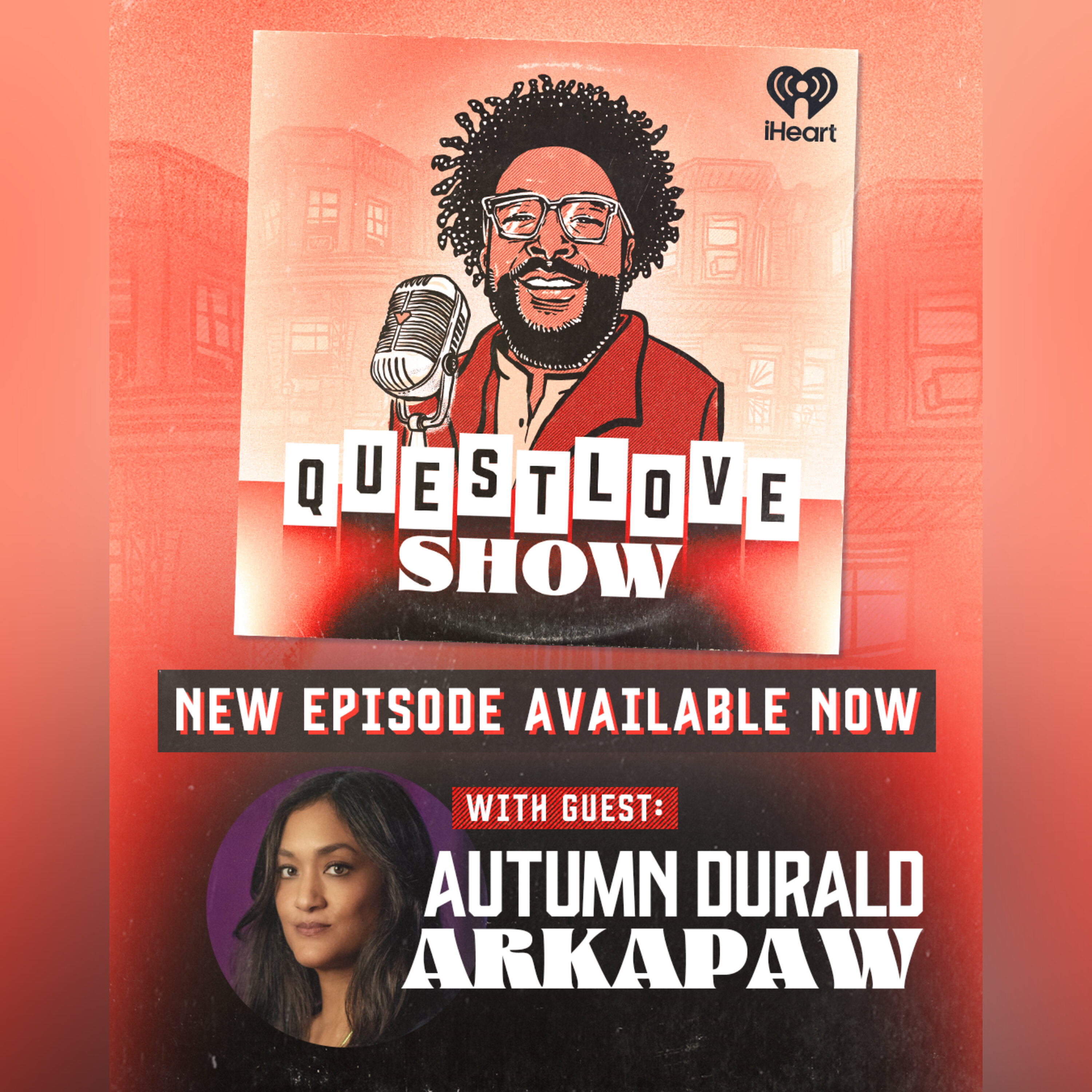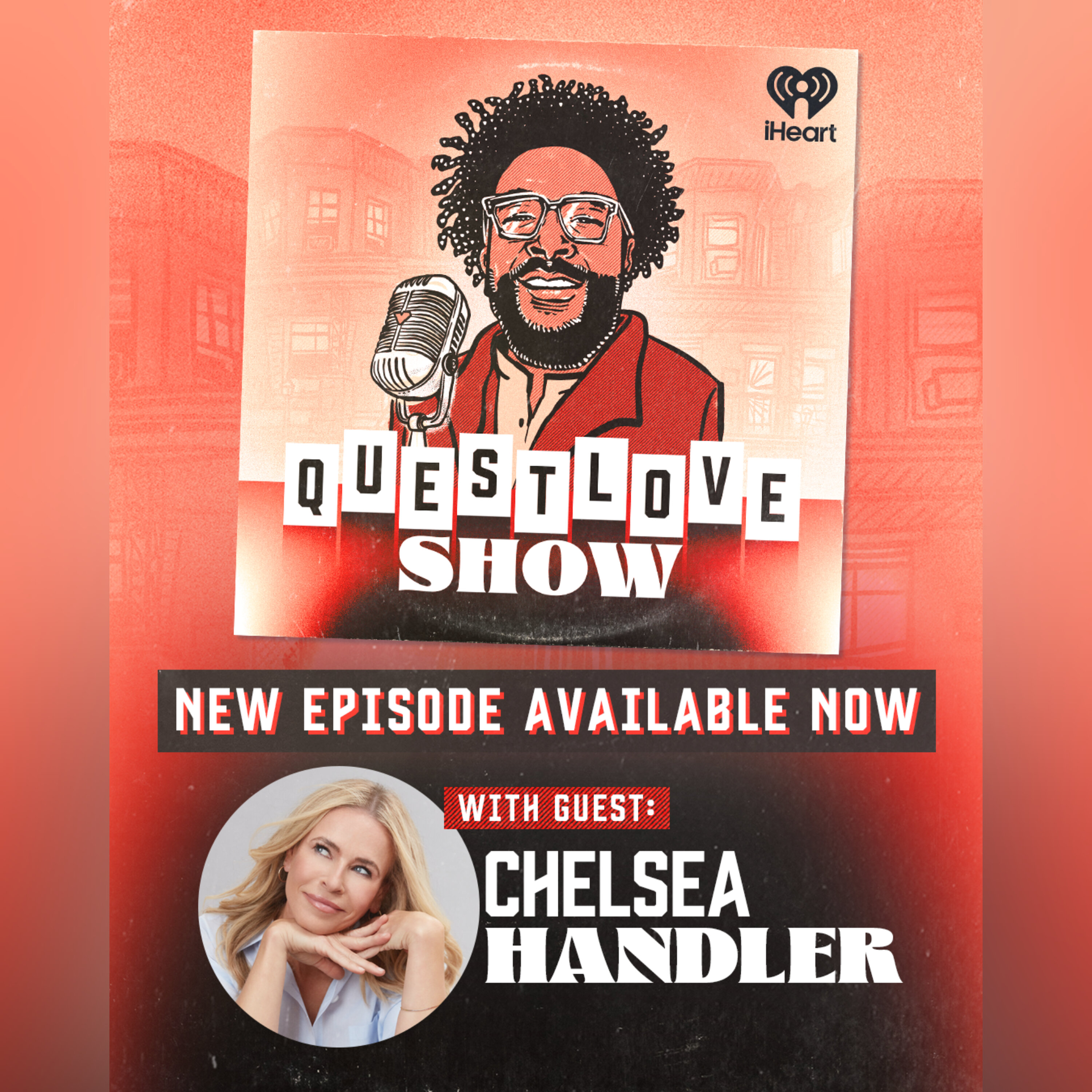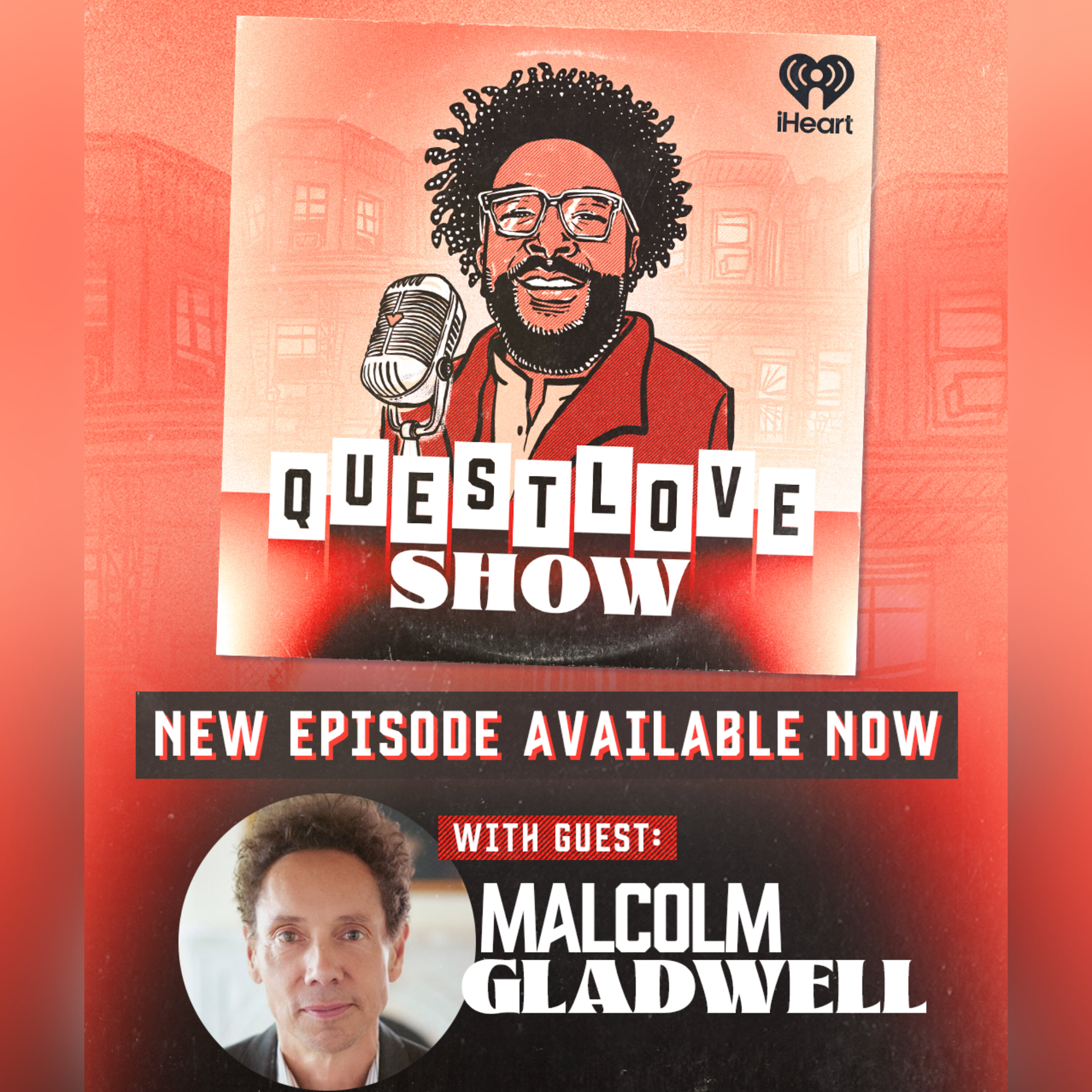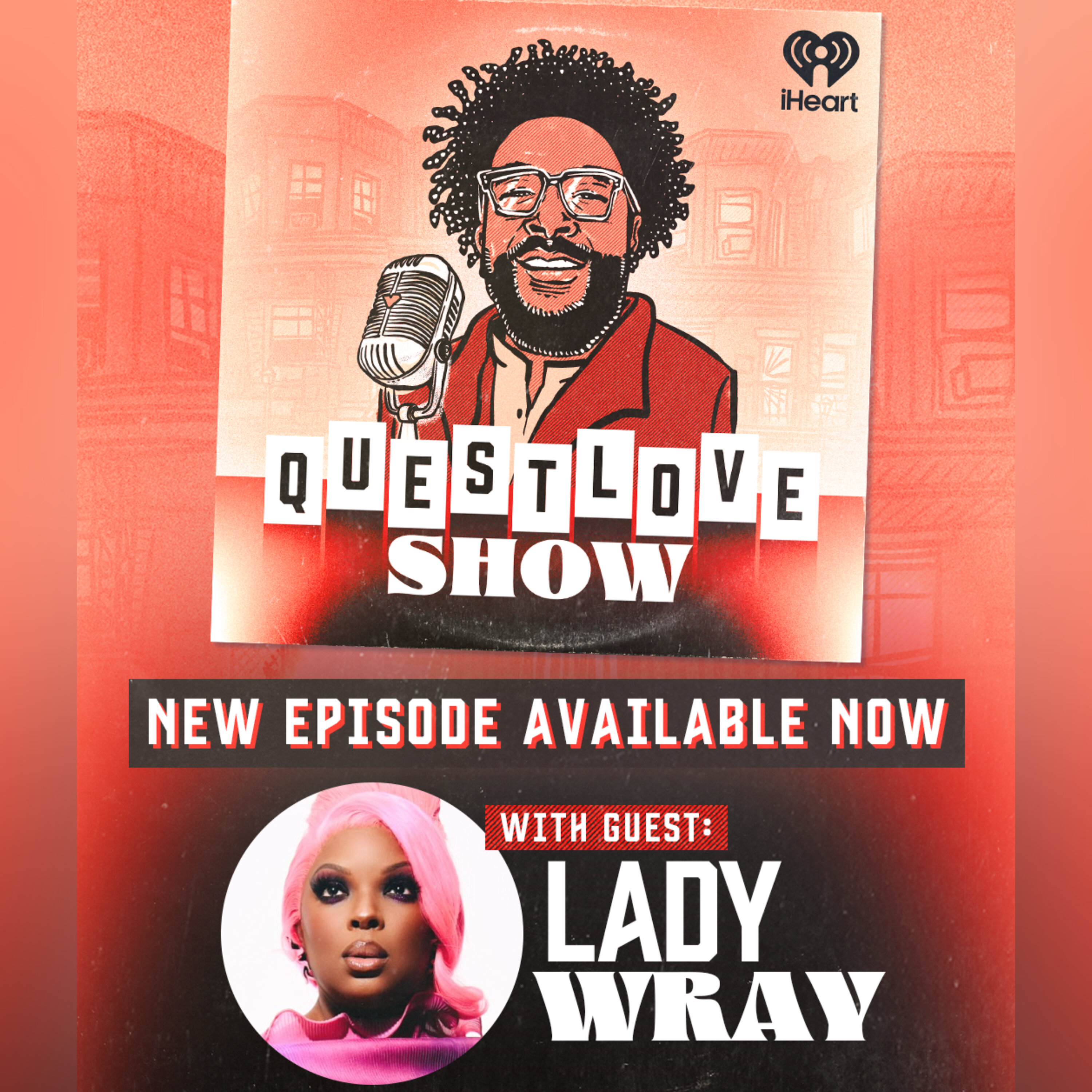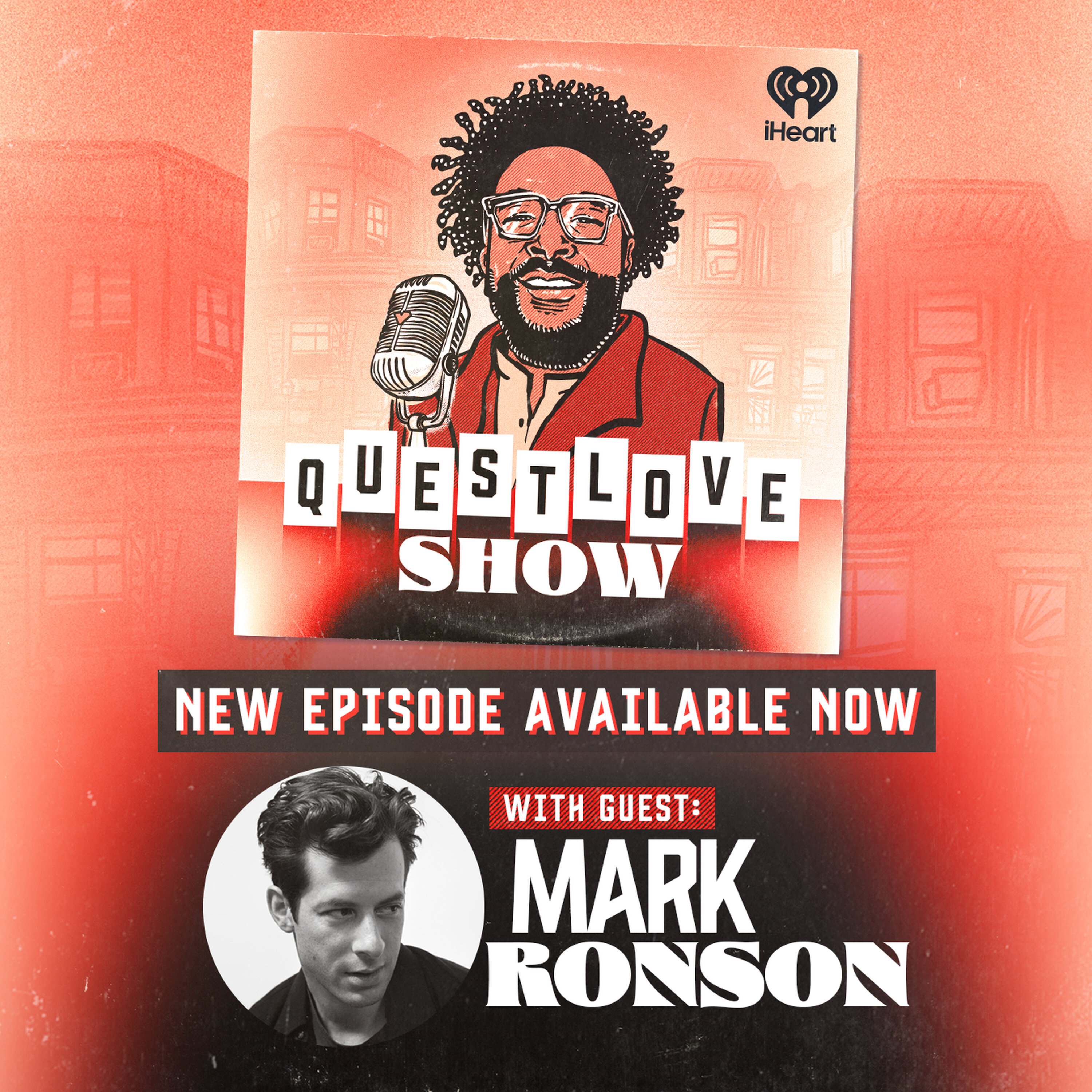Erick Sermon Part 1
Erick Sermon and Questlove spoke for more than three hours in the closing days of 2024. In Part 1 of this QLS season finale, E-Double recalls the early days of EPMD, breaks down how Long Island fueled a rivalry with Eric B. & Rakim, and discusses where the melodic Funk in his music comes from. This conversation touches on classic songs by Erick and his group, Redman, Stezo, and so much more.
00:00:00
Speaker 1: Quest Love Supreme is a production of iHeartRadio. Here we Go.
00:00:08
Speaker 2: Here we Go, Ladies and gentlemen, we are closing out. Are at twenty twenty four season, our abundant season of Quest Love Supreme. We've had some really really amazing conversation, especially with a lot of my hip hop peers this year alone.
00:00:30
Speaker 1: You know, talking to the B Minors and the Rizza at Rock and the BEASTI Boys, Pete.
00:00:35
Speaker 2: Rock and Common Foreign Exchange and Jonathan Schecter of The Source, to name a few. And I will say that today is no exception in terms of us giving flowers to hip hop Royalty.
00:00:50
Speaker 1: What can I say?
00:00:51
Speaker 2: All the episodes of Quest Love Supreme are long overdue, but this, more than any, is really.
00:00:57
Speaker 1: Really really overdue.
00:00:59
Speaker 2: I will really go out on a limb and say that as a producer.
00:01:06
Speaker 1: All right, let me put it this way.
00:01:07
Speaker 2: You know, like every time I'm telling you guys in Questlove Supreme world that the pioneer always gets overlooked and it's the person that comes in second that kind of gets all the credit. I will say that our guest today is probably the first person I thought about in terms of pure production innovation. That is so accessible and so effective that he never truly ever gets the credit that he deserves for a lot of the ideas that he first started doing in hip hop that we now just take for granted, not to mention. As I said in the ad Rock episode, you know, as Guru said, is mostly the voice our guest today has probably one of my favorite all time voices. At a time of most people, especially in the classic era, were yelling like run brought in the yelling era. It is something to me about monotone sinister delivery that to me is more scarier than you're like your hardcore delivery, or you're like hyped up, loudest person in the room, like the person that says it low key and they mean business.
00:02:28
Speaker 1: That person scares you.
00:02:29
Speaker 2: The silent person scares you more than the person that's on you to death. There's so much we can say, but I just got to say that, you know, this is long overdue. He's a founding member of one of the best rap duos of all time, EPMD, member of Deaf Squad. He's producer for himself, Redman, Keith Murray, Ll Tupot, Luke, Chris black Street, and on It's about time we had a conversation with the with the green eyed it. You know what I'm saying, give it up for the one and only Eric Sermon aka Erico NASA's I thought he had a long intro. Oh dog, I'm the king of long intest so you.
00:03:12
Speaker 3: Are the You just killed him like like that.
00:03:18
Speaker 2: It's like, yo, damn, that is crazy. But Dudepp there's people out there that take notice. They take notice. Look, I have so many questions that ask you, and you know, this is one of the joys of doing one on one sessions that you know, but I'm just gonna kind of rapid fire all the things I ever wanted to ask you.
00:03:38
Speaker 1: Of course, I'll start from the beginning. Tell us where you were born. Brother.
00:03:42
Speaker 3: I was born in base show A, Long Island, which is the same hospital lokuj was born in, which is Southside Hospital.
00:03:49
Speaker 1: Word.
00:03:50
Speaker 2: Okay, so you're from Long Island, right, from Long Island. Most rappers like migrated to Long Island, but you were born there.
00:03:57
Speaker 4: Yeah, born Long Island.
00:03:58
Speaker 3: Yes, just like the method Man's and the Priorgies and people that don't want to.
00:04:02
Speaker 4: Kind of say, but they are Long Islanders. You know what I'm saying.
00:04:05
Speaker 1: I did not know that they were born in Long Island.
00:04:07
Speaker 3: Yes, yes, and Todd Smith too, he said he migrated two Queens, but he was born in Long Island. But yeah, but we After that, I went to Hawaiian Dance, which is where my mom and them grew up. After they came from Florida, which is where Rock Kim is from. So my mother used to hang out with Rock Kim's older brothers and sisters. This is a crazy, crazy story, like not knowing that pretty soon HUDs Some has become famous and Rock Kim would become famous. So then I moved from near to a town called Brentwood, is where I learned all my stuff from. I learned how to rap, I learned how to break dance, I learned how to just know what hip hop was, graffiti. All that stuff came from a town called Brentwood, which is where pretty soon I ended up meeting parash.
00:04:53
Speaker 1: At what was your first musical memory in life?
00:04:57
Speaker 4: Well, it got to be with my dad.
00:05:00
Speaker 3: Dad, like any other family shoe that played so many records. My dad was a I can't really call him a collector though too, though quest it was like he just had every record, every album was sitting in front of this, you know, when backed up against the speaker or or guess whatever the record player was, so all.
00:05:15
Speaker 4: The records was out there.
00:05:16
Speaker 3: That was my first experience of him just playing records back to back to back to back. And that's how my first introduction to to getting to being so involved knowing what music sound like.
00:05:26
Speaker 1: What what kind of records was he was he playing?
00:05:29
Speaker 3: Oh man, uh, he was playing everything from Teddy penny Grass to Blue Magic, all the way down to the Whispers, to the Temptations to how Melvin the Blue Nose.
00:05:39
Speaker 4: That was his favorite group, you know, the the Spinners.
00:05:41
Speaker 3: And then after that he started going into Funkadelic in the Parliament of course, and you know, and and all the stuff to Rick James. So it started he had a bath of music. But they started with the seventies first, then it started going into you know, the late seventies.
00:05:57
Speaker 1: So he was just a music lover. He wasn't a DJ or anything music.
00:06:00
Speaker 4: They bought albums and bring them home and played them.
00:06:02
Speaker 1: What did your parents do for a living? What did your household look like growing up?
00:06:06
Speaker 3: My parents worked for the mentally challenged children for like over twenty five years.
00:06:12
Speaker 1: Do you have a siblings. Are you the only child or do you have.
00:06:14
Speaker 3: Two sisters two below me, one two years below me, and one four years below me.
00:06:19
Speaker 2: Okay, some of my favorite talent in hip hop came from Long Island. Yet I always wondered what the other Burroughs were doing at the time when hip hop was developing in the Bronx.
00:06:38
Speaker 1: Was it as fruitful in the other boroughs like Queens Brooklyn, Staten Islands?
00:06:44
Speaker 4: Right?
00:06:44
Speaker 1: So what was your first hip hop experience?
00:06:47
Speaker 4: I think again in the neighborhood.
00:06:48
Speaker 3: The neighborhood had house parties and we had dse days and almost because we I looked in a town called Regis Park, so it had like it was like a thirteen block radius, but out of the six blocks it was DJ's. Out of the six block it was MC's. Like I'm telling you, if people would see where I came from, if you didn't know about the Bronx, though, you would think, yo, this way hip hop back because we had everything. And when I tell you, everybody was nice, well my eyes, because whoever I looked at it was all nice on the set and all nice rhyming and breakdancing. Because a lot of Long Island kids so too went went to go to the city to go do breakdancing contests with the big breakdancers back then. So but again that happened to be the neighborhood that was my first hip hop experience, maybe at twelve years old, sneaking out the window to a house party around the corner.
00:07:41
Speaker 1: And they were MC's and DJ oh.
00:07:43
Speaker 4: Hell yeah, hell yeah.
00:07:45
Speaker 3: I mean we had some kids, anybody know, a guy named Bergermeister, a kid named Frank b, a guy named a Z, a guy named Bourn. You know, it was the five percenter born c Asiatic was there. It was all all five percent names.
00:08:01
Speaker 2: Did you ever cross paths with any other notable figures of hip hop?
00:08:06
Speaker 1: Like I always hear Biz story or yeah, the first one is Biz.
00:08:09
Speaker 3: Definitely that that that's it's gonna always be Biz. Biz came to my junior high school in a lunch room.
00:08:15
Speaker 1: Did he go to that school? Because every no, everybody from Long Island says the same thing. Biz came to my school. But yet Biz never went to that school.
00:08:26
Speaker 3: Never went there. They just loved him. People who might make a joke though and say, yo, is he Jesus Christ or not? Because he had no call. But he was at every function. He was at every town. He was at everything that went on. When you hear the stories that oh yo llo yeah, will say, yeah, Biz got me at rock him. Oh yeah, Bis took me to such and such. Oh yeah and such Biz took me to He was everywhere and didn't.
00:08:49
Speaker 1: Have a call, but he took the train and.
00:08:52
Speaker 3: Managed to be everywhere. He lived the places of Long Island where I'm like, yo, Bis ain't from there. No, he was, he said for three years or he was over I'm like, no, he's from no, man, he was because he lived next to my DJ, Diamond J on the same block on Noble Street. That Noble Street when you hear him in the Record Street block from Diamond Okay, and Diamond Schelle was his brother. So again it lived on that block. But he's also saying that he lived in Coreham. He lived in over here in Patchog. He lived because his Frinival was in Patchog.
00:09:26
Speaker 4: I mean the way. So I'm like, and then all of a sudden you were in Jersey.
00:09:30
Speaker 3: And then you and brooks At obviously were more every day and then and then you go to Baltimore and spend the rest of your life there.
00:09:38
Speaker 4: So yeah, bizmal Key was the first.
00:09:40
Speaker 3: One before I got famous. Then of course Long Island. You know Chuck D. You know, you start going, then you start seeing E. P. M D rock Him and then Daylight so and then please the new school. I mean, I'm not hating, but if you take Long Island out the mix.
00:09:56
Speaker 1: All my favorite acts come from Long Island. You don't have to tell me to.
00:10:00
Speaker 3: Then you got JBC Force Keeith Murray k Solo. Now you got to look at it's you know what I'm saying, it's a problem.
00:10:07
Speaker 1: How often would you go to the city? Was there ever need to.
00:10:12
Speaker 2: Go to Manhattan or Harlem or any of those other spots? I mean, I'm talking free EPMD. I'm just talking about like before you even had a record deal, Like was most of your life just in Long Island?
00:10:27
Speaker 3: Quse, you're the first one that ever asked that question in life, And that's a dupe question. If I never got famous, I don't know if I were have seen the city. I was already seeing Brooklyn because my family is from ping Houses, so I was already in ping Houses in East New York all the time.
00:10:45
Speaker 4: But as far as me.
00:10:47
Speaker 3: Seeing again, when I went to the Parlom and I parked outside. I called my mark to God, misseds of Man's black people everywhere. We don't have that Long Island is that my birth Puerto Rican, white and black right Ques. I pulled over and I parked, and my Samura Suzuki, and I just stood there like this looking around. I saw Aaron Hall, I said, Aaron coming fort a quick second.
00:11:14
Speaker 4: So Aaron came over.
00:11:15
Speaker 3: He went to another bar, of course, the street from the Apollo right, and and but I saw a lot of people.
00:11:22
Speaker 4: But I just saw so many black folks.
00:11:25
Speaker 3: And I don't think that I would have been able to see that because there was no need for me to go to the city, being.
00:11:31
Speaker 4: From Long Island. Long Island was his own place.
00:11:35
Speaker 1: What was it like?
00:11:35
Speaker 2: Like what we knew of Long Island was of course like Amityville Horror or like it was these suburbs. It wasn't anything close to what the Bronx looked like in wild Style or anything like. So what was a typical day like as a teenager in Long Island?
00:11:50
Speaker 4: Not the same?
00:11:51
Speaker 3: And like it so far it's like do you ever look at Compton and watch some stuff with palm trees? And the whole and the same thing, So like, why can make that line anywhere you're from us where you at the whole time was the fact that we still had the same drama, still had games, We still had had the competition between Puerto Ricans and blacks and white and black.
00:12:09
Speaker 4: It's the same. We had the same thing. It was like before Keith Murray.
00:12:13
Speaker 3: L D came, game came, it was Barcelona, which was Puerto Ricans and these guys wasn't happening. This is what Brentwood was. Brentwood was Puerto Rican black and white. It was a mixture. So that's how we lived. So so we was all friends too. That was in school and me and Parish. I don't know if you ever heard this before. We had two high schools next to each other. So I went to Ross, he went to Sylon on the same property. It was kind of it was.
00:12:40
Speaker 4: It was weird, but nobody never seen two high schools.
00:12:43
Speaker 1: Next next to each other.
00:12:45
Speaker 4: You know what I'm saying?
00:12:46
Speaker 1: Got it?
00:12:47
Speaker 2: What was your entry into being in hip hop? Did you start out as a DJ? Were you trying to MC?
00:12:52
Speaker 1: Like?
00:12:53
Speaker 4: So it's funny you say that, first of all, came from soul training.
00:12:57
Speaker 3: Challamar had this kid in there that was called the pop along Kid, so I took his name. I don't know if anybody I know people. I'm taking y'all back though too. Yes inside Shallamar. The other member was the ill Popper, so I took his name. I began doing that. All of a sudden, my mom comes home from her job with two twelve inches okay, apache with the green label right right, and she brung home Rappers a light okay.
00:13:29
Speaker 4: And it changed everything for me.
00:13:32
Speaker 3: Then my cousin down the street, since there was so many DJs, he bought turntables, so I was able to have that too. So I was he would bring home Fat Boys and and bring home the new mally Mall, bring home the fantastic for the Pheelers. For he would bring home all these new records, uh and so, and I used to just be spinning them. So but while I'm spinning them, of course, the Fat Boys had me like I was just like, these guys are just crazy. All of a sudden, well, me and Paris was getting ready to get on. I did to just give you the one thing. We drove to the city to go buy, to go buy sucking seats.
00:14:14
Speaker 2: Really, yes, there was no place in Long Island too, did they didn't have that record?
00:14:19
Speaker 1: What did you attend any like Spectrum city parties?
00:14:23
Speaker 2: Like those parties at Hank Shockley and Chuck Dee and and Keith Shackley used to throw.
00:14:30
Speaker 1: In Long Island at all.
00:14:32
Speaker 3: I did not know about none of them until I got on tour with them.
00:14:36
Speaker 4: I have no clue about all. I know it was about my section, got it.
00:14:40
Speaker 1: We just called all right, so tell me how you met Paris Smith?
00:14:45
Speaker 3: Okay, well, where I was at and we just pawked. The house that we was written had got rat infested, like I mean, they was coming from out of nowhere. I mean it was like some city you see on Ben or the movie like that. So, and we couldn't control it, and the landlord was acting like she didn't want to fix it right, So my mom's called her mother and Grandma was like, okay, well, y'all come over here then, So we ended up staying there while Mommy stacked her paper up. So at the bus stop, I saw a Parish because he's on the next block. I moved to Belgrave. He's on Abingdon, so I see him at the bus stop, and he didn't know me, and he snapped on me on the second day because you know, I had an the tiger.
00:15:34
Speaker 4: On, I had the leaves on, but I had the wrong pumas.
00:15:38
Speaker 3: The pumas was invaders and not baskets because they didn't have the hose around the logo, so you'll know they was fake because because basket pumers are the real ones with the holes around it. Mine didn't have no hose around the logo and they wasn't baskets.
00:15:55
Speaker 4: So before it was one of before. It was like one of those. He did it first back then.
00:16:02
Speaker 3: So he snapped on me, so I was like, oh So I was like, oh, okay, you got jokes.
00:16:06
Speaker 4: You got jokes. So after that he found out where I was from. See where I'm from.
00:16:13
Speaker 3: When it comes to Long Island, people know about Reese's Park.
00:16:16
Speaker 1: What was it about it?
00:16:18
Speaker 3: It was the coacher and it was the people over there who got busy. Everybody in there right now have went to prison or did some time over like stick up boys or whatever.
00:16:28
Speaker 4: Where I'm from is no joke. So that point of.
00:16:30
Speaker 3: Town me coming over there made me cool, you know what I mean, Even though he knew them, people because his sisters knew them and his older brothers knew who they were too, So so once he knew where I was from, it made me cool. And then I said, yo, I raped, and that was it. He's like, yo, let me hear you rap. So when you hear Jane, Jane was one of my first raps I had. I had that when I was when I was twelve years old. What so I ended up taking Jane with me when I met him at fourteen, And I had a burnoud get story the one who who who shout up the train tripped the train along out right, So I had those two the stories.
00:17:09
Speaker 4: So I roped that story for him all of a sudden.
00:17:13
Speaker 3: Parents used to have me go to his school and rap for his boys, like yo, man, just check out, chake out.
00:17:18
Speaker 4: This kid boom boom.
00:17:20
Speaker 3: Because parents never rhymed the DJ he never rapped what until he met me.
00:17:26
Speaker 1: Okay, So this is what I find odd one.
00:17:29
Speaker 2: This is the second story of a legendary duo whose origins start with ranking on each other. Because before Prodigy passed away, he told the story that basically that he realized Havoc and his boys were about to rob him. You know, on like the first week of school or something, they were plotting.
00:17:56
Speaker 1: On robbing him and then.
00:18:00
Speaker 2: I'm out, like last minute, like they decided not to Like they they were going to start out as enemies, but then they became boys.
00:18:08
Speaker 1: So it's funny that that's how you two started.
00:18:11
Speaker 4: I don't know it there.
00:18:13
Speaker 2: You said that your original MC name was going to be Populong Kid. Explain to me the evolution of e pm D, because y'all spelled it so many crazy ways before you just finally decided on your actual name. But what was your original name? Your MC name?
00:18:30
Speaker 3: Yeah, but the Papagong Kid was my dancing name. I didn't have the MC name yet. When e pm D was getting put together, I used eric sermon inside my rhymes. And when I could walk with the crowd and I can see you has turned, I hear voices saying that's everic sermon, I didn't have that. So then when you got to chill, came to the E double. E don't know where that came from. I think it came from where the name was spelled. At first, it was spelled E P E E M D right E, so it was spelled but Paris used to be like, I'm the P double E E M D E E. So I must have took it from him, like okay, well you're the P double, I'm the E double.
00:19:16
Speaker 1: E then, even though you weren't in the E double even.
00:19:20
Speaker 3: Though I don't know what the E double would stand for because I don't. Again, it's not like MC breed where he could say there's two e's and breed.
00:19:28
Speaker 4: So he was I'm the E double.
00:19:29
Speaker 3: I proclaimed my name, even though I got on him about that too when I first met him, I'm like.
00:19:33
Speaker 2: What, but how did Parish get into rock? And then if he didn't start out as an MC?
00:19:42
Speaker 3: Because Paris thought I was dope, so he figured that with me, we can go to see you and make a record. See the way I rhymed and my list and everything like that. Again, like everybody else who heard it was like, yo, it's it's it got an l flow. But see my DJ Diamond When when he first heard my melody, he was like, Eric, is some dude named rock Wind that sound like you? He we didn't call him rock Hemira, it was rock Wind. So when he came to school, he said, Yo, some kid named rock Wind is out boom boom boom. The next day on the radio station, mister Red Alert, I heard it, you know, termed the base take out my melody and now to God, I'm letting nads be born under my name is ak I. So so I'm like yo, he rhymes slowed too like me give but Doug a ball on the yell. So so Paris felt too, and we heard something on Red Alert that wasn't dope and we were like many he playing that we can go into last.
00:20:40
Speaker 4: Paris comes from.
00:20:42
Speaker 3: A group called the Rock Squad, which was him k Solo and his brother, where Paris was the DJ. So he kind of knew how to make a record kind of by watching his brother. So we went to the same studio, Charlie Murrauder that did his brother's group that also did Don't Worry Morgan, I do anything for you.
00:21:02
Speaker 4: It's done that studio too.
00:21:04
Speaker 1: Oh okay, okay okay.
00:21:06
Speaker 3: Then eventually red Man thats effects. Everything was done at Charlie's.
00:21:14
Speaker 1: Why did you decide to come in flat footed and monitor? To me? Which is the greatest shit ever?
00:21:21
Speaker 4: Yeah?
00:21:21
Speaker 3: I think that me and Paris the slow flow like rock Kim I was already doing it. But when I heard rock Kim. It made me be like, yo, we can Rhy'm like this, don't forget. You can barely understand me anyway, So if I don't talk it, it's gonna be really hard to hear me. So that person's easy. I had no choice. So you had to see the employees of a year. Yeah, we're back to work. I get time for all the raptors because I had to. But you didn't hear the words come out without the list. See now, I didn't make my lists go away when I got older. I got older, and this is how I started talking. So inside the rhyme, there's nothing I can do with it. I was wondering too, Why am not being able to listen to words? Why is Maysan, Biggie and them?
00:22:10
Speaker 4: Yo?
00:22:10
Speaker 3: Somebody told me that Puffy told Mace listen sound like Eric Sermon and that here from mad people, and people were like, listen.
00:22:18
Speaker 4: And then when I was doing Mary J.
00:22:20
Speaker 3: Blige upstairs at Hip Factory, I went to go see Biggie and b said, Yo, take it out, sir, Yo. I want to let you know that on my new album, I'm gonna be singing like you. That's what you mean all of a sudden, hypnotized comes out these stories.
00:22:35
Speaker 4: You know.
00:22:35
Speaker 3: I mean, I would never cap one with nobody, but again, when I hear these things, I'd be like yo. So this was a method that people was trying to do. Like you liked. You liked it, but quest I didn't do it on purpose. But what I did do knowing that you're right? Leo Cohen thought, Redman sound like me, right, and I'm like real, he said, no, it ain't how the rhymen, it's the tone. So me having Reggie around me, of course it's gonna affect me. Not that it had to, because when I did watch your nugget on his album, I was still me. But once Reggie started becoming Reggie, and then I did hit and Switches right, because Reggie came to Atlanta and said, yo, son, yo, I'm not really feeling this stuff you play me because I was on some some other I was mad comfortable. This is not that and this and I din't even have hit switches, stay real, none of that stuff hostile, none of it. So now he tells me to So that's what happened to me. Now you bring something up, damn it, Reggie. Reggie was like, yo, man, you Solo, Now you know what's up. So now it's Mike check here I go again, check me out. But I'm over here now. And then now you have the Onyx and all this stuff coming that and this, and then you got Reggie. Oh my god, you know Mike check your repman, get off that, Mike, I could get so all of this is going. I'm watching the Catens, I'm Washington. All of a sudden, Ky Solo brings me this kid up the block.
00:24:18
Speaker 4: Whoa o yea yoo. My name is keeping my boom boom.
00:24:20
Speaker 3: And now I was like, check this bout part of the plage in your chest, act like arm and leg when I come through, got your cranium for I'm like, so even though I might want to do this, it's got to be over here. And that's I think what probably happened. But just like music has summer every sermon, Yes, yes, yes it did. Let me go back to the dre Thing real quick. The dre Thing too. All start on the recording. There's no writing, so it's with him and Smithy and all of them, and they all together and and Dre would saying cadence and then we'll put words to the cadence, So don't forget it on two bars or four bars, BECU. The sixteen bars is done. There's no writing none, it's all ideas in the head. And then Dre would do your ad libs where he'd do five times ad libs, so that ad lib is like this. When I was doing that, I did force four or five.
00:25:18
Speaker 4: Songs with him. The record that me and Dre got.
00:25:20
Speaker 3: The one he got me sounded likes what you're saying that me and him did whatever hit the airways is crazy. But I did another song where he called Snoop and.
00:25:29
Speaker 4: And he was giving Snoop the cadence.
00:25:31
Speaker 3: And I'm like, so that's you. Like you know, Dre is the one step four massive. So it was the best session I ever had in my recording life.
00:25:44
Speaker 4: It's only a few how high and.
00:25:46
Speaker 3: A couple of things, But as far as that being produced by somebody as being me and being produced, I never experienced that in my life.
00:25:58
Speaker 2: I will also say that you know, it wasn't often, especially back in eighty eight, where you would see a summit meeting of frus from opposite sides of the coast or you know, wherever they were from like normally birds of a feather flocked together, and seeing Nwa in the big Paypack video, it was like such a big deal for us, Like Yo, EPMD knows Nwa, Like that's how me and Reek were like watching your TV reps like you are a g Funk pioneer that never got the credit and you are also a neo soul pioneer that never got the credit. But do you think that because of the sort of the thick texture of your production for those like first two EPMD records where like.
00:26:58
Speaker 1: The zap collaps were like.
00:27:01
Speaker 2: Like that spoke to the West Coast more than any more than Public Enemy could have because it's touring.
00:27:08
Speaker 4: They don't forget this. It's touring, you know.
00:27:10
Speaker 3: So so you know that was a la was one of my biggest markets because the way they thought me. And when you hear Snoop tell the story, Snoop said, he drove to Britwood looking for me in Parish, right because they don't forget this in Britwood in California. So he's so he's in Britwood thinking that we're from the suburbs.
00:27:28
Speaker 1: Oh okay, okay.
00:27:30
Speaker 3: So so he told the story a couple of times but anyway being on tour. But me and Cube was tight, like like I had seven rises to Zukie. When I went to l A. Cbe picked me up, he had seven roses of Zukie, you know. And again at the end of the day, me and Dre was two people that was on both sides stample in Parliament.
00:27:50
Speaker 4: Don't forget them.
00:27:51
Speaker 3: He was doing it first and eighty seven before me and Parish even came out.
00:27:55
Speaker 4: It wasn't like, okay, people credit me.
00:27:59
Speaker 3: Like if you talk to c he is say, yo, I gotta get the the West Coast hat to Eric Sermon.
00:28:06
Speaker 4: Because they showed us how to rap on this music.
00:28:10
Speaker 3: So while we was playing Roger, they was rhyming on Roja.
00:28:16
Speaker 4: While we was.
00:28:17
Speaker 3: Playing Riding High, they were rapping on Riding High.
00:28:20
Speaker 4: So all this stuff.
00:28:22
Speaker 3: That they hearing on the way that Me and Paris did the Funk records were different than what they was doing, so it kind of gave them a blueprint. If you hear people talk, they say Dre enhanced the stuff I did by playing live.
00:28:39
Speaker 4: So so if you hear woman to Woman but.
00:28:41
Speaker 3: Then be Bent, I just sampled it right. He did California Love and we played, so now it's bigger so and then once e pm D broke up, he was able to go to Roger too.
00:28:56
Speaker 4: You know, things of that nature.
00:28:58
Speaker 2: How are you developed, being your production skills and your rhyming skills in eighty seven in time for like your debut record, because you know, like how long did the epm D exist before you guys actually got strictly business to the public.
00:29:16
Speaker 3: One year see the ones that's fast. The one thing that you that we didn't know. We didn't know what a producer was. We thought every record you heard was done by that person.
00:29:28
Speaker 1: Got this isn't that crazy?
00:29:29
Speaker 3: So we're doing what we think we're supposed to be doing. We didn't know about we was producers. We never heard that word. We just wanted to make a record. So we took the break beats that we had that Haas had at a DJ, took records from each other houses, the whole nine, and that's how formulated EPMD. You know, we made what was in front of us, not knowing what we were doing. Don't beget we didn't know how to make a chorus. So will Stocklove called the awtum two all your two came and said, let me get that seven minutes to funk record because we just had the record. So when It's my Thing, we said, it's my thing, there's nothing there, so Teddy Ted said give me and he said give me that record. So he found that tim boom for tim boom and then that fam f be. So call me how to format a chorus. I would never even known how to due a chorus or format. It was caught to me by the author too.
00:30:23
Speaker 1: So there was a version of It's My Thing that didn't have no versions of.
00:30:27
Speaker 3: This important record came out. The label was telling us that we needed to have a chorus and to know the chorus, get ready to come in?
00:30:36
Speaker 1: Got it okay?
00:30:37
Speaker 4: Because all we had was that It's my Thing?
00:30:39
Speaker 3: Louder All we had was that we didn't have the drum roll and the the horned to be like the boy can drop down and come back to the rap. See, we didn't up had to split it up. So there's a chorus and then there's a part.
00:30:51
Speaker 4: You ry on.
00:30:53
Speaker 3: And once we learned that, I went nuts and I started doing get down, get down, can't turn keeps on slipping. So now I was just knowing what to do now. And then when the Thing came out, I was like, to what's you're saying? Oh, now we're in it.
00:31:09
Speaker 2: Now you're not a format of song. I get it so right before your album comes out. So let's go here back in eighty seven, and it's My Thing came out in eighty seven, correct.
00:31:18
Speaker 4: Eighty seven November.
00:31:19
Speaker 1: Yes, So in your.
00:31:21
Speaker 2: Mind, what does hip hop success look like?
00:31:28
Speaker 1: Like? Ah, we made it?
00:31:31
Speaker 3: When you use up on the radio and one night we hear seven it's the funk coming on, but there's no no rhyme, just whether.
00:31:39
Speaker 4: Spend the record?
00:31:41
Speaker 3: Okay, All of a sudden, the next weekend we hear the Helicopter's quest. So so so we know it's us because the helicopters was coming on. And don't forget, they didn't have two way back then, so every phone line is busy.
00:31:56
Speaker 1: That's when you know you made it.
00:31:58
Speaker 3: When you on the radio. That's what we wanted to be on the radio about. No money, no advances, who jerking?
00:32:04
Speaker 4: Who? Whatever is the record gonna be on the radio?
00:32:08
Speaker 2: Wait, you brought up something that I gotta ask you a question about. So my first rap show I ever saw was a free rap show that EPM D did in Philadelphia at Penn's landing.
00:32:22
Speaker 4: Oh wait, wait, wait, hold up, okay, wait.
00:32:26
Speaker 2: I tell the story all the time speaking of helicopters.
00:32:31
Speaker 3: Because me and Paris jump out the limo too early, and okay, three thousand kids chased us cause we had to jump over a twelve foot gate. I felt like Michael Jackson, I put a lather was born. I've never seen that before. Philly chased us like we was Michael Jackson.
00:32:52
Speaker 2: Yes, yes, Doug, I know this. Ben's my question was, do you remember that show? I didn't think you were. Remember, I thought me and.
00:33:02
Speaker 4: Pete teller every time because we never had that.
00:33:05
Speaker 3: You had experienced before of people running it like that, but not like that? Did that thing was on someone? You see one of them boy band boops?
00:33:13
Speaker 4: Man?
00:33:13
Speaker 3: Like yo, we had to run and there was thousands of kids running.
00:33:19
Speaker 2: Yeah, I'm a witness to that. Wait, but didn't you guys land in a helicopter?
00:33:23
Speaker 4: Yes?
00:33:24
Speaker 1: Yes, whose idea was that?
00:33:26
Speaker 3: It was because we had no other way to get there to make it in time.
00:33:32
Speaker 4: So I don't know.
00:33:33
Speaker 2: How this is before bawling was even thought about, Like, you don't understand how impressionable. Now here's the thing Tarika and I didn't know each other, you know what I mean, But we were both at.
00:33:46
Speaker 1: That show and seeing no way. Well, believe it or not. We were actually in the same high.
00:33:53
Speaker 2: School, but two and two didn't equal four yet, you know what I'm saying. He was there and I was there, but we didn't know each other like that, even though we were in school together. But we talked about it later about being at pens Landing and you don't understand, like being sixteen seeing YouTube get out of a helicopter, like I thought it was this normal shit because.
00:34:19
Speaker 3: You know, nobody's wouldn't believe it even if you tell the story like, nah, the present is capping, there's no dude.
00:34:26
Speaker 2: Well number one run DMC used a helicopter in the It's Tricky video, yes, and then you had the helicopter sound at the beginning of It's My Thing, right, So I just thought, oh, on your rider, y'all gotta always arrive wherever y'all at in a helicopter.
00:34:44
Speaker 1: So how did y'all wind up on Sleeping Back Records?
00:34:48
Speaker 4: Well, again, me and Paris, that demo story is true.
00:34:52
Speaker 3: We built a sixty eight Camaro from scratch. You know, we already, you know, took off the hard.
00:35:00
Speaker 1: Was that some Long Island ship. Long Island fixed cars.
00:35:05
Speaker 4: We had a shop, you know, shot we did, but we did Paris did too.
00:35:08
Speaker 3: So we shipped the car down, took off the bridle, off the top, this and that. It was a paint shop called Earl Shives. People don't know about that. Ninety nine dollars for the whole car, Tape up the headlights, tape up all the throw handles, the whole nine car come out spanking cool. And we knew our injury was not that good, but we took it anyway. That's why we always said that when he says he double had to push by MD Steads, because that happened the car broke down. But anyway, we went shopping to three places, and we got the addresses on the album covers at home and you write them down, you go to Manhattan and you go walk and our third place happened to be we had to just ice album.
00:35:49
Speaker 1: I'm the just Iced think so either just.
00:35:53
Speaker 3: I'm trying to just ice LaToya so so so, and LaToya was played at the jam at the house party all time, so we had that. That was our last place by a guy named Rsil Sims. Vergil took us inside the inside to go meet Ron Resnick and that was it. And then all of a sudden we got a call back the third day. Like people talk about this, me and Pete didn't have that type of struggle. Like I said, four we got turned down twice. I think it was Atlantic and I think something was probably I don't know, Sonya something on one of the things. And after that the third phone call was you know, they came and signed us.
00:36:31
Speaker 4: It was fifteen hundred dollars though, but we got signed.
00:36:34
Speaker 2: After signing the Sleeping Bag. How do you guys like plan out what the album is? Like, how do you guys who's teaching you how to produce?
00:36:42
Speaker 1: Like?
00:36:43
Speaker 2: What equipment were you using back then? On the first record we didn't use.
00:36:46
Speaker 3: No, we didn't have no equipment. Now, the stuff that we did was done with the engineer, Charlie Murrauder. We didn't have whatever he had up there we use.
00:36:54
Speaker 4: Don't forget.
00:36:54
Speaker 3: We was making loops with quarterman's tape and taping around the room and looping it back to half.
00:37:00
Speaker 2: It's like we was wait, really yeah, the beastie boy style. Okay, So at Rock talked about that that they weren't using drum machines yet. They were just explaining that process, like because I still don't understand the idea of going around the room and putting pencils up, because.
00:37:19
Speaker 3: There wasn't no programs for sathing like that like that we knew about, you know, don't forget Hank Stockings.
00:37:26
Speaker 4: It was probably advanced.
00:37:27
Speaker 3: The whole nine and then and whatever you heard that from from from Beastie Boys. This what Charlie had. We didn't have nothing to keep doing this, and we only had eight tracks on the Task and so we had to make do what we had. But the looping part, there was no machine that we had that would loop. So all we had was to record to tape and then splice it and then make the loop and then record it back to tape and then record from that.
00:37:56
Speaker 1: So wait, you're saying that some of the first album was done on an a track.
00:37:59
Speaker 4: To all of it? All the all the first two albums done on Task and and redn the master tapes or cassettes, no, meaning that the Task and.
00:38:09
Speaker 1: Board the Okay.
00:38:13
Speaker 3: So all you heard what the album that's effects first album. All that was done and on on the eight track, not what.
00:38:22
Speaker 2: The album crammed on the R alone on a track, dude, there's like forty two trillion samples on the R NO.
00:38:31
Speaker 3: But after it went from the eight track, we went to power play to d O C and that made some other other change. But the majority of the album when it was done, was done on E track. Thankes so and and don't forget the the rating are STU when you hear that, but you can't fu it ain't that much only only you, the James Bond sample, the kiss them I loved drums and and that's it, Like I don't know what what to hearing.
00:38:58
Speaker 1: It's not a you kind of have a bomb squattish I do.
00:39:04
Speaker 2: I do texture like even one of your favorite productions when you did run DMCs Uh can I get it?
00:39:12
Speaker 1: Yo?
00:39:14
Speaker 4: Hold up, yo question? What is wrong? Would do? Nobody would ever mention that record?
00:39:19
Speaker 1: Are you crazy?
00:39:22
Speaker 4: Nobody about that record but you?
00:39:24
Speaker 1: Because the thing is you have like three baselines.
00:39:27
Speaker 4: I do when I know I did.
00:39:36
Speaker 2: My theory is that Public Enemy crams a bunch of mid range and high end samples.
00:39:42
Speaker 1: That sounds chaotic, but.
00:39:45
Speaker 2: You would just mix Jesus like four baselines even what you do with the heightst like with the eight o eights, and and like I just never saw a person just mash up a bunch of baselines together. It was the samples like imagine again, you know you hear something right, and I'm not knowing press to take out the base of the sample on on mixing and need that I guess is the engineer neither. So Pharrell was like, Eric, whatever that W thirty does for you, it makes no sense because there's no other sound like it. Because also to the machine I use, was was on some It did some other things though, Puss that you would not use.
00:40:42
Speaker 4: It was a rolling W thirty. You only had fifteen seconds.
00:40:46
Speaker 1: Oh okay, don't forget.
00:40:48
Speaker 4: So I was doing this thing stuff.
00:40:49
Speaker 3: They were doing the SPET one hundred, the same thing I was doing, the being up fast, being down slow.
00:40:54
Speaker 1: So would you lay it one track at a time?
00:40:57
Speaker 3: Not really, No, I was doing it, but some stuff sped up to where I can say because only they had fifteen seconds.
00:41:04
Speaker 1: Got it?
00:41:05
Speaker 4: Don't forget. All those beats you heard was made in the fifteen second radius, sayre, but was done with loops. And that's why when you hear jazz, do speak about or jay Z speak about. I don't know how Eric had that.
00:41:18
Speaker 3: It's my thing going because Jazzo tried to loop it and it just didn't loop right, you know, but again not knowing that we spliced it had a looping around the room to take.
00:41:29
Speaker 4: So the splice gave the nice cut. It wasn't a sambling machine.
00:41:32
Speaker 2: Did you always stick with the rolling no matter what? That's what that was your weapon of choice.
00:41:37
Speaker 4: Yeah, the rolling. The roller stayed with me until just like music was done on fifteen seconds? What what but right?
00:41:45
Speaker 3: Because all I would do is I would get what I need whatever, I put it back and in the then when I get more vocals, I put them back separately, so I lay the track down separate.
00:41:55
Speaker 4: But the reason why you use it rolling for music?
00:41:57
Speaker 1: Right?
00:41:58
Speaker 4: So so so when you hear some of the hissing that.
00:42:00
Speaker 3: You hear in the Marvin Gaye vocals, you probably can't tell, but it's it's not clean because it's going through that machine.
00:42:10
Speaker 2: Okay, I was gonna say, I try to recreate you know, I got the Midnight Love box set drawing whatever Doc proposed, and I was trying to figure out. I was like, Yo, how does like, how does this version sound like? It's an old cassette. Yes, a bunch of mids, and so of course if you sample it at a higher rate, at fat five or whatever, then your bittne's going.
00:42:37
Speaker 1: To sound grittier, right. I would try to recreate it.
00:42:42
Speaker 2: Like the way that I work on production is if I hear something that I like, and Dyla taught me this shit, he does the same thing, like, oh okay, I like that. Let me see if I could recreate it, and see if I could do it. And my version always sounded too cleaning and proscene, and I was like, yo, how does this sound like?
00:43:01
Speaker 4: Listen?
00:43:01
Speaker 3: I tried to do keep it real over even though I did it on my new equipment and the ribbon in the sky. The way that it comes out in Jamal's record does not come out the same way in any other sample machine, like the W thirty.
00:43:19
Speaker 4: It made it different because when you tear it, it's different. It's clean, it don't look the same. I don't know why.
00:43:26
Speaker 3: So when you're saying that it's truth, when you try to recreate something, you'll be like, why don't sound right?
00:43:34
Speaker 2: So to this day, do you still try to collect rolling thirties or you've moved on.
00:43:40
Speaker 3: I got W thirties because of nostalgia. So in case, I tell you what. One day, I was in the lab and I said, rock come here real quick. So I went inside my floppy disk and I pulled out some stuff for Muddy Waters and he was like nah, I pulled out. So I pulled out pick it up for him, so either boom boom, boom boom. So he is like no, so he goes ape shit. So I go with the Blackout and I pull out the boom boo boo boom boom boom.
00:44:07
Speaker 4: You know, I got the man.
00:44:09
Speaker 3: He's like nah, So I pulled out the youth dis because the U on Blackout was a W thirty disc that had programmed drums on it, So I pulled out the disc that came with the Roland to make that U beat. So he was just bucked out by So I keep it from nostalgia and and and Pharrell always says, Eric, where's the W thirty beats? You know, because don't forget. I met Pharrell when I was doing Blackstreet and Pharrell was was was with a guy named Mike, his singer, and with Chad. But if you go on YouTube. There's two songs that I let Pharrell rhyme on that got leaked back then when I was doing Blackstreet and one of the role One of them is called boot Natilization and the other one is called and you can hear Pharrell rhyman.
00:45:00
Speaker 4: So Pharrell was like, yo, I saw tell you listen, what's up with your boys? Let him rhyme.
00:45:04
Speaker 3: Teddy wasn't really messing with them like that, even if they were in the studio.
00:45:09
Speaker 4: He dept wasn't letting them rhyme.
00:45:10
Speaker 3: So that's how the Nettunes even got left from them because Teddy had him.
00:45:14
Speaker 4: I let the guy rhyme, but it happened for the best though.
00:45:19
Speaker 2: I see, all right, wait, you brought up something and I might as well go to So what she's saying, was there any competition, either friendly or real, between you guys and rock Him? I for one never thought that you guys sounded like him or they sounded like you.
00:45:40
Speaker 1: But was that the talk of New York at the time.
00:45:44
Speaker 3: They're talking Long Island. Don't forget we're close, got it? So, so it was not really the artist. It was the people in the hood that was starting to beat so of course if.
00:45:54
Speaker 1: Somebody saying like y'all are biting rock Him or like.
00:45:56
Speaker 3: Right, so if somebody's in your ear saying stuff like listen the NOAs record that no rock Him. The story came from me. I told him that story he wrote about the autobiography Rock Him right. Because what happened was the Hood was saying, because rock Him had you can get a smack for this. I ain't no joke. Me and Paris a single come out. It's like a Dickham smack. You smacked me and I smack you back. So the Hood was like, yo, e pm D came at you because if you're listening, you would be like, yeah, you're right, you can get this smacked for this, I ain't no joke.
00:46:34
Speaker 4: You smacked me and I smack you back. So no matter what.
00:46:37
Speaker 3: Then Rock Him made father lega a brother said diggam, I never dug and become him foul and leading up just so why I drug him to the things zone too?
00:46:44
Speaker 4: So he kept going.
00:46:46
Speaker 2: But was it coincidence or no? He came for us or were birth of y'all like.
00:46:52
Speaker 3: No, no, no, the first one was coincidence, but the leader was for us. What he's brother said, dicam, I never done him. He couldn't follow them, then no, unless why drug him put the danger zone?
00:47:04
Speaker 1: He kept going, So, did y'all ever have a conversation, Yeah, we did.
00:47:09
Speaker 4: It requonts to be after he broke up with Eric B.
00:47:12
Speaker 1: But he was actually saying I was.
00:47:14
Speaker 4: Coming, of course, with no secret.
00:47:17
Speaker 1: But it wasn't like y'all were coming for him.
00:47:20
Speaker 4: He don't know that the hood is how to beat question.
00:47:27
Speaker 2: I've been in that situation where I reacted to someone instigating that blah blah blah's talking about.
00:47:34
Speaker 1: You, and then we made it damn okay.
00:47:37
Speaker 3: Right, So again it's like again, you got to understand Jesus, there's Brentwood, base Shaw, Deer Park and wine Dan So three towns down. The guard lives right here, and then you got these other kids from Brentwood who not everybody's talking about. Everybody's talking about EPMD and you'll rock him. So when Pirates heard that, that's why he said, niggas say we signing to Awe and that music with Whack. We dropped the album strict Penans and you told we was foe. Third day later, the LP went goals to what you're saying parates called his name because after he said, we said so again. No you know how, No, we wasn't happening anyway, So it don't matter.
00:48:18
Speaker 1: I got it.
00:48:18
Speaker 2: I got it, So at least y'all squashed it. Okay, Yeah, So were you expecting to sell five hundred thousand records like you guys for an independent label?
00:48:31
Speaker 1: Was fresh sleeping bag even prepared?
00:48:34
Speaker 2: No way, I was gonna say, like, because I'm thinking like Crush Groove. If for listeners out there, the story of Crush Groove that came out in eighty five was kind of a situation where they got popular so fast that they didn't have enough money to press extra copies of the record, and then they had to borrow from the mob and then some shit happens and blah blah blah blah blah. But like, how a sleeping bag able to I mean, you're a major act as far as I'm concerned, right, Were they prepared for that or were they totally caught off guard that you guys were like instantly out the box.
00:49:13
Speaker 1: You ome TV raps like rap gods.
00:49:16
Speaker 4: They were surprised as far as the sun.
00:49:17
Speaker 3: But they was prepared because there was with Universal Europe before anybody was doing the mergers like that, so they already had the back end of a big label or ready to be able to manufacture it. That's why EPMD was so big overseas too, because the Europe because Universal was behind Fresh records.
00:49:34
Speaker 2: Let's see, I want to talk about people in the ecosystem. First of all, Caleb Boss was the original DJ VPMD and then Scratch comes in.
00:49:42
Speaker 1: So how did that transition happen?
00:49:44
Speaker 4: Yeah, Caleb Boss and.
00:49:48
Speaker 3: You know, he was starting his life a little bit and things were moving fast for him, you know God, And I think that maybe it wasn't him being able to handle that because he had a new girlfriend, you know, was I think get ready to marry at the time, had kids coming, whatever, That's what I think.
00:50:05
Speaker 4: I don't really know. Scratch Scratch was in London. We had to show on London. We had no DJ, so we had we had the tape machine, the one that played the tape. We had one of them as the DJ before they was you know, that machine, before there was somebody that we had that. So at the end of the day, rest in peace.
00:50:22
Speaker 3: Jam Master J said, listen, I have a DJ for you Scratch had just won a seminar in London and then jam to J bought Scratched on our tour bus and that's and then that was history from there.
00:50:34
Speaker 1: And those scratches, right, yeah.
00:50:36
Speaker 4: Yeah, what what's what you're saying?
00:50:38
Speaker 1: Don't forget yo, we oh ship, I forgot that part.
00:50:40
Speaker 3: Yes, what you're saying is made though quest and now we have the Parliament by itself, right, So it still wasn't getting us. So we sent Scratched the cassette and said, Scratch, here's the idea we got, see what you can do with that, and that's when the famous scratches from So what you're saying happened, you know, because it was playing.
00:51:01
Speaker 2: Only asked that because I tease bow legged loud to this day, I don't care what he tells me, Like, there's no way he can convince me that doctor Ice was that precise on every cut and scratch on those UTFO records.
00:51:16
Speaker 1: I was like, come on, y'all, you know good one. You sampled Leader of the Pack.
00:51:20
Speaker 2: And hell yeah, and how you know that, dude, I'm a historian.
00:51:27
Speaker 4: He did, he did, he did sample them.
00:51:31
Speaker 2: Before I'm in the game. I study the game Okay, so that's how I do it. Steezo working here at the Tonight Show, oftentimes when Steve Martin comes on the show, we play his song for him every time. Once the Prescott win that the Roots custom do songs like the walkout song was just as important as the interview. And Steve Martin was one of those people that was like always wanted to know, like what do the roots play when I come out and they hear the same old older this reddin And I told him, I was like, yo, are you even aware that you're a part of hip hop culture? And He's like, no, what do you mean? And I was like, one of the most popular dances of our era is the Steve Martin Martin So number one? How is that dance to Steve Martin? And I've not seen Steve Martin? Did he do it in the jerk? And I missed it?
00:52:35
Speaker 3: Like nah, No, it was just these a just called the record that when he heard them, Ben Ben, he just made them say whatever because he's the one that had the Steve Martin idea. He was like, called the Steve Martin he said, trust me because he wanted to have a dance for himself because after you got to Chipto, he wanted to you know what I'm saying, like, yo, people know me for this other dance, let me come up with something else.
00:52:59
Speaker 4: So he named it that, so we wrote it.
00:53:01
Speaker 1: So he just named it the Steve Markin.
00:53:03
Speaker 4: He named it and we wrote it.
00:53:08
Speaker 2: Did you have anything to do with his first solo record or with It's My Turn or anything? No.
00:53:14
Speaker 3: I think that him and parents had had fell out. So because again don't forget, Craig Matt was supposed to be with us too.
00:53:22
Speaker 4: So Craig matts if you zoom zoom zoomzoom.
00:53:26
Speaker 3: Matt story when E P and D broke up, that busts everything from him because there was nothing for him to attach to the dreams that he had to go with the his squad because that's what he was doing. The funk, forget the funk that Craig Matt was doing was like, nah, it's erkan. I wanted to be here. But since the group broke up, years went by. Alvin Tony god By the Dead brought him to Puffy, but as far as Diezo, he went on and did what Craig did, trying to do something to show us right. But then when him and fabust fell, I was like, Okay, it's my term or it's my things my term.
00:54:05
Speaker 1: Got it?
00:54:05
Speaker 4: And so what you're saying when you hear saying some get them st you was hired right the Oh yeah, PaaS went at them.
00:54:17
Speaker 1: I see the pitst boy.
00:54:19
Speaker 4: You was high, so you don't really hear it until I tell.
00:54:22
Speaker 2: You now got it? Okay? I didn't know that. All right, let's get into it.
00:54:27
Speaker 1: Man.
00:54:28
Speaker 2: You had too much to drink. So did y'all turn the record in? It was like, yo, ton Looga is doing some crazy numbers. Y'all need a pop single.
00:54:37
Speaker 4: Like you said to Lock.
00:54:41
Speaker 1: You know something weird. I'm gonna tell you something.
00:54:44
Speaker 2: One of the biggest responses and this was like, maybe I know it's beyond twenty ten, so maybe like twenty twelve or whatever.
00:54:52
Speaker 1: Okay, I was doing a fast wrap set.
00:54:55
Speaker 2: Okay, shit has to be over like one hundred and eighteen beast for men's paying a lot of hip hop house and move jump jack your body and all that stuff.
00:55:03
Speaker 1: And I saw you had too much to drink, and I was like.
00:55:07
Speaker 4: You better not have you better played the first you want.
00:55:10
Speaker 1: To know it's funny.
00:55:11
Speaker 2: I put it on and in the age of irony, way like you do understand now that whatever we consider like when I DJ now and I spend ice ice Baby like anything that I wouldn't normally touch back in eighty nine, ninety ninety one, ninety two, like I play it now and it's like I put Michael Jackson on, like people just like what I put you had too much to drink on and motherfucker started doing the Carlton to it, Like were you guys forced to do you had too much to drink and it's time to party?
00:55:49
Speaker 3: No, No, it's time and party wasn't forced because I think that back then, a hip hop if you know, everybody had.
00:55:55
Speaker 1: A dance re kid, like a hip hop house doing.
00:55:58
Speaker 4: Yeah, had a house doing even when I'm mad.
00:56:01
Speaker 1: Remix, I'm so mad you did that.
00:56:04
Speaker 4: I didn't do that. Scratch bring that to the table with Georg Yeah yeah, yeah, yeah, yeah yeah yeah. Boom boom boom boom boom. That was Scratches remix.
00:56:16
Speaker 1: That was gonna tell you, Oh God.
00:56:18
Speaker 2: One of the very first roots demos was based on Soho's pal Joey's Hot Music Wow.
00:56:27
Speaker 1: And we were in the club we heard that ship, and I was like, damn.
00:56:31
Speaker 4: Yeah, yeah, y'all.
00:56:33
Speaker 3: I think Scratch knew like you knew a person who knew music knew records because we didn't know what it was.
00:56:38
Speaker 4: But but we were like, yo, it doesn't sound bad, so we used it.
00:56:41
Speaker 3: But as far as it's time to party, you're talking about that Boom boom, that's that was a huge, huge record, hip hop or not. So we wasn't too mad about that. But that time the party came from Russell because of run DMC making the rock box and all the Mary Mary's and all that type of stuff.
00:57:03
Speaker 2: I was gonna say, he wants you to do a DJ Hollywood record exactly.
00:57:06
Speaker 4: That was what I did. And then he had the nerve to say, Yo, we're gonna shoot the video.
00:57:13
Speaker 3: You going next, all, oh, yeah, we're gonna have lloko Ja come down too. That's why ellos the video and such so, and then going back to Cali all this stuff, I'm like, Yo, I'm like and listen, man, I'm glad people that listened to the record took it as a joke kind of because the video was funny and the you know, the full out drunk yes, so it wasn't ticket seriously, So it was like n w A doing the ship they did in their records, you know.
00:57:44
Speaker 2: Dude, Well, I mean at the time, it got a lot of play on the Box, all right, So our listeners out.
00:57:52
Speaker 4: There remember the Box.
00:57:53
Speaker 2: Yeah, a lot put in the Box it got all right, So the big payback too.
00:57:58
Speaker 1: There's a moment. But between like eighty nine, maybe like.
00:58:02
Speaker 2: Ninety four ninety five, the closest thing we had to YouTube was a channel called The Box, which was basically it was a jukebox. Like you go to this channel and you call it number yes or a dollar seventy five, they will play your video. Now you just go on YouTube and watch a video. But a lot of people credit that a lot of regional rap that wasn't going to get play.
00:58:26
Speaker 1: On beet or MTV Found life here.
00:58:30
Speaker 2: This is why I credit the Box for like the popularity of Two Live Crew because you couldn't see their videos on MTV like that, right, or us really getting to know the Ghetto boys, or a lot of West Coast.
00:58:42
Speaker 1: Acts that we weren't up with. Yes, yes, the Box is what did that.
00:58:47
Speaker 2: But yes, someone loved y'aw a lot in the Philadelphia area. I probably saw you had too much to drink, probably more than I seen. So what you say in video way, dude, that's how I knew to ask it, yo.
00:59:03
Speaker 1: Like it just came on all the time.
00:59:06
Speaker 4: Wow.
00:59:07
Speaker 1: So speaking of LLLL, can you explain the Rampage video? Now?
00:59:12
Speaker 2: Llo claims that is him in that chair in the Rampage video in the silhouette. Yeah, but what happened in the Rampage video that LL just wasn't out front with the YouTube.
00:59:26
Speaker 3: It's so crazy because Llo had dropped the album before that and the album didn't pop off like that. So what happened was I heard that Russell was like, yo, go hang with Parish in them. So that's what he did.
00:59:39
Speaker 1: He befriended them to get his street sees.
00:59:41
Speaker 3: Okay, right, so once he you know him in past was more tight than me and him, but we was all close. And it was in the l O COOJ Tour two in eighty nine though too, so so you know we was always friends. But so when Llo got the Mally album Get Ready to Come, he's in his prime.
00:59:59
Speaker 4: You know what.
01:00:00
Speaker 3: The panther animal that kills I'm like a blow was shot coming out. So so breaking Dawn is coming the whole night. He coming right all of a sudden, we get ready to shoot rampage. So he says, yo, man, my management my dad said, Yo, I'm about to come out. I shouldn't be seen yet. So we felt like, God, damn, you didn't came and you then you know.
01:00:23
Speaker 1: You know this this was his best verse ever, right, so.
01:00:27
Speaker 4: He was like, he ain't coming.
01:00:29
Speaker 3: So I told Russell, yo, on the strength of Russ, I don't know what's going on, but I know the el butter be down here shooting this video and people. Now I was mad for a whole video, said. I was kind of upset though, because I wouldn't figure it would even be a problem, right, it comes, it comes late, and he's like, yo, I can get in it.
01:00:49
Speaker 4: But I got to be in a silhouette. So now I'm really man now, like extra man.
01:00:55
Speaker 3: But we had no choice, and I thought that Russell them would have put the put down like yo and be like yo, this he signed to you, you know, while we doing this, But again everything had to go so and again this was when you know, Jennifer Lopez was one of the dances in the video at the time, so.
01:01:14
Speaker 1: What I did not know that.
01:01:16
Speaker 4: Yeah, if you look at the videos, she has on Parish's face and the other girl has my face on the shirt. That's j Loo dancing.
01:01:24
Speaker 1: So damn Okay.
01:01:26
Speaker 4: There was a bunch of.
01:01:27
Speaker 3: People around that was like, you know, around the set and it was like, okay, well this gotta get done cause again, if we don't do it, then it's gonna be wasting a video. So we did what we had to do and that's what But you know, you can, if you know l you can see the silhouette.
01:01:42
Speaker 4: You can see his movement and how it is.
01:01:44
Speaker 3: You know, it's saying that was not a body double, right, so for people to dig question like who is it?
01:01:50
Speaker 4: And that was the messed up part about it, like dag Man.
01:01:53
Speaker 3: And then today when people ask you what's your favorite verse, you mentioned that, you know, and that's the gred part.
01:01:58
Speaker 4: It's crazy.
01:02:00
Speaker 2: That verse was one of his greatest endings ever. If there ever was the genesis of a mic drop moment after a verse, that verse was it? How long did it take for y'all to get that verse out of him?
01:02:14
Speaker 4: I wasn't there.
01:02:15
Speaker 3: Don't forget there's a version out there that God best the death while mister c is going to in Clark can going, but they both would play the version that the beat was different. It didn't have tramp in it yet it had the drums from BT Express in it because the drums that's over the tramp beat is what it was with the baseline.
01:02:37
Speaker 4: Oh yeah, yeah, right.
01:02:41
Speaker 1: On that NonStop album.
01:02:42
Speaker 4: I know exactly yes, that was playing.
01:02:45
Speaker 3: So it was only l O, Cuj and Parish in the studio with different vocals.
01:02:50
Speaker 4: It's out there.
01:02:51
Speaker 1: How do they get that version?
01:02:53
Speaker 4: They started with that version first? I wasn't there.
01:02:56
Speaker 1: How did DJs get that version if it was never printed up?
01:02:59
Speaker 4: Somebody lee and gave it to them. Somebody somebody, they had it. They had it early so and it couldn't pay from anybody a power play.
01:03:07
Speaker 2: What made y'all change to the tramp loop instead? Got you another thing? My favorite Pete Rock moment, I'm sorry, my second favorite Pete Rock moment of all time, because nothing will ever describe what it was like hearing the shut Him Down remix for the first time.
01:03:26
Speaker 1: Of course I didn't see that shit coming, but I gotta.
01:03:30
Speaker 2: Tell you, the first time I heard rampage in a nightclub was the pet Rock remix version Stop Lying Dog.
01:03:42
Speaker 4: Boom boom boom.
01:03:44
Speaker 2: Oh my god, that song does not get enough respect. I'm shocked that deaf jam let y'all get it because Rampage twelve inch was a rarity in which there was like five selections on each side. Okay, so the grooves is smaller, Okay, But for me that remix of Rampage, the p Rock remix of Rampage is my second favorite all time Pete Rock creations. And that's no way because that was before he was air quote Pete Rock.
01:04:20
Speaker 1: How did y'all even?
01:04:22
Speaker 4: Yeah?
01:04:22
Speaker 3: But he was still doing the remixes though, because again was he because because because Rampags is ninety one.
01:04:29
Speaker 4: So whatever.
01:04:30
Speaker 3: But it was something else that we got to look up ninety one people rock and see what he was doing, because it wasn't just people rock and see us move yet that they didn't come out yet.
01:04:40
Speaker 2: The first time I heard of Pete Rock was the Rampage remix. I didn't even know that he had a group.
01:04:44
Speaker 4: Well, you know what, I.
01:04:46
Speaker 3: Had to find him from somewhere. We had to look it up, see what was out there.
01:04:51
Speaker 2: I'm looking out there, I'm looking up and yo, like nineteen ninety one. People Rock Business as Usual came out in nineteen ninety all right, so granted December eighteenth, nineteen ninety so, yes, the single came out in nineteen ninety one. But the very first time I heard of Pete Rock was that remix, because I was like, yo, I didn't even know that Eric got down with the raff.
01:05:15
Speaker 1: It came drums like that like that to me was like.
01:05:18
Speaker 4: Okay, but listen, but it don't show nothing else of him.
01:05:21
Speaker 1: The creator and all that stuff will come out later.
01:05:24
Speaker 3: But no, I'm talking about ninth When you're saying that EPM D remix.
01:05:28
Speaker 2: Or aweso ful film, how them dude, Like I brought that. When I heard that song, I went and got the twelve inch. It's aw pe Rock Hit to the Head, hardcore remix or whatever. And that's how I got introduced to Pete Rock.
01:05:42
Speaker 4: Hey, you know what, it wasn't even me it probably was.
01:05:44
Speaker 3: It was a death Jam thing because I wasn't in it like that to be going and hitting finding whatever.
01:05:49
Speaker 4: Somebody that death Jam found him got it.
01:05:53
Speaker 2: So how did you guys wind up leaving Sleeping back to go to death Jam?
01:05:59
Speaker 3: Yeah, Russell to the audit on them because they knew things wasn't right. You know, e PMD was selling all these records. We didn't have nothing, and they up there with new Deaths and jeeps and so busy and shit. So Russell and Russell wanted what he wanted. Because even with the tour, when when Run said, Yo, go get them new boys like run did that?
01:06:19
Speaker 4: Run got us out there.
01:06:20
Speaker 3: And then when it was time, when they saw that how we was moving, they knew that we was the new new So Russell was like yo, because don't think we was all on Rush management. That's why when you asked the question about the helicopter and all that type of stuff, this is Rush management. Ain't nobody bigger than them. So all Rush acts were different. They were different with Leo and Russell.
01:06:44
Speaker 2: The only person I've interviewed on this platform about his car game was Biz. This will be like I was the first one with I was the first one. But I have to say that even though I'm not a car dude person, right that The Unfinished Business album cover is a rather iconic hip hop photo for just the b Boys. Stance, the nikes, you're rocking whatever? Yeah, the bucket hads all this stuff. So by that point, were you satisfied with the way that life was going.
01:07:29
Speaker 3: We were still young because I'm an eighteen year old kid, so at the end of the day, I still know what's going on. I'm in there with Will Smith. Will's telling me that you know, I'm about to be a big actor. I'm like for real, Like he was speaking like this in eighty eight, but we was in the backstage playing basketball, so certain things that you would think that. But when the second album came and we went number one again, we still didn't really get it because we'll announced on stage when you graduate epdep or take a don't want the album in the row, like no whatever, whatever. We didn't even know what they was talking about. So we didn't. Don't forget. We was getting jerked the first two albums, so we didn't know. We know, we didn't have no money, but it was still we were still happy making records and being on tour.
01:08:15
Speaker 4: So the tour and then we had a guy named Burt Padell. Don't forget.
01:08:18
Speaker 3: Burt Padell made everything right for all his artists. He was the number one account for every artist in New York, every major actor from the.
01:08:27
Speaker 4: Narrow to Madonna to everybody. It was all Burt Padell.
01:08:31
Speaker 3: So all the stuff you saw us where it was possible, the houses he got for us, the cars he got for us. So we didn't know that we didn't we wasn't getting it and we didn't have it.
01:08:42
Speaker 4: Until Russell came and ordered it. First records.
01:08:45
Speaker 2: What were those tours like in eighty eight eighty nine, those those nail tours we ll, I don't know if you were on the Runs House, you were on the Runs House.
01:08:56
Speaker 4: Yeah, that's the first one, eighty eight, the first one that I've been on before before the.
01:09:01
Speaker 1: So tours are different now for us.
01:09:03
Speaker 2: I mean, you know, we're in a position now where you know some of his assist on staying at you know, the highest level of four seasons and whatever, and you got to have a rider and your own tour bus and all those things. Right, I know things were mad different in the early dawning of the nineties, but we're those tours genuinely fun for you.
01:09:23
Speaker 1: And what were other territories.
01:09:25
Speaker 3: Like, again you were asking young kids. Of course, it's exciting. The Runs House tour was very very respectful, very neat because it's run DMC, so it's run DMC, public Ender me EPM DJ for the first Prince and sometimes SATs the Sonics, so again it was run DMC. So everything was a plus l O COOJ Tour EPMD, l O COOJ Big Daddy King Slick Rick. Of course it's called blanc because it's still LLLL but it's also rush management, you know.
01:09:58
Speaker 4: So all the tours was dope.
01:10:00
Speaker 3: The MC hammer when we had the beef with him again started off good MC hammer EPMD, but but the just opening up started off good.
01:10:10
Speaker 1: You know.
01:10:10
Speaker 3: The DJ Quick tour was drama because every night they was coming for Quick, every gang in the in every city, Kansas City or all them San Diego's with them gang Bingers is crazy. They was at Quick. So every time EPMD, DJ Quick, Chump Rock and Gangsta and it was a problem almost every night.
01:10:30
Speaker 1: Okay.
01:10:30
Speaker 2: So the reason why I asked that question is because the only indication that I had about what tour life, because the thing is the roots. Had the roots come out ten years beforehand, right, we would have been on this tour because our whole existence was living on the road.
01:10:51
Speaker 1: Two hundred and fifty plus days.
01:10:53
Speaker 2: Wow, So a lot of what I learned or thought about what life was like before ninety five. Touring was what I learned about DJ quick rhyming on just like Compton. What was the marketplace that you didn't like going to? Even at the height of ep of D.
01:11:13
Speaker 4: I tell you what, DC.
01:11:15
Speaker 3: Back in the early eighties, early nineties, you couldn't go there without a.
01:11:19
Speaker 4: Go go group being on the bill.
01:11:21
Speaker 1: Wow.
01:11:21
Speaker 4: The things didn't change until until Puffy.
01:11:24
Speaker 3: Until ninety three, you could not go to DC and perform without having the go go band on your bill with you.
01:11:32
Speaker 1: Wow. It was like that it didn't have it and did.
01:11:35
Speaker 4: They had their own their own market.
01:11:37
Speaker 3: The whole that I watched All Kelly one night, Nigga come on last behind what's that?
01:11:43
Speaker 4: What's that? The big band that was there, rare essence?
01:11:46
Speaker 1: Backyard, Yeah, backyard, junk yard.
01:11:49
Speaker 3: Okay, they went on and All Kelly came on after him, and they was fouling out by the hundreds.
01:11:55
Speaker 4: It's like that DC had their own culture language.
01:11:59
Speaker 3: It didn't change until bad Boy and Puffy's parties.
01:12:02
Speaker 4: Burned that to Howard got it?
01:12:05
Speaker 1: Okay, I see.
01:12:07
Speaker 3: But But as far as the other markets, the only market that EPMD haves trouble in and you would think that we was a brand new group even till five years ago. Is New Orleans. It's a real different thing. It's different. It's different. And think about two. They're coming to like fans like yo, whatever, they love you, but we're not in that arena. I felt like I was a new rapper.
01:12:36
Speaker 5: Hey everybody, this is Sugar Steve of Questlove Supreme. Sorry to interrupt, but Eric, Shermon and Emir spoke for over three hours, so please come back next week or check your podcast feed for part two. In that episode, Eric reflects on working with Dos Effects, Redman, two Short and more. He also speaks about sampling Roger Trautman for Crossover and share some superstars that have been asking him for beats as of Thanks so much, Happy New Year from Questlove Supreme.
01:13:09
Speaker 1: West Love Supreme is a production of iHeart Radio. For more podcasts from iHeartRadio, visit the iHeartRadio app, Apple Podcasts, or wherever you listen to your favorite shows.
















